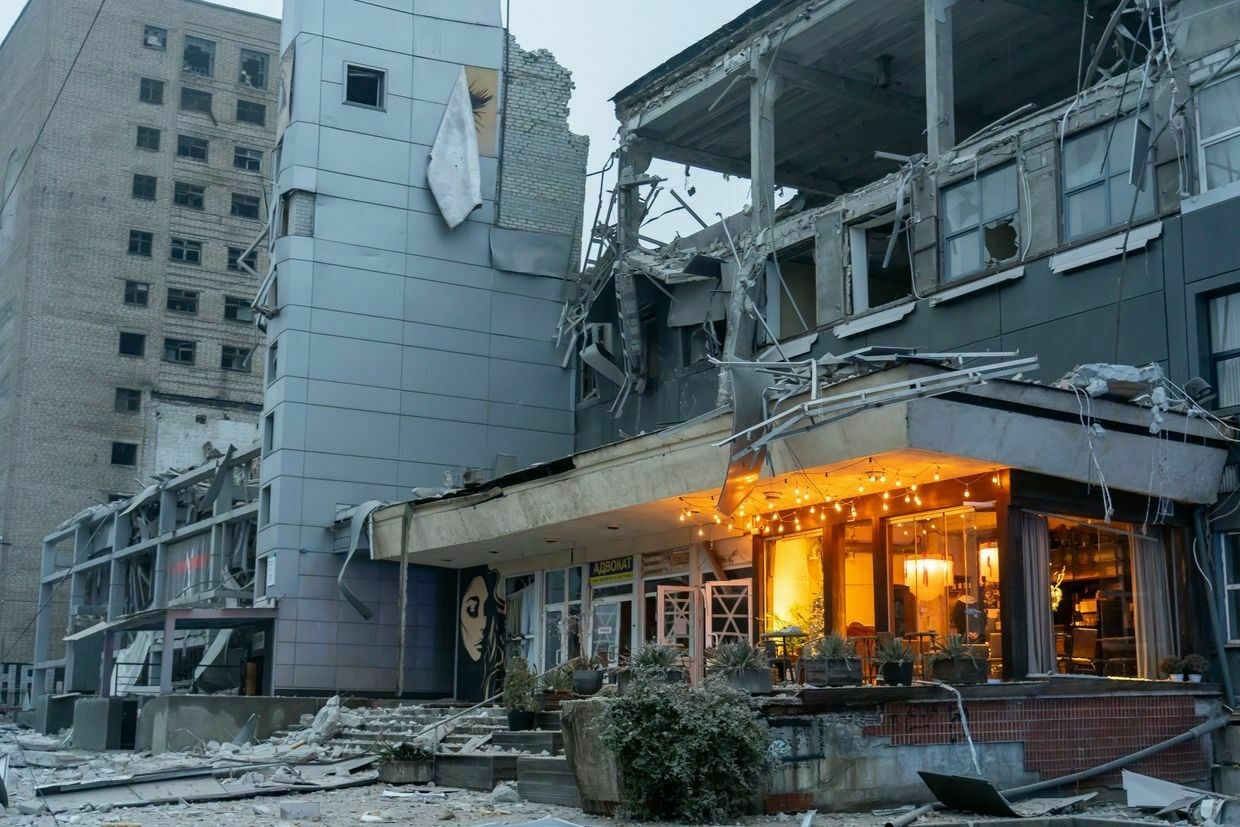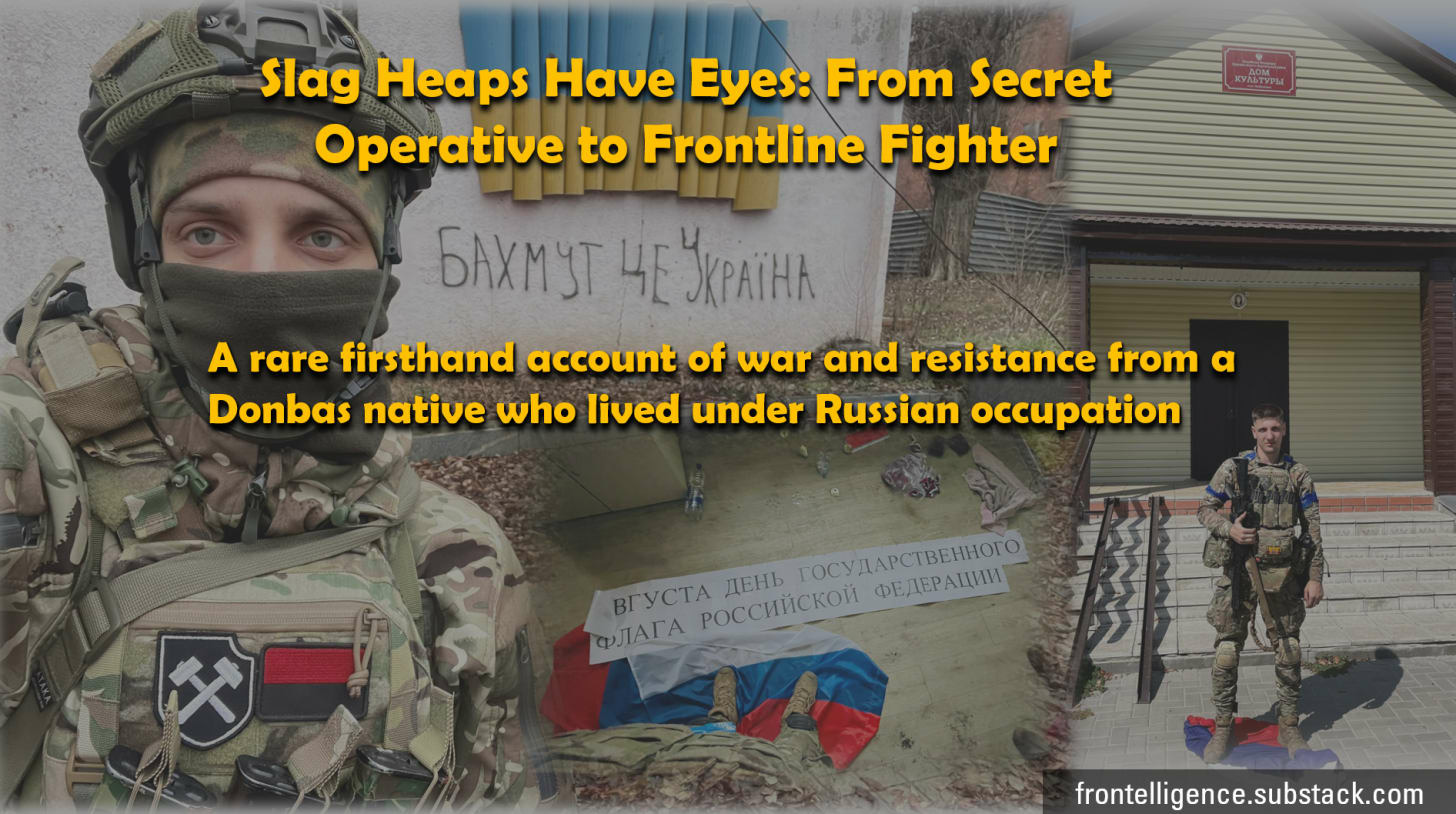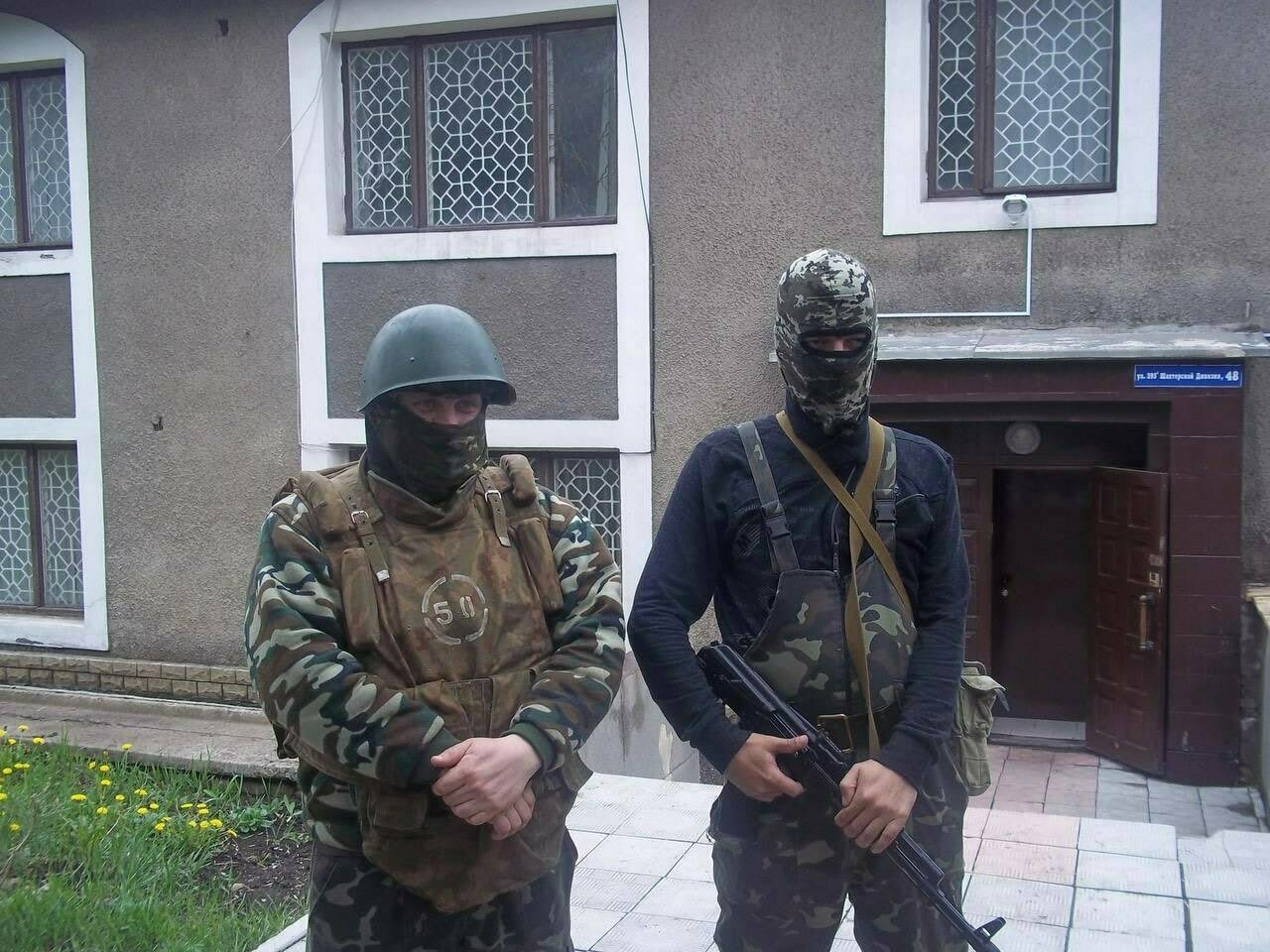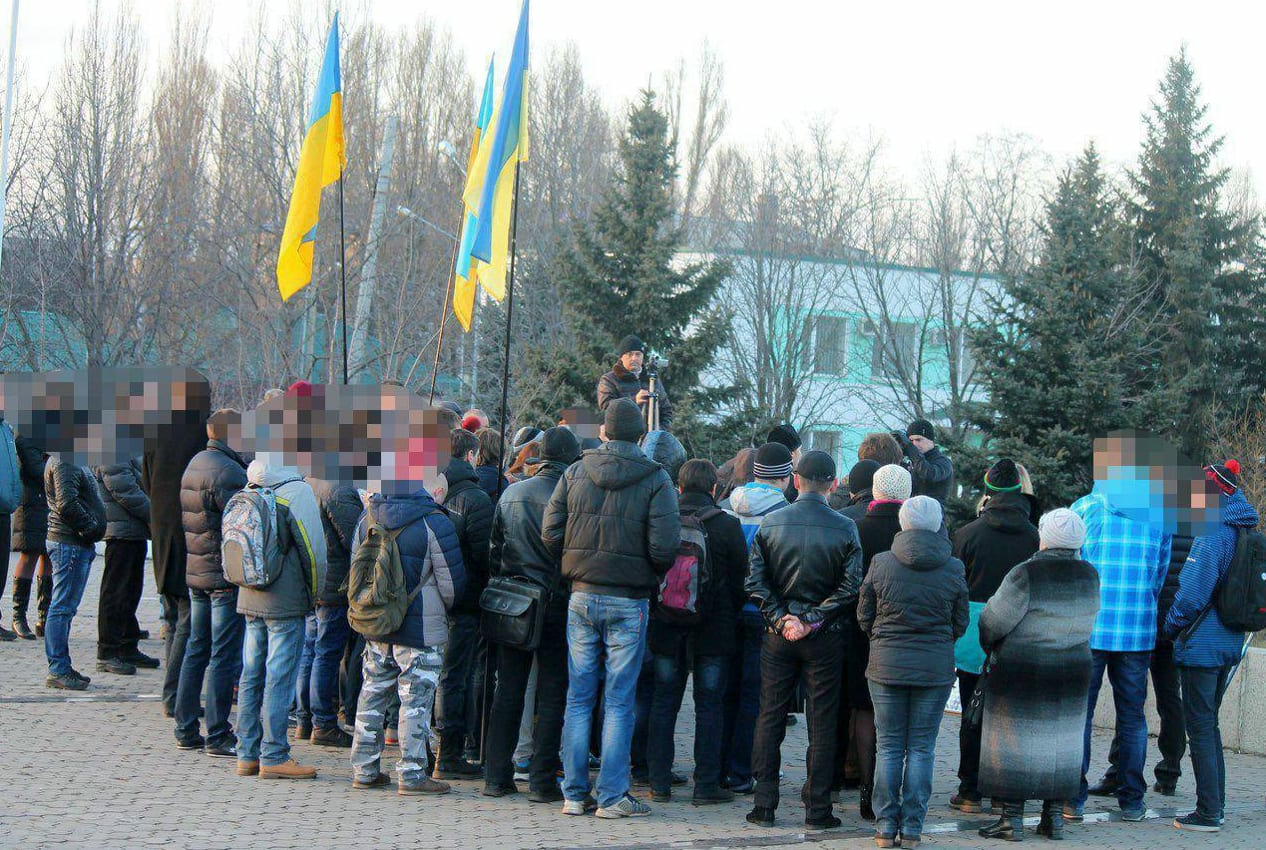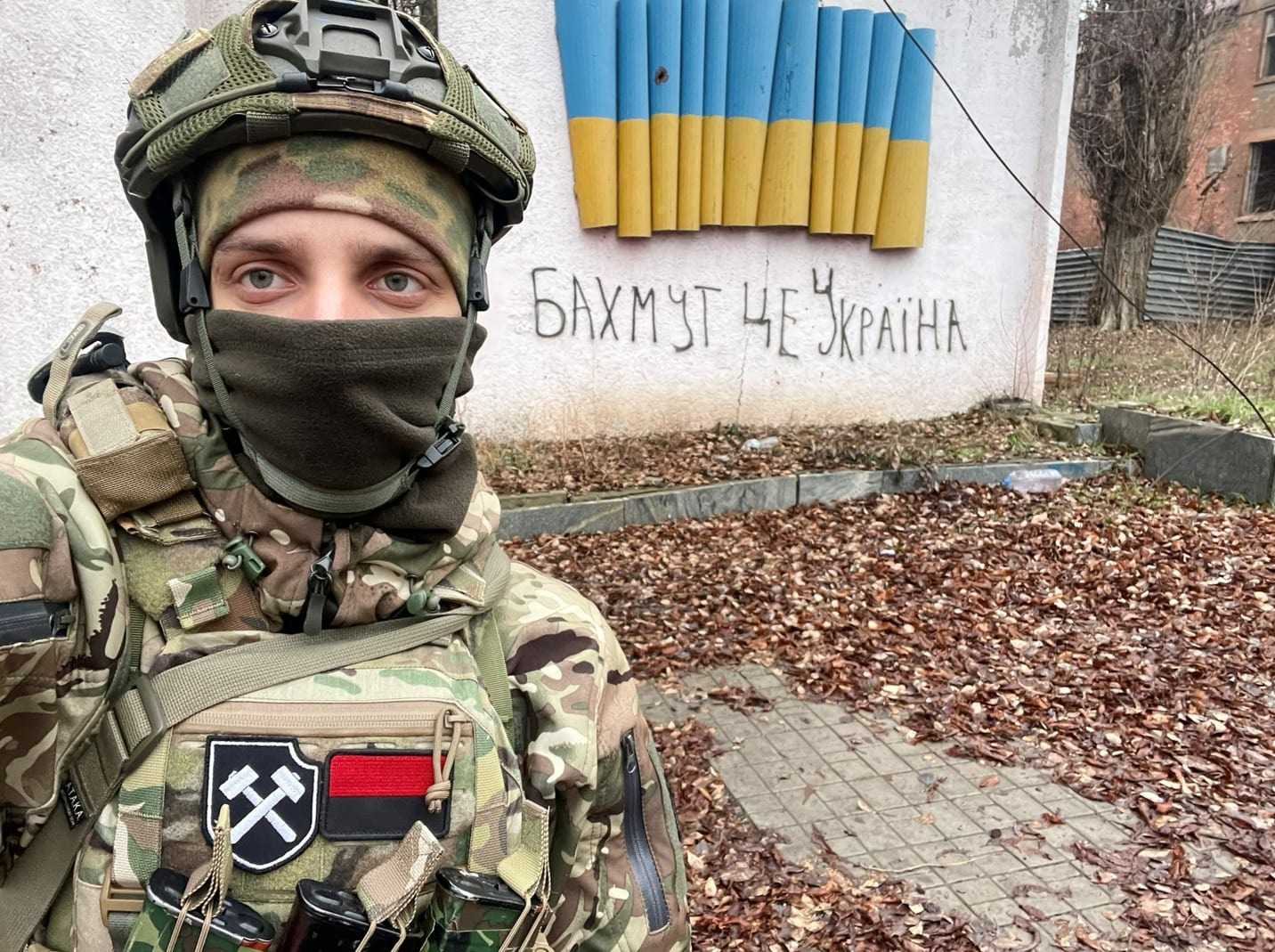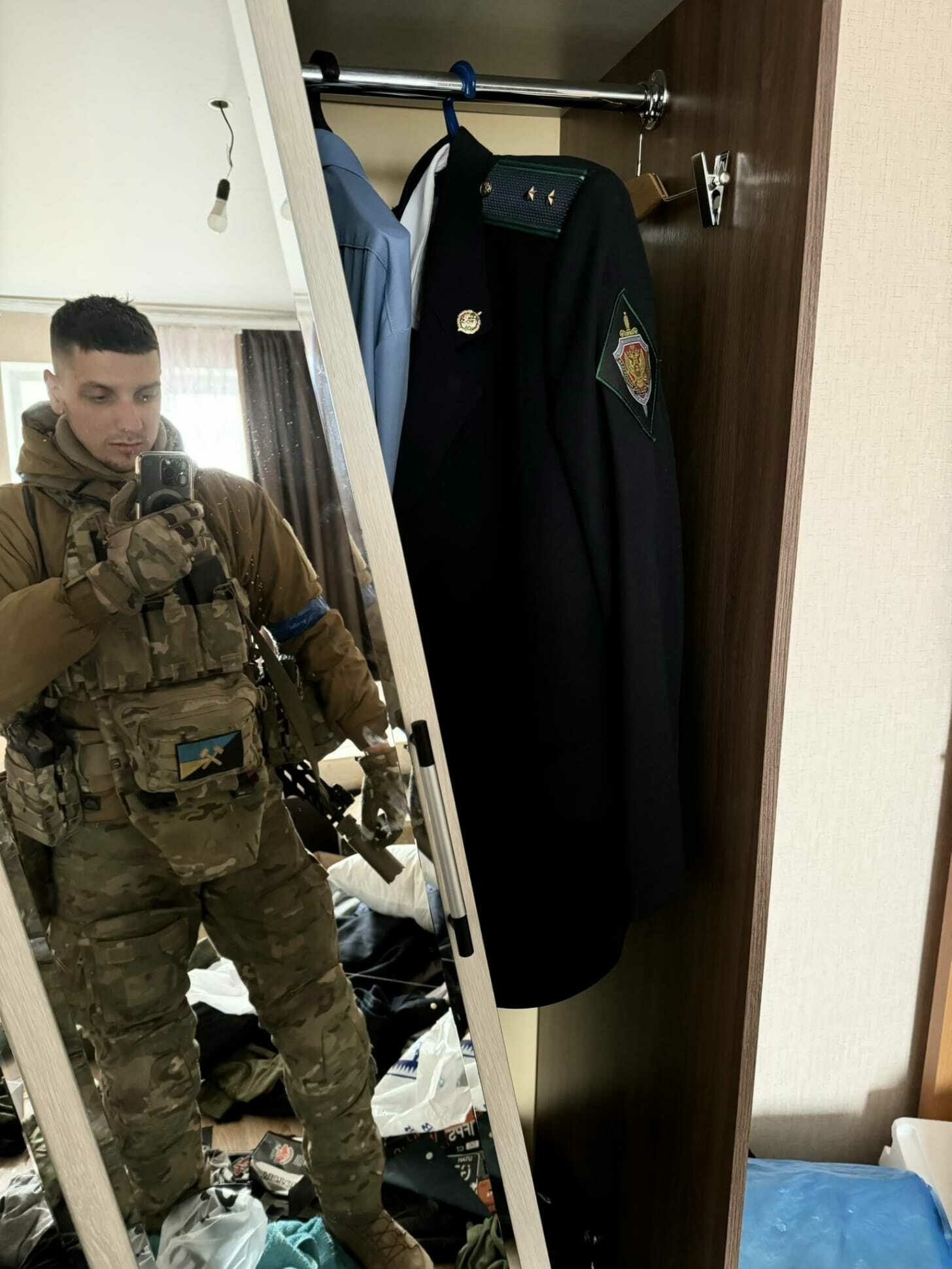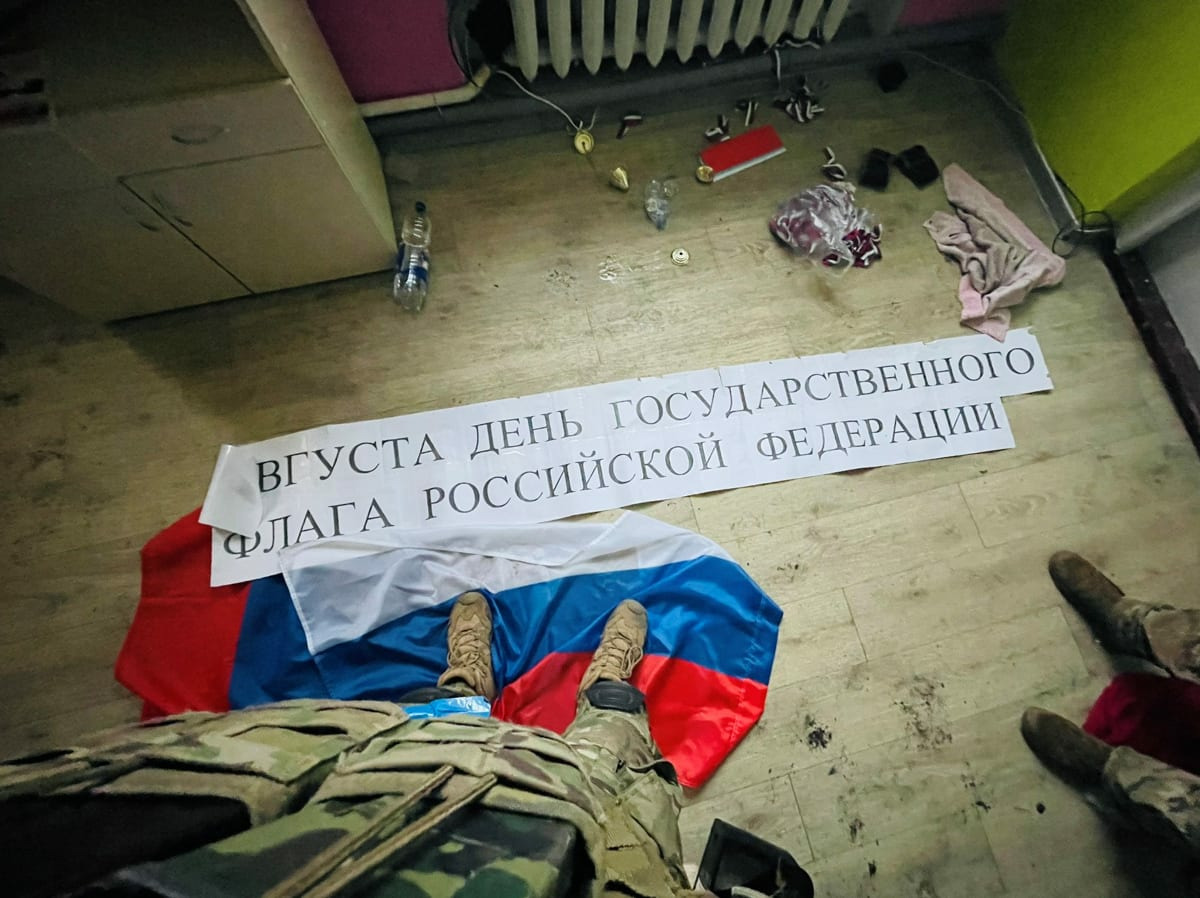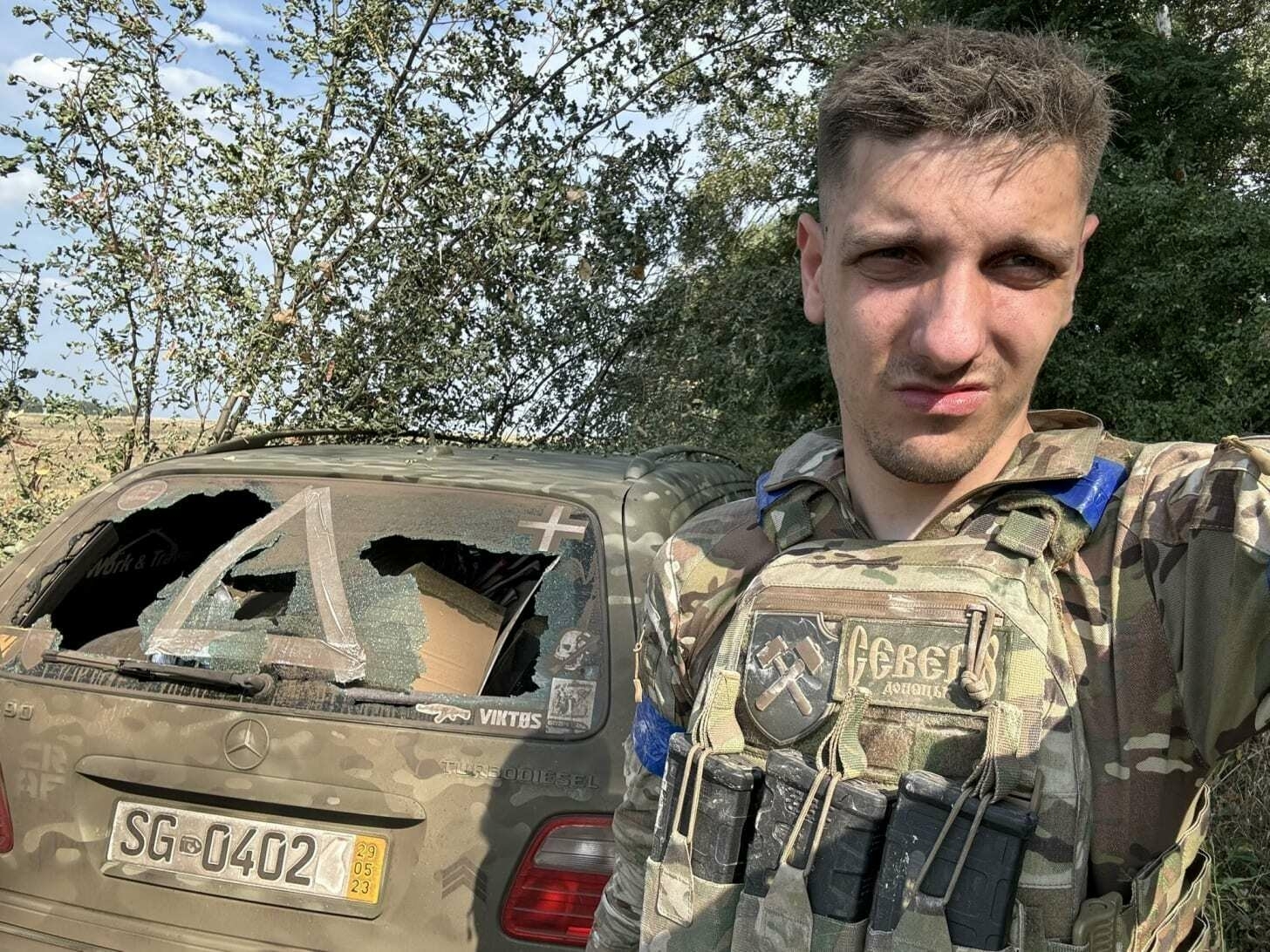-
Orbán is once again against Ukraine
-
Russia ready to hold third round of peace talks with Ukraine, Putin says
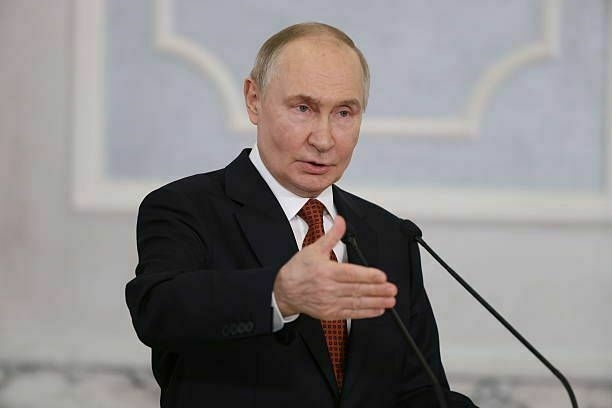
Russia is ready to hold a third round of peace talks on the war in Ukraine, Russian President Vladimir Putin told reporters on June 27, without specifying if he would directly participate in the negotiations.
“In general, we are ready for this (next round of peace talks), we need to coordinate the place and time,” Putin said.
Putin added that the talks could potentially be held in Istanbul but the details have not yet been worked out. He added that another round of talks may bring peace closer as the terms for peace outlined in the countries' peace memorandums remain “absolutely opposite."
The latest peace talks between Russia and Ukraine took place on June 2 in Istanbul, following an earlier meeting on May 16. Despite Ukraine’s insistence on a 30-day ceasefire, Russia has repeatedly rejected the offer, proposing only a temporary 2–3-day truce in limited areas to retrieve the bodies of fallen soldiers.
While no agreement on a comprehensive ceasefire has been reached, talks have led to a few major prisoner exchanges, including a 1,000-for-1,000 swap that took place in late May and a follow-up deal for up to 1,200 prisoners from each side.
Defense Minister Rustem Umerov said during a press briefing on June 26 that it was Ukraine’s goal to organize a direct meeting between President Volodymyr Zelensky and Putin during the next round of negotiation.
In previous rounds, Putin had failed to show in-person sending lower-level officials to the meeting instead — despite Zelensky’s willingness for in-person talks as well pressure from the United States.
On June 26, Turkish President Recep Tayyip Erdogan said Ankara is working to organize a meeting between Zelensky and Putin, with U.S. President Donald Trump potentially joining the talks.
Putin said on June 27 that it was “quite possible” that a meeting between himself and the U.S. president could take place. “We will be happy to prepare it,” he briefly added.
Zelensky and Trump met during the NATO summit on June 25, where the two leaders discussed battlefield developments, Kyiv’s need for additional air defense systems, and the potential for co-production of drones.
Zelensky has previously voiced openness to a trilateral meeting. On May 27, he told public broadcaster Suspilne that he was ready to sit down with both Trump and Putin.
Turkey previously hosted direct peace talks in March 2022 and has remained one of the few countries with open lines to both Kyiv and Moscow.
Putin under pressure to declare war on Ukraine, but experts say Russia isn’t readyDespite suffering over 1 million casualties, pounding Ukrainian cities nightly with missiles and drones, and committing countless war crimes, one startling fact about Russia’s full-scale invasion remains — Moscow has yet to officially declare war on Ukraine. In February 2022, Russian President Vladimir Putin described what he believed was going to be a swift victory and the capture of Kyiv within days as a “special military operation.” Nearly three-and-a-half years later, the Kremlin is stuck The Kyiv IndependentChris York
The Kyiv IndependentChris York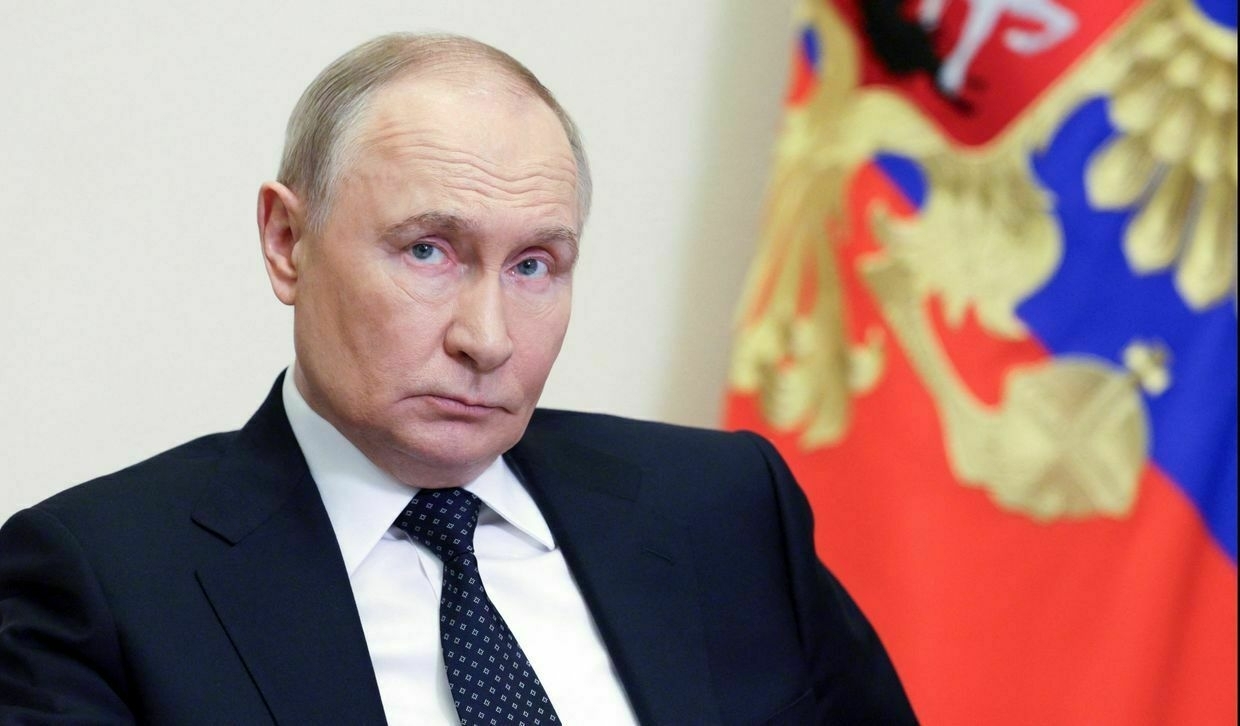
-
Ukraine war latest: Ukrainian drones reportedly strike 4 fighter jets in Russia
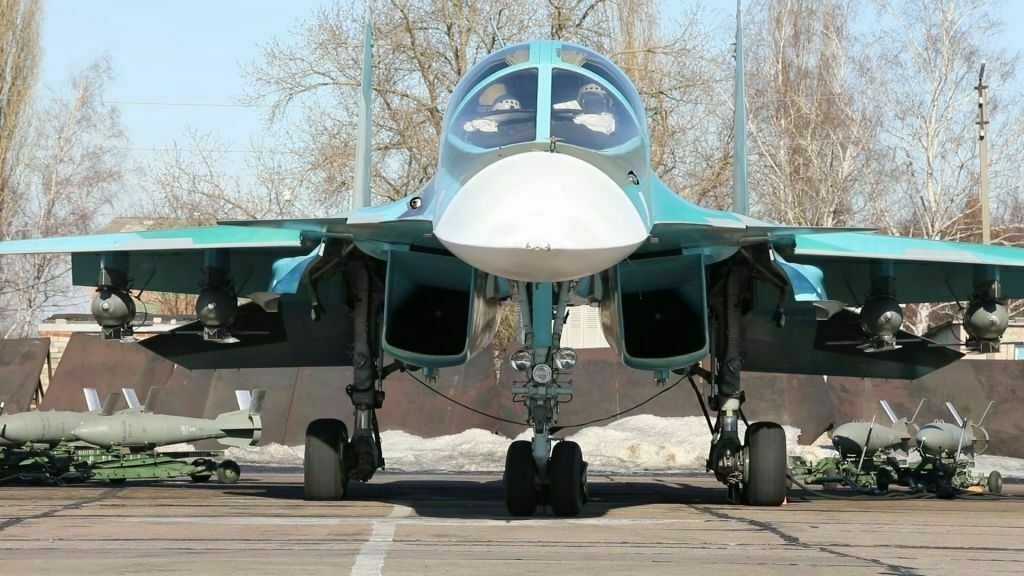
Key developments on June 27:
- Ukraine war latest: Ukrainian drones reportedly strike 4 fighter jets in Russia
- North Korea deployed 20% of Kim’s elite ‘personal reserve’ to fight against Ukraine in Russia, Umerov says
- Pro-Palestinian activists reportedly destroy military equipment intended for Ukraine
- Zelensky signs decree to synchronize Russia sanctions with EU, G7
- Russia’s short-range drone strikes cause over 3,000 civilian casualties in Ukraine, UN reports
Ukrainian drones struck four Su-34 fighter jets at the Marinovka airfield in Russia’s Volgograd Oblast overnight on June 27, Ukraine’s General Staff said.
The operation was carried out by the Special Forces and the Security Service of Ukraine (SBU) in cooperation with other military units, according to the General Staff.
Volgograd Oblast is located some 900 kilometers (560 miles) southeast of Moscow.
According to preliminary data, two Russian fighter jets were destroyed, and the other two were damaged. Russia uses such aircraft to bomb Ukraine, particularly to drop guided aerial bombs, the General Staff said.
The attack also caused a fire in the airfield’s technical and operational unit, a facility where combat aircraft are serviced and repaired, according to the General Staff.
The Kyiv Independent could not independently verify these claims.
As Russia intensifies aerial attacks on Ukraine and the civilian death toll climbs, Ukraine has stepped up its drone attacks on Russian territory. The recent surge in drone strikes aims to disrupt airport operations, overwhelm air defenses, and mount pressure against the Russian population.
Russia pulls its scientists out of Iranian nuclear plant, as Israeli strikes threaten decades of collaborationIsrael’s strikes on Iranian nuclear facilities have alarmed none more than Russia, the country that first brought nuclear power to Iran in defiance of Western objections. We’re “millimeters from catastrophe,” said Kremlin spokeswoman Maria Zakharova on June 18 in response to a bombing campaign that Israel launched against Iran on June 13. Decades of conflict with the West have united Iran and Russia, despite a cultural gulf between the two nations that dwarfs the Caspian Sea that physically di The Kyiv IndependentKollen Post
The Kyiv IndependentKollen Post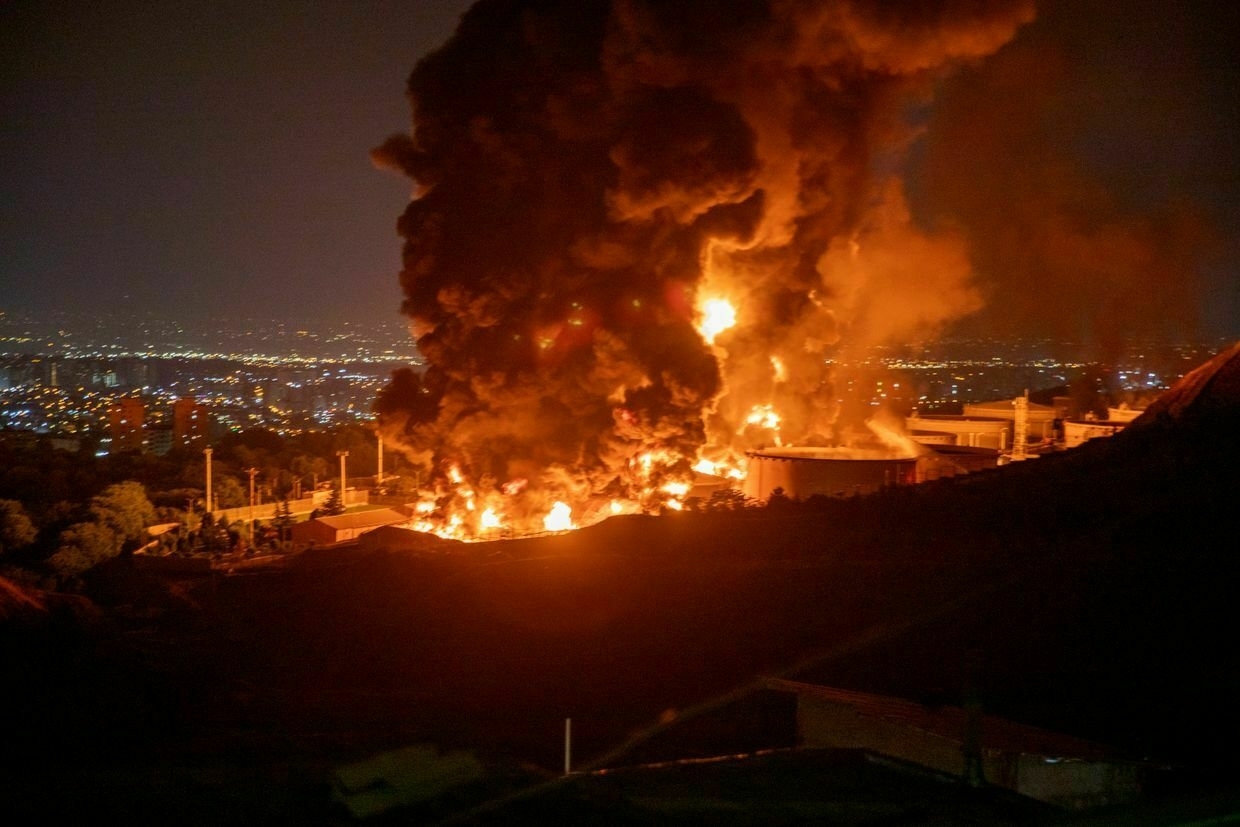
North Korea deployed 20% of Kim’s elite ‘personal reserve’ to fight against Ukraine in Russia, Umerov saysNorth Korea has already deployed around 11,000 elite troops to support Russia’s war against Ukraine, accounting for more than 20% of North Korean leader Kim Jong Un’s elite “personal reserve” force, Defense Minister Rustem Umerov said during a June 26 press briefing.
“These are soldiers specially selected based on physical, psychological, and other criteria,” Umerov said. “These units have already suffered significant losses."
Umerov said intelligence indicates North Korea had considered sending additional forces to fight with Russia. However, according to Umerov, the move would further deplete its strategic reserves and increase risks to regime stability. There have been four known rotations of North Korean units deployed against Ukraine, according to Umerov.
According to a June 15 report from the United Kingdom’s defense intelligence, North Korea has likely sustained more than 6,000 casualties in Russia since the deployment of troops to Kursk Oblast in fall 2024.
U.K. intelligence attributed the high casualty rate to large, highly attritional dismounted assaults.
Russia's growing military partnership with North Korea has raised concerns in Kyiv and among its allies. The two countries signed a Comprehensive Strategic Partnership Agreement in 2024. The treaty commits both countries to provide assistance if either is attacked.
Kim previously described the pact as having a "peaceful and defensive nature," framing it as a formal security guarantee between the longtime partners.
In practice, Umerov said, North Korea is bearing the military burden, while Russia has not upheld its reciprocal obligations, raising concerns within the North Korean regime.
"Russia's use of elite North Korean troops demonstrates not only a growing reliance on totalitarian regimes but also serious problems with its mobilization reserve," Umerov said. "Together with our partners, we are monitoring these threats and will respond accordingly."
Umerov added that Ukraine, working in coordination with its Western partners, is closely tracking the movement and deployment of North Korean units deployed to fight against Ukraine. He said Russia's dependence on foreign forces may signal critical shortages in its own recruitment and mobilization efforts.
According to South Korea's National Intelligence Service, North Korea is likely to send more troops to Russia over the summer. Pyongyang may also send up to 25,000 laborers to Russia to support drone production, according to the report.
The additional troop deployment would come on top of what Seoul estimates is already substantial support from North Korea, which includes the shipment of over 10 million artillery shells and ballistic missiles in exchange for economic and technical assistance from Moscow.
Tired of military aid delays, Ukraine has designed its own ballistic missile — and it’s already in mass-productionUkraine announced on June 13 that its short-range Sapsan ballistic missile would go into mass production, a major development in Kyiv’s ongoing efforts to domestically produce the weapons it needs to fight Russia’s full-scale invasion. As Ukraine faces growing challenges in securing weapons from Western partners, and Russia continues launchingThe Kyiv IndependentYuliia Taradiuk
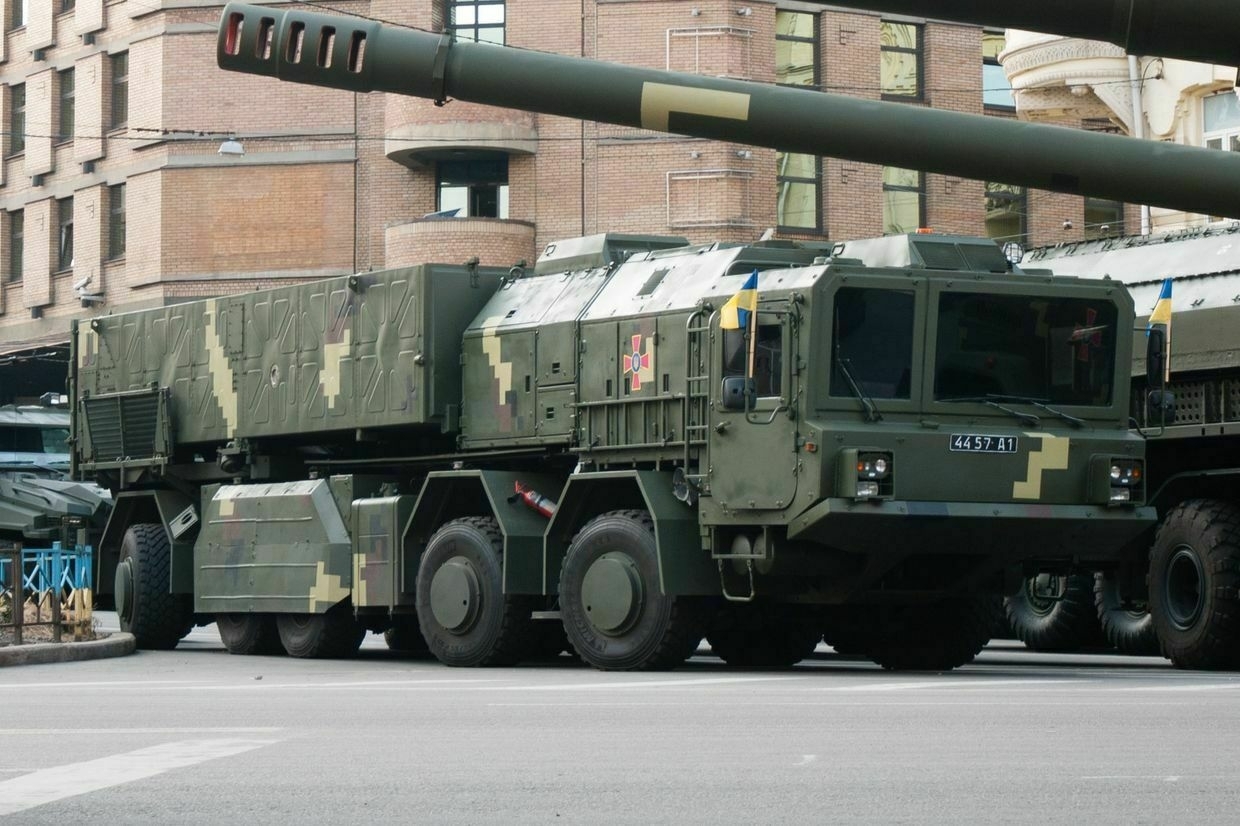
Pro-Palestinian activists reportedly destroy military equipment intended for UkraineAround 150 pro-Palestinian activists have broken into a storage facility and damaged military equipment intended for Ukraine, the Belgian news outlet 7sur7 reported on June 26.
The facility belongs to OIP Land Systems, a company that produces military equipment for Ukraine. The activists reportedly thought the equipment would be supplied to Israel.
The activists, who were wearing white overalls and masks, took part in the Stop Arming Israel campaign. The protests seek to pressure Belgian authorities to maintain the military embargo against Israel and impose sanctions on it.
The protesters, armed with hammers and grinders, first entered the company's offices, where they smashed computers, and then broke into the hangars, where they severely damaged some vehicles, Freddy Versluys, CEO of OIP Land Systems, said.
Since the beginning of the Russian invasion, the company has supplied the Ukrainian army with about 260 armored vehicles. The damage caused by the activists' actions is estimated at $1.1 million, according to 7sur7.
"A further delivery has now been delayed by at least a month. That's all these Hamas sympathizers will have achieved with their action," Versluys said.
The company was reportedly targeted by pro-Palestinian protesters because Elbit Systems, an Israeli defense company, owns it.
Protesters believe that Elbit supplies 85% of the drones and most of the ground military equipment used by the Israel Defense Forces, 7sur7 reported.
Yet, the OIP Land Systems CEO claimed that his company has not produced defense systems for Israel for over 20 years.
OIP Land Systems has provided defense products to Ukraine on several occasions, including Leopard 1 tanks, which are manufactured at the Tournai plant.
Zelensky signs decree to synchronize Russia sanctions with EU, G7President Volodymyr Zelensky signed a decree on June 27 to coordinate sanctions against Russia with international partners, particularly the European Union and the Group of Seven (G7), the President's Office said on its website.
A day earlier, EU member states' leaders gave their political consent to extend the sanctions previously imposed on Russia for its war against Ukraine.
The EU Committee of Permanent Representatives (CORPER) also extended sectoral sanctions against Russia for another six months on June 26, European Pravda reported, citing a diplomatic source. The sanctions include restrictions against entire sectors or industries of the Russian economy or areas of operation of Russian businesses.
Meanwhile, the participants did not approve the new 18th package of sanctions, which targeted Russia's energy and banking sectors, due to Slovakia's veto.
Zelensky's June 27 decree implements a decision by Ukraine's National Security and Defense Council's (NSDC) to synchronize the sanctions against Russia with the EU and G7.
According to the document, sanctions approved by partner states must be submitted to the NSDC for consideration and approval no later than the 15th day after the partner state's decision comes into force.
The Cabinet of Ministers, the Security Service of Ukraine (SBU), and the National Bank of Ukraine must also ensure the implementation of sanctions approved by international partners in Ukraine.
After the 17th package of sanctions against Russia took effect on May 20, Ukraine's allies announced the following day that another round of restrictions was already in the works.
The push for tighter sanctions comes as Russia continues to reject ceasefire proposals and presses forward with military operations.
Russia's short-range drone strikes cause over 3,000 civilian casualties in Ukraine, UN reportsShort-range drone attacks have become one of the deadliest threats to civilians in Ukraine’s front-line regions, killing at least 395 people and injuring 2,635 between February 2022 and April 2025, according to a new bulletin by the UN Human Rights Monitoring Mission in Ukraine.
The report, "Deadly Drones: Civilians at Risk from Short-Range Drones in Frontline Areas of Ukraine," highlights the growing use of first-person-view (FPV) drones by Russian forces and their devastating impact on the civilian population.
The bulletin documents attacks in which drone operators deliberately targeted civilians engaging in daily activities — driving private cars, riding bicycles, walking outdoors, or evacuating others in clearly marked ambulances.
"Although individually less destructive than artillery or missiles, the sheer scale and increasing frequency of short-range drone attacks have made them one of the deadliest weapons in Ukraine," said Danielle Bell, head of the mission.
"Over 3,000 civilian casualties — and the relentless frequency of these attacks — have not only caused immense human suffering but also instilled fear, severely disrupted daily life, and crippled access to essential services in several frontline communities."
The monitoring mission documented, verified, and analyzed 3,030 civilian casualties resulting from short-range drones between 24 February 2022 and 30 April 2025.
The researchers conducted site visits to very high-risk areas, including the southern city of Kherson, Zolochiv in Kharkiv Oblast, and other front-line locations. Investigators interviewed survivors and witnesses of drone attacks, medical personnel, and humanitarian workers to assess the full impact of these strikes on civilian life.
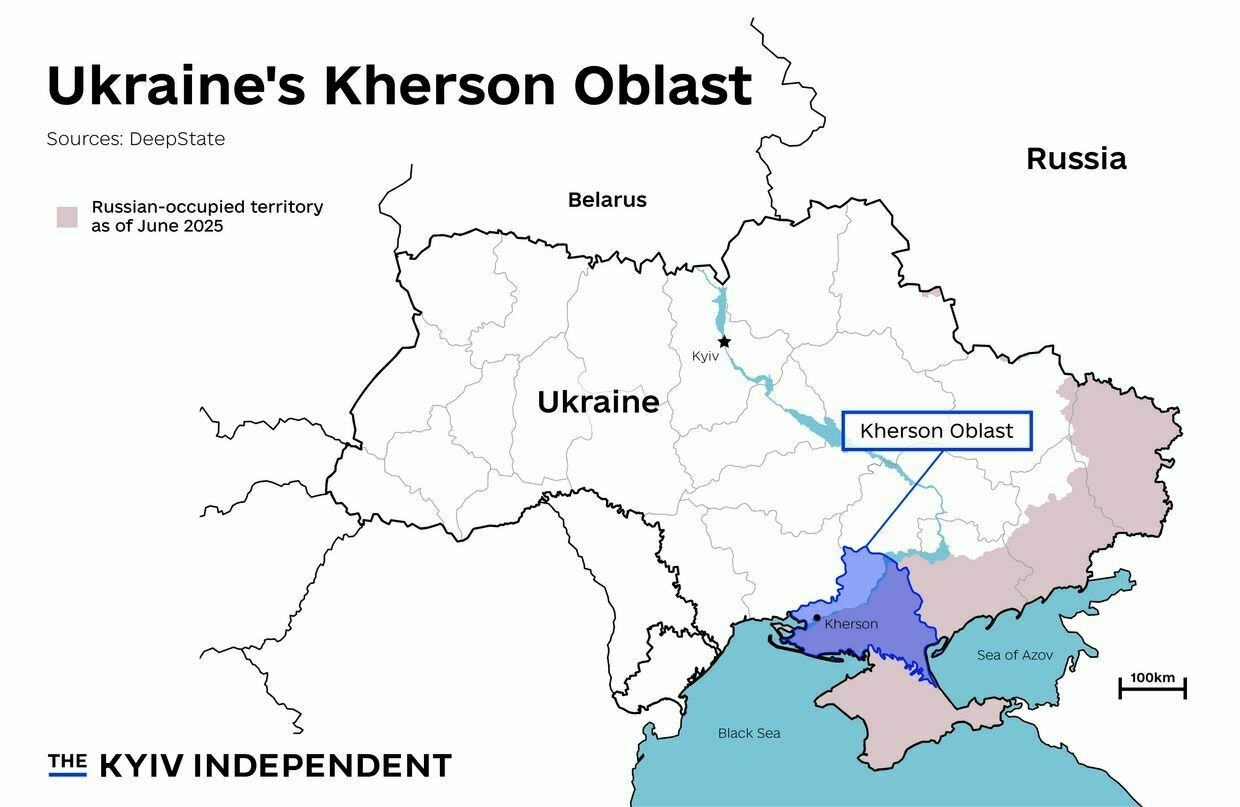
Ukraine's Kherson Oblast (Nizar al-Rifai/The Kyiv Independent) Casualties surged in late 2023 and early 2024, with numbers suddenly doubling in July 2024. April 2025 marked the deadliest month on record, with 42 civilians killed and 283 injured. Drone strikes continued into May and June.
On 23 June, a 65-year-old driver was killed in Kostiantynivka, Donetsk Oblast, when a drone struck a minibus. In Kharkiv region, a 58-year-old volunteer was killed on 22 May when a drone dropped a munition on a residential balcony. On 20 May, six civilians were injured when a drone hit a bus in Kherson Oblast.
The vast majority of casualties — 89% — occurred in territory controlled by the Ukrainian government. The UN says these attacks violate international humanitarian law, particularly the principles of distinction and precaution, and may in some cases constitute war crimes.
Note from the author:
Ukraine War Latest is put together by the Kyiv Independent news desk team, who keep you informed 24 hours a day, seven days a week. If you value our work and want to ensure we have the resources to continue, join the Kyiv Independent community.
-
Ukrainian manufacturers able to produce 4 million drones per year, Umerov says
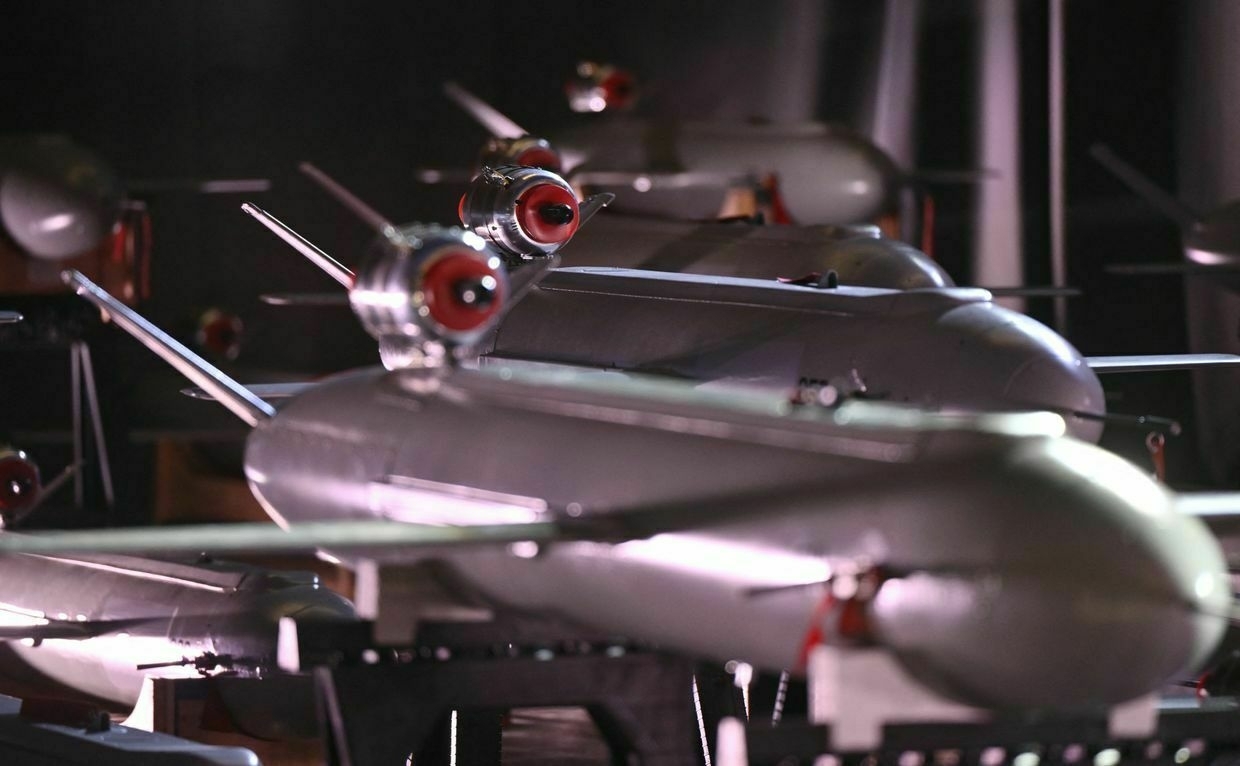
Ukrainian companies have increased their industrial capacity to produce four million drones a year, Defense Minister Rustem Umerov said at a June 26 press briefing.
The statement comes as Ukraine seeks to increase domestic arms production amid uncertainty over further U.S. support and reduced dependence on supplies from European partners.
Ukrainian manufacturers will supply four million drones to the front line this year, while the Ukrainian army has already received up to 1.5 million drones as of the end of June, according to Umerov.
The minister said that brigades made many requests for direct funding last year, with a commitment secured for 2025. The government is currently allocating Hr 2.5 billion ($60 million) per month for direct procurement teams, he added.
In the meantime, Umerov said that not all brigades spend money due to a lack of procurement specialists, so the Defense Procurement Agency (DPA) launched the DOT Chain Defense marketplace for Ukrainian soldiers
“The teams see a ‘marketplace’ of drones: each team orders what it needs, and the healthcare organization pays for it. This way we significantly reduce all the bureaucracy, and the teams get what they need ten times faster,” Umerov said.
Russian drone strikes across Ukraine have been breaking records in recent weeks, with nearly 500 drones and missiles launched overnights.
Since the start of Russia’s full-scale invasion, Ukraine has focused heavily on developing and deploying advanced unmanned systems. As of April 2025, more than 95% of drones used by Ukrainian forces on the front line are domestically produced.
Both Ukraine and Russia have increasingly relied on drone warfare, employing aerial, naval, and ground-based drones for reconnaissance and combat operations – making technological innovation a critical component of the war.
Russia pulls its scientists out of Iranian nuclear plant, as Israeli strikes threaten decades of collaborationIsrael’s strikes on Iranian nuclear facilities have alarmed none more than Russia, the country that first brought nuclear power to Iran in defiance of Western objections. We’re “millimeters from catastrophe,” said Kremlin spokeswoman Maria Zakharova on June 18 in response to a bombing campaign that Israel launched against Iran on June 13. Decades of conflict with the West have united Iran and Russia, despite a cultural gulf between the two nations that dwarfs the Caspian Sea that physically di The Kyiv IndependentKollen Post
The Kyiv IndependentKollen Post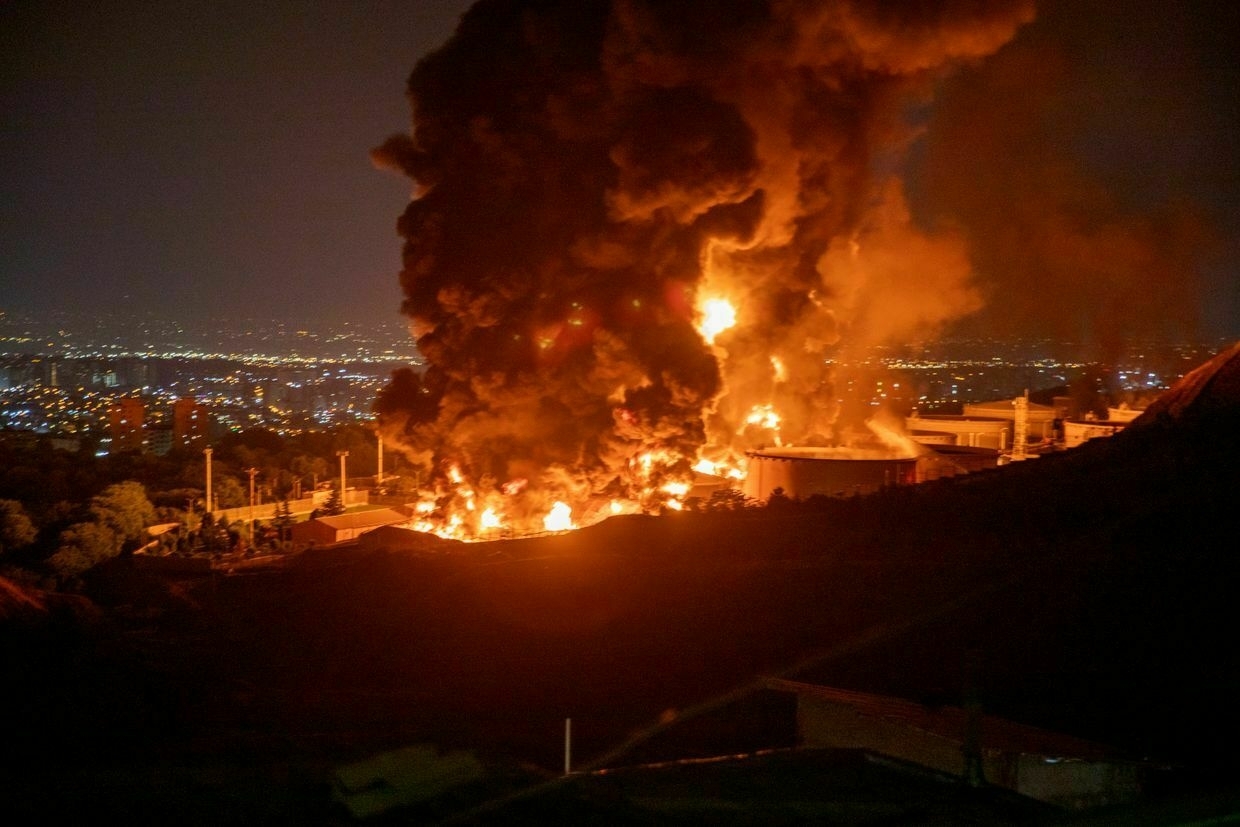
-
Ukrainian drones strike 4 fighter jets in Russia's Volgograd Oblast, General Staff says
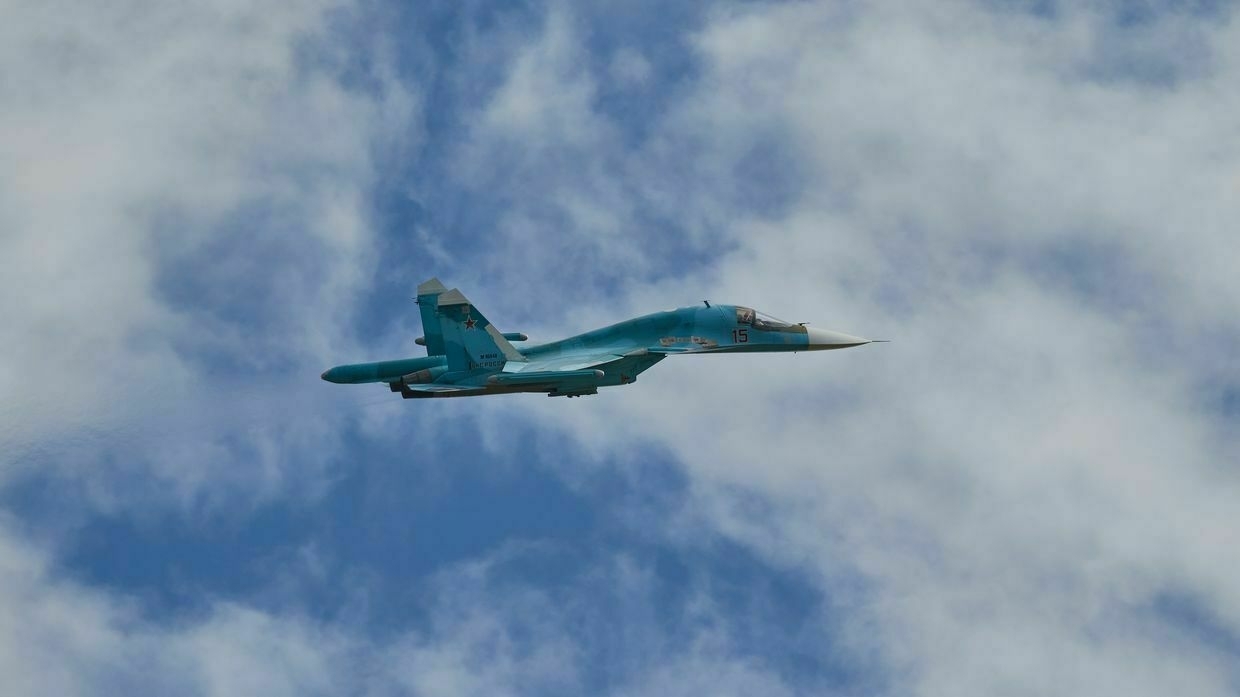
Ukrainian drones struck four Su-34 fighter jets at the Marinovka airfield in Russia’s Volgograd Oblast overnight on June 27, Ukraine’s General Staff said.
The operation was carried out by the Special Forces and the Security Service of Ukraine (SBU) in cooperation with other military units, according to the General Staff.
Volgograd Oblast is located some 900 kilometers (560 miles) southeast of Moscow.
According to preliminary data, two Russian fighter jets were destroyed, and the other two were damaged. Russia uses such aircraft to bomb Ukraine, particularly to drop guided aerial bombs, the General Staff said.
The attack also caused a fire in the airfield’s technical and operational unit, a facility where combat aircraft are serviced and repaired, according to the General Staff.
The Kyiv Independent could not independently verify these claims.
As Russia intensifies aerial attacks on Ukraine and the civilian death toll climbs, Ukraine has stepped up its drone attacks on Russian territory. The recent surge in drone strikes aims to disrupt airport operations, overwhelm air defenses, and mount pressure against the Russian population.
Russia pulls its scientists out of Iranian nuclear plant, as Israeli strikes threaten decades of collaborationIsrael’s strikes on Iranian nuclear facilities have alarmed none more than Russia, the country that first brought nuclear power to Iran in defiance of Western objections. We’re “millimeters from catastrophe,” said Kremlin spokeswoman Maria Zakharova on June 18 in response to a bombing campaign that Israel launched against Iran on June 13. Decades of conflict with the West have united Iran and Russia, despite a cultural gulf between the two nations that dwarfs the Caspian Sea that physically di The Kyiv IndependentKollen Post
The Kyiv IndependentKollen Post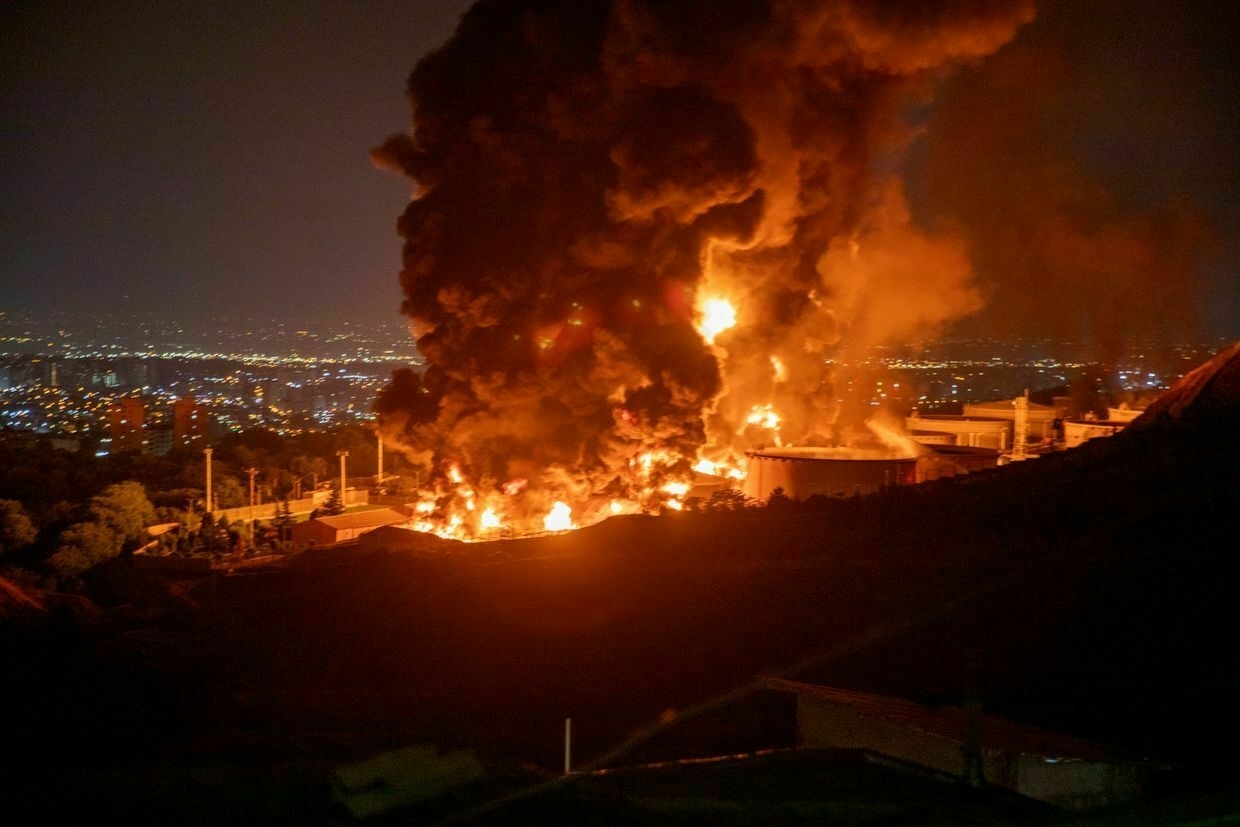
-
Orban's referendum FAILED, Ukraine ramps up drone production, North Korea sends more troops to war
-
Ukrainian deputy prime minister hit with travel ban, $2.9 million bail in major corruption case
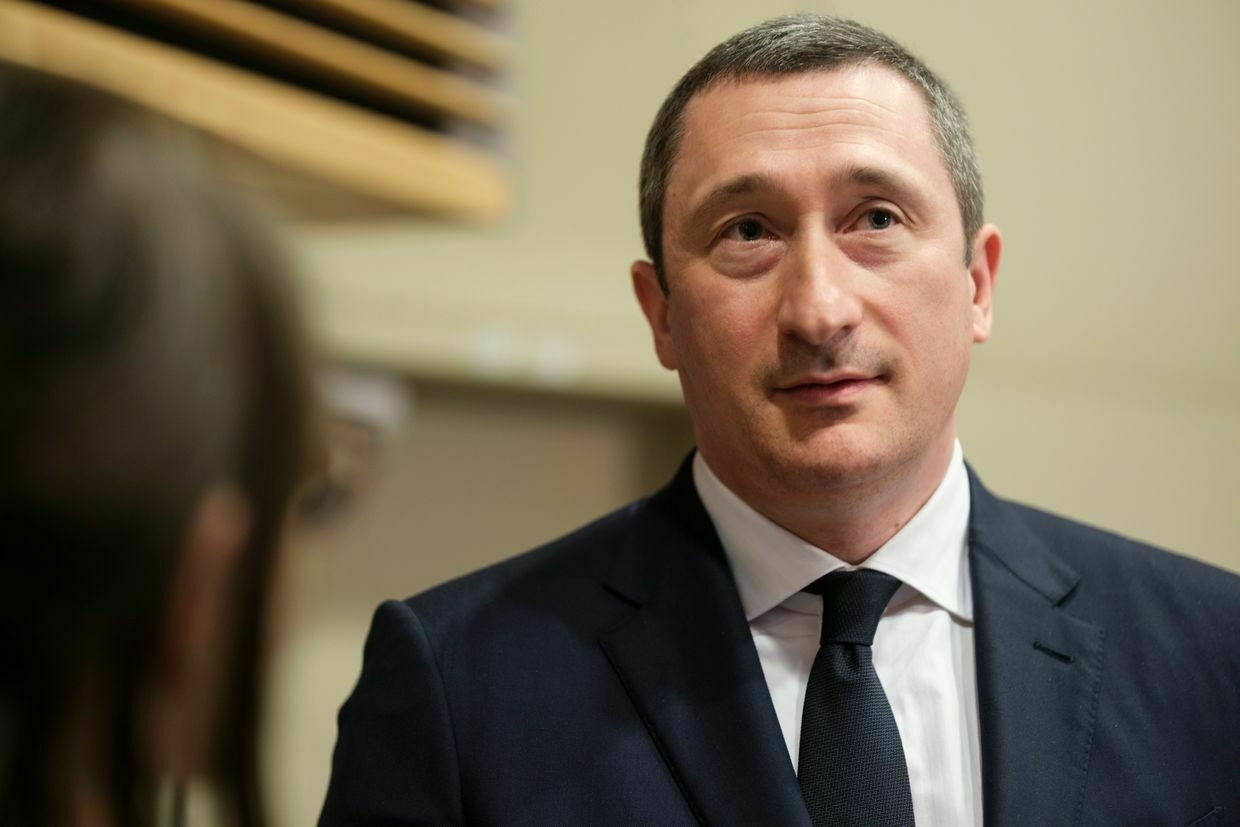
Deputy Prime Minister of Ukraine Oleksii Chernyshov was restricted from traveling abroad without permission after a court ruled on June 27 to set bail at Hr 120 million ($2.9 million) while awaiting trial in a high-profile corruption case.
“This is a huge challenge for me,” Chernyshov told reporters during a press briefing after the hearing, adding that he believed the bail was “too high.”
Chernyshov is the highest-ranking official in Ukraine’s history to face corruption charges while in office. Courts officially named him a suspect earlier this week for abusing his government post to illegally enrich himself through a “large-scale” illegal land grab.
Chernyshov has categorically denied the allegations.
According to the National Anti-Corruption Bureau (NABU) investigation, during his time as communities and territories minister in 2020-2022, Chernyshov and his associates undervalued land plots to benefit a developer in exchange for kickbacks. Chernyshov and his accomplices allegedly received “significant” discounts on apartments in existing buildings, totaling over Hr 14.5 million ($346,000), from the developer. The actions cost Ukraine Hr 1 billion ($24 million), according to NABU.
“I am personally convinced that the accusation has no objective grounds,” Chernyshov said during the hearing at the High Anti-Corruption Court. “The events we are talking about today took place more than three years ago,” he said, adding that he had not been summoned for any procedural hearings during this period.
The case’s significance goes beyond the monetary value, marking a major accusation against a member of President Volodymyr Zelensky’s inner circle. Chernyshov is widely considered a close ally of Zelensky.
“The key thing is that today NABU and SAPO have actually reached the immediate circle of the president’s ‘family,'” Olena Shcherban, deputy executive director at the Anti-Corruption Action Center (ANTAC), a Kyiv-based watchdog, told the Kyiv Independent earlier this week.
Addressing reporters ahead of the hearing, Chernyshov said, “I am confident, confident in my decisions and I will prove them.” He appeared in upbeat spirits on footage from inside the courtroom, despite the court denying his and his team’s request to bar media access in the courtroom. During his initial remarks to reporters, he told the media to focus on “just the facts.”
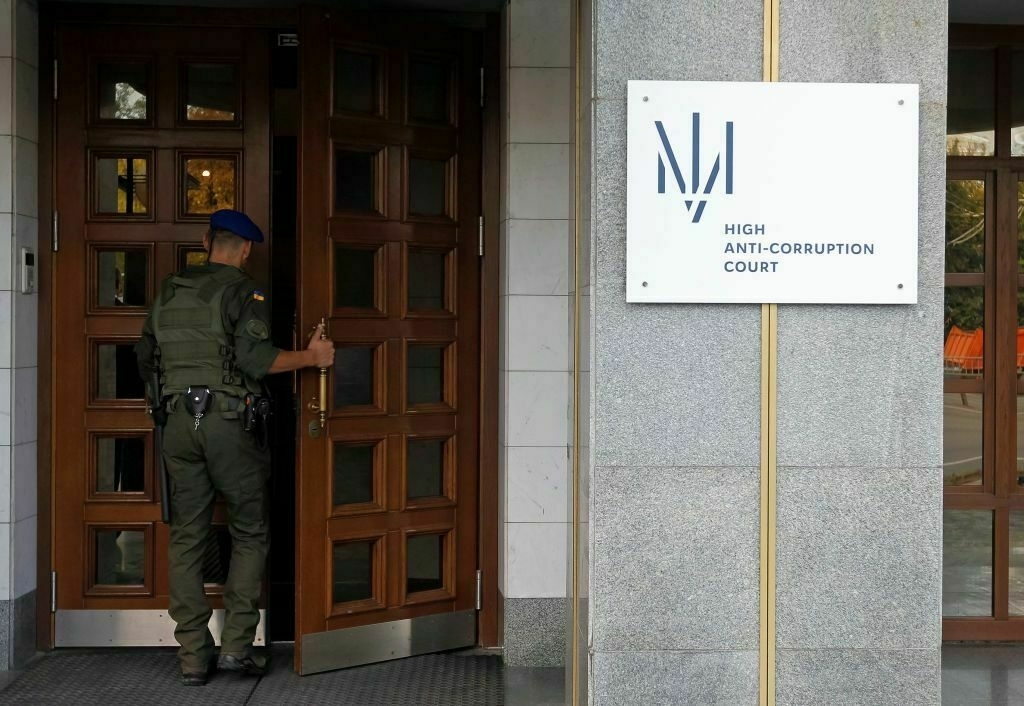
A view of Ukraine’s High Anti-Corruption Court (HACC) building in Kyiv, Ukraine, on Sept. 5, 2019. (STR/NurPhoto via Getty Images) Chernyshov left the country only days before law enforcement unveiled charges and arrested two of his close associates, sparking suspicions that he had fled Ukraine to avoid arrest. He returned on June 22 and denied that he had been on the run, saying that he had been traveling for business. Zelensky publicly backed up his assertion.
Chernyshov was summoned to NABU the following day and wrote on Facebook after the meeting that he planned to cooperate with the investigative body.
During the court hearing, NABU and the Specialized Anti-Corruption Prosecutor’s Office (SAPO) requested that Chernyshov be suspended from office and that the court set bail of Hr 120 million ($2.9 million). The two offices also requested additional measures restricting his movements, including that he hand in his passport and wear an electronic monitoring device.
The court granted the prosecutors’ request for bail and banned him from leaving the country without permission, but did not remove him from office.
In court, Chernyshov said that he had no intention to flee and that his reputation was at stake. He repeated his statement earlier this week that he had no intention of resigning from his post.
Since December last year, Chernyshov has also headed the newly formed National Unity Ministry, which aims to strengthen ties with the Ukrainian diaspora and non-governmental organizations overseas.
Note from the author:
This is Andrea Januta, I hope you enjoyed our piece. Our team strives to keep you informed on the latest news from Ukraine. We wouldn’t be able to do so without the support of readers like you. To help us continue in this work, please consider becoming a member of the Kyiv Independent’s community.
Putin under pressure to declare war on Ukraine, but experts say Russia isn’t readyDespite suffering over 1 million casualties, pounding Ukrainian cities nightly with missiles and drones, and committing countless war crimes, one startling fact about Russia’s full-scale invasion remains — Moscow has yet to officially declare war on Ukraine. In February 2022, Russian President Vladimir Putin described what he believed was going to be a swift victory and the capture of Kyiv within days as a “special military operation.” Nearly three-and-a-half years later, the Kremlin is stuck The Kyiv IndependentChris York
The Kyiv IndependentChris York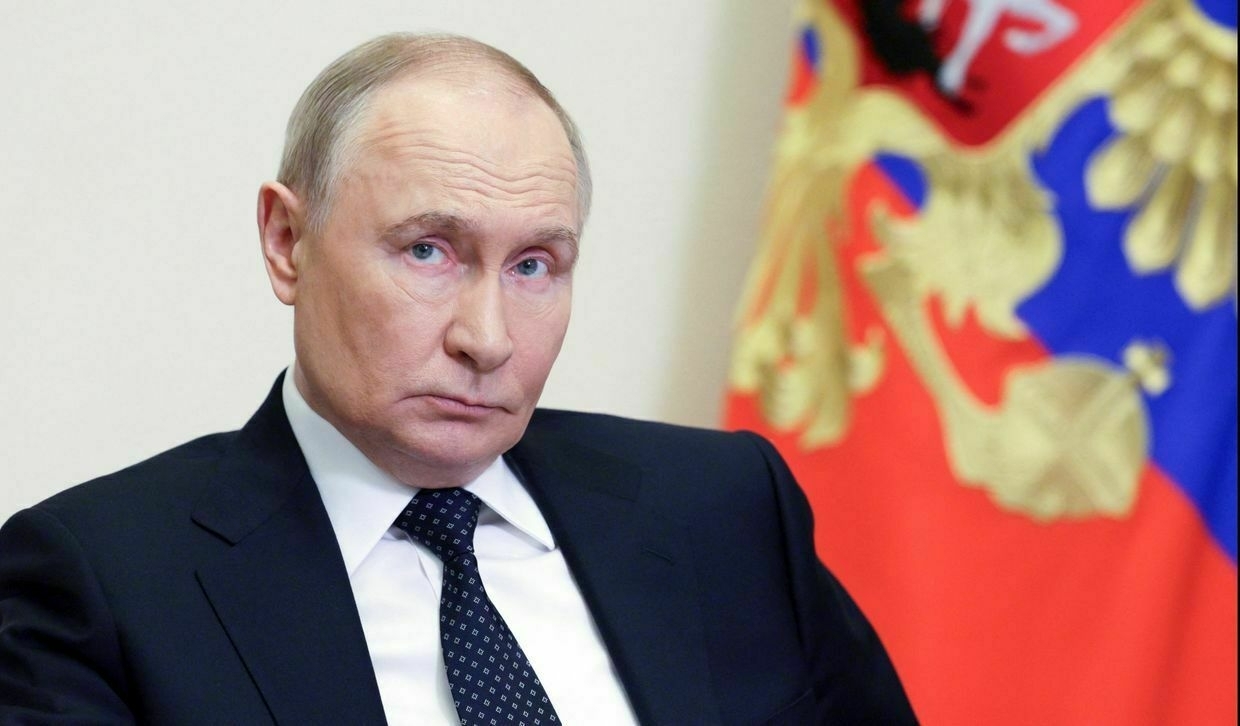
-
EU fails to adopt new Russia sanctions due to Hungarian, Slovak opposition
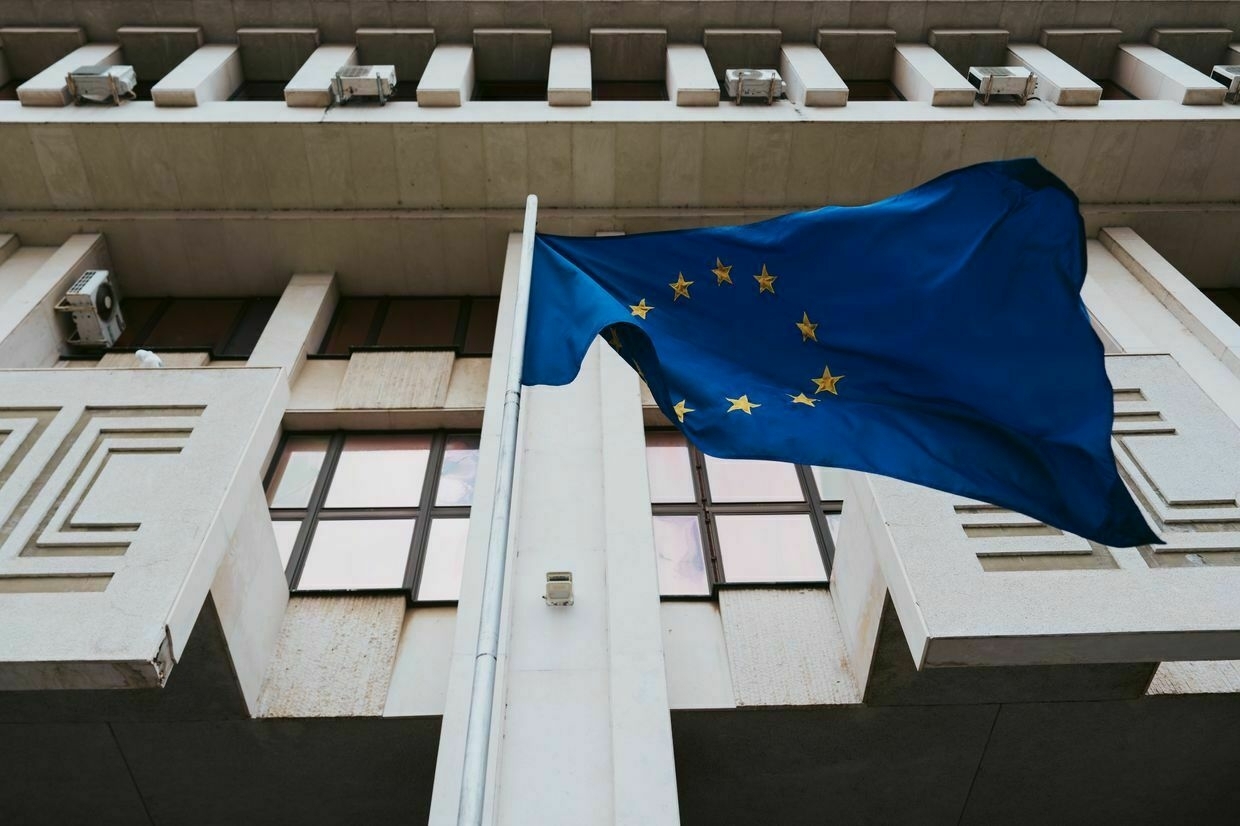
EU ambassadors have failed to approve the 18th package of sanctions against Russia due to opposition from Hungary and Slovakia, the news outlet Suspilne reported on June 27, citing an unnamed diplomatic source.
After the 17th package of sanctions against Russia took effect on May 20, Ukraine’s allies announced the following day that another round of restrictions was already in the works. Meanwhile, officials in Hungary and Slovakia protested against the approval of new restrictions against Russia.
Unlike Hungarian Prime Minister Viktor Orban, who has consistently opposed sanctions against Russia, Slovakia has not previously attempted to block EU sanctions.
“No agreement was reached. Ambassadors will return to this issue after two reservations are removed,” the source told Suspilne in a reference to the position of Slovakia and Hungary.
The ambassadors also agreed to extend sectoral sanctions against Russia for six months. These sanctions encompass a broad array of economic areas, including restrictions on trade, finance, technology and dual-use goods, industry, transport, and luxury goods.
In June, the European Commission presented the 18th package of sanctions, which includes new restrictions against the Russian energy and banking sectors and transactions related to the Nord Stream gas pipeline project.
Ukraine’s European allies are tightening sanctions against Russia as Moscow refuses to accept a ceasefire. Despite Russia’s refusal, no new U.S. sanctions have been imposed so far.
Warfare in Ukraine has changed… againThe Kyiv Independent’s Francis Farrell explains a new modification of the standard first-person view (FPV) drone that already once transformed the way war is fought. Fiber optic cable now used to connect drone operators to FPVs ensures a perfect image and control experience all the way to the target — and cannot be spotted by enemy drone detectors.The Kyiv IndependentFrancis Farrell
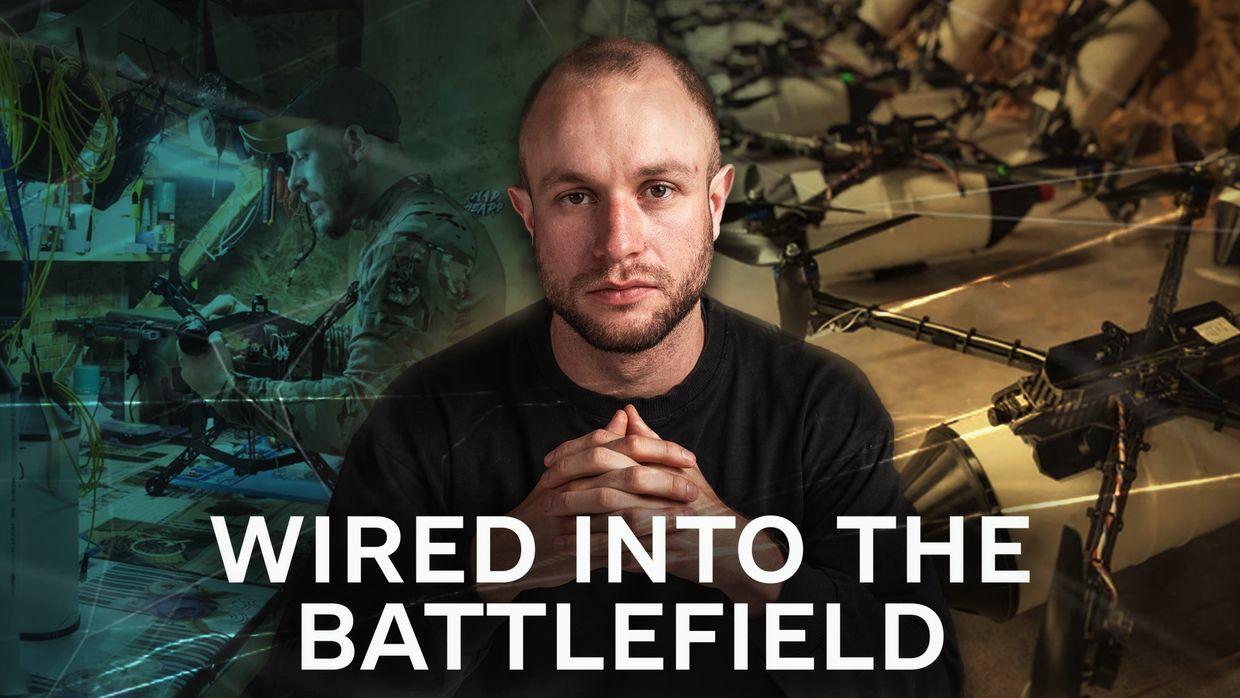
-
Ukraine’s new top prosecutor known for high-profile cases, seen as Zelensky loyalist
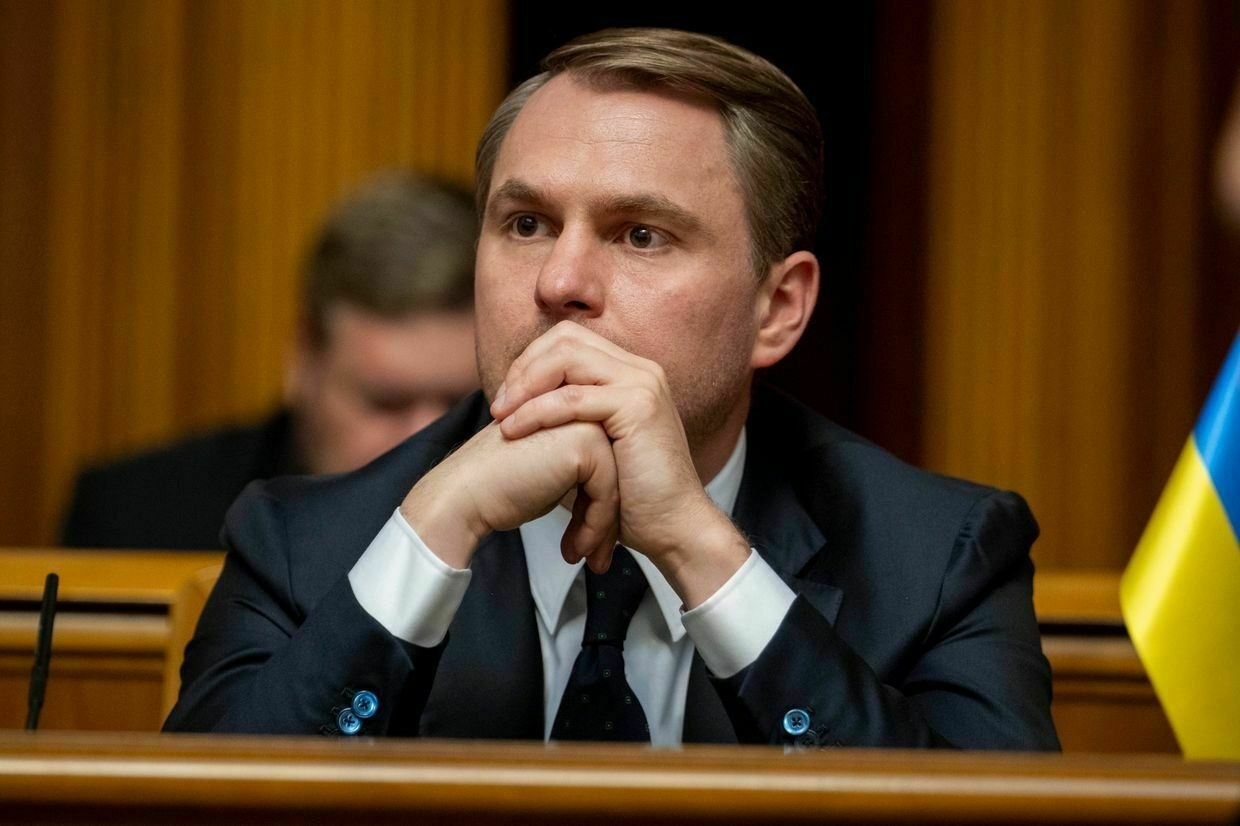
Loyalty to the incumbent administration has been the key requirement for prosecutor generals in Ukraine.
Ruslan Kravchenko, who was appointed as prosecutor general on June 21, appears to be no exception.
Previously he had been appointed as a military governor by President Volodymyr Zelensky and is seen as a presidential loyalist.
Kravchenko became Ukraine’s top prosecutor after a lengthy hiatus during which the position of prosecutor general remained vacant.
His predecessor, Andriy Kostin, resigned in October 2024. Kostin’s deputy, Oleksiy Khomenko, served as acting prosecutor general in the interim.
Kravchenko, who also has a background as a military prosecutor and has prosecuted the Russian war crimes in Bucha, was seen by the authorities as an appropriate candidate for the prosecutor general job in wartime.
Many in civil society disagree. Activists and experts have called for appointing an independent and apolitical prosecutor general capable of delivering impartial justice.
To ensure this, they propose appointing the prosecutor general with the participation of international experts, similarly to how it is done in some other law enforcement and anti-corruption agencies.
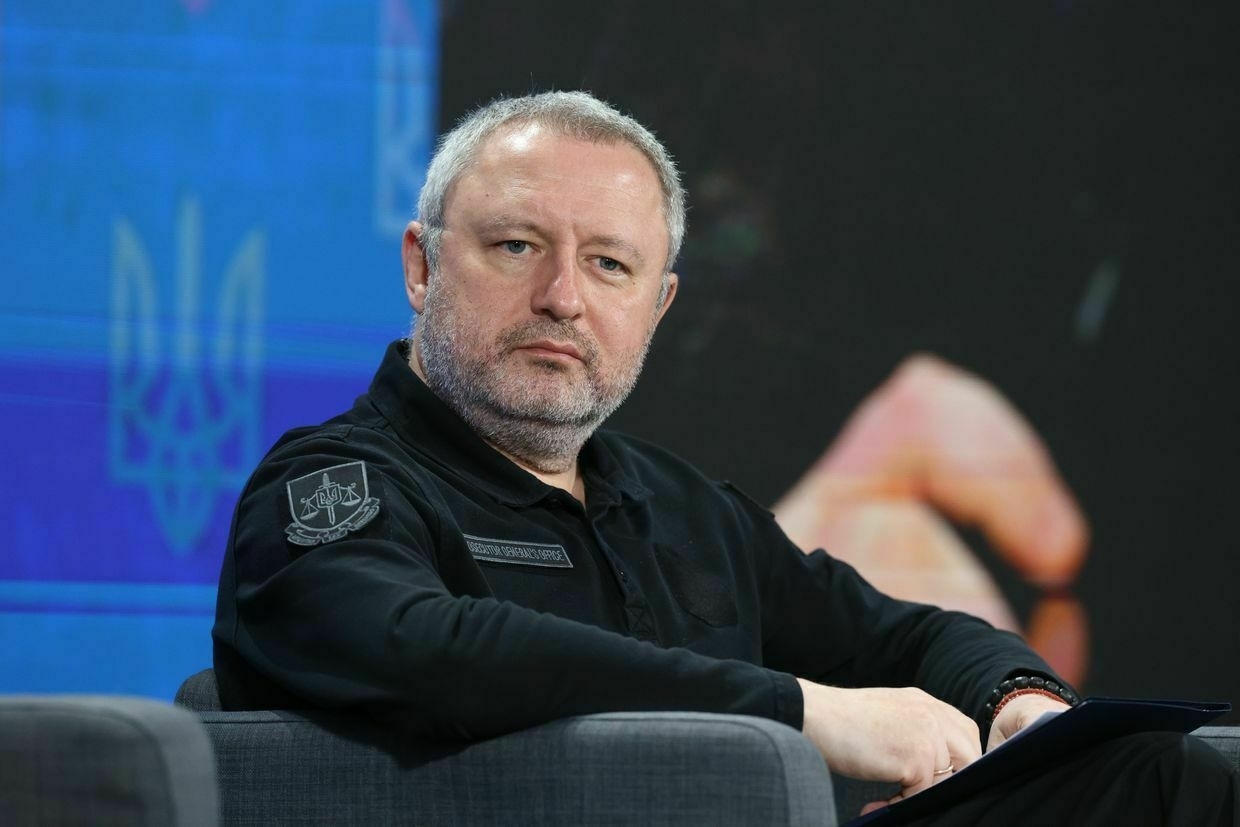
Andriy Kostin, former prosecutor general of Ukraine, takes part in a forum with heads of state institutions in Kyiv, Ukraine, on Aug. 27, 2024. (Viktor Kovalchuk / Global Images Ukraine via Getty Images) Currently, the prosecutor general is nominated by the president and approved by parliament, where President Volodymyr Zelensky’s party holds the majority.
Some argue that this sets any prosecutor general up for failure.
“As long as the current (appointment) procedure is kept, any prosecutor general will be dependent,” Yaroslav Yurchyshyn, a member of parliament from the Holos opposition party, told the Kyiv Independent. “Are there grounds for believing that (Kravchenko) could be effective and professional? Yes. But won’t this be offset by his political dependence?"
The Prosecutor General’s Office told the Kyiv Independent that statements on Kravchenko’s dependence on the Zelensky administration are “speculative, baseless and not supported by any facts."
Another issue is that Kravchenko was deemed not to meet ethics and integrity standards during earlier contests for law enforcement jobs. This is why some anti-corruption activists believe he is not fit to be prosecutor general either.
Commenting on the accusations, the Prosecutor General’s Office told the Kyiv Independent that Kravchenko received the highest scores in tests for legal knowledge, analytical thinking and practical skills during the 2022 contest for the job of the National Anti-Corruption Bureau’s head.
“His activities have always been based on the principles of professionalism, impartiality, legality and responsibility,” the prosecutor’s office added.
Experts interviewed by the Kyiv Independent provided different assessments of Kravchenko.
Daria Kaleniuk, executive director of the Anti-Corruption Action Center, argued that she does not trust Kravchenko and described his career path as “questionable.” Kaleniuk was on the vetting panel that rejected Kravchenko’s candidacy for an anti-corruption prosecutor job in 2020 over integrity concerns.
Yaroslav Zhelezniak, a member of parliament from the liberal Holos party and a frequent critic of the authorities, was more upbeat. He said that Kravchenko was the best among the candidates for prosecutor general being considered by the President’s Office.
“He does have management skills,” Oleksandr Lemenov, head of the anti-corruption watchdog StateWatch, told the Kyiv Independent, based on what he heard from people who had worked with Kravchenko. “Whether (his skills) will be enough for the position of prosecutor general — only time will tell."
With Trump disengaged and EU complacent, Ukrainian reforms lose momentumRussia’s all-out war has accelerated Ukraine’s push to join the European Union and NATO, as well as its dependency on Western loans and aid. Before, these things would have been heavily preconditioned on Ukraine implementing crucial reforms. However, the war has also eased the pressure on Kyiv to carry outThe Kyiv IndependentOleg Sukhov
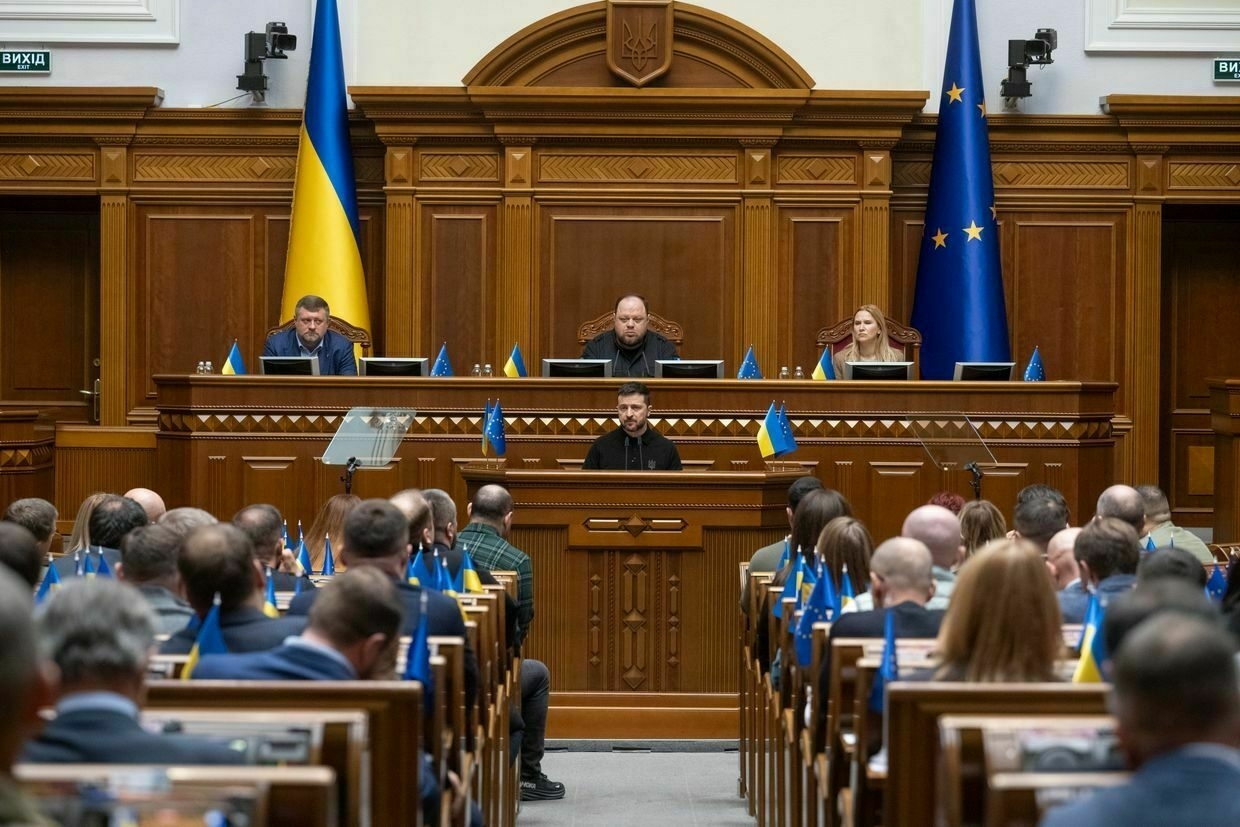
Early careerKravchenko, 35, is the youngest prosecutor general in Ukraine’s independent history. He studied at the Kyiv Military College and at the military law department of the Yaroslav the Wise Legal Academy in Kharkiv.
He was a prosecutor in Crimea during its illegal annexation by Russia in 2014 and left the peninsula as a result.
Subsequently Kravchenko was in charge of the criminal case against Russian soldiers Alexander Aleksandrov and Yevgeny Yerofeyev. They were sentenced to 14 years in jail for participating in a war of aggression and swapped as part of a prisoner exchange in 2016.
Kravchenko was also a prosecutor in the case against soldiers of Ukraine’s Tornado volunteer unit, which consisted of former convicts. They were sentenced to different prison terms of up to 11 years in 2017 on charges of kidnapping, torturing and raping people.
Why did Ukraine’s prosecutor general resign, and who will replace him?The formal reason for Prosecutor General Andriy Kostin’s resignation on Oct. 22 was the ongoing major corruption scandal involving hundreds of prosecutors who obtained disability benefits, including financial support, the ability to evade the military draft and leave the country at will. A crucial question is whether Kostin’s resignation willThe Kyiv IndependentOleg Sukhov
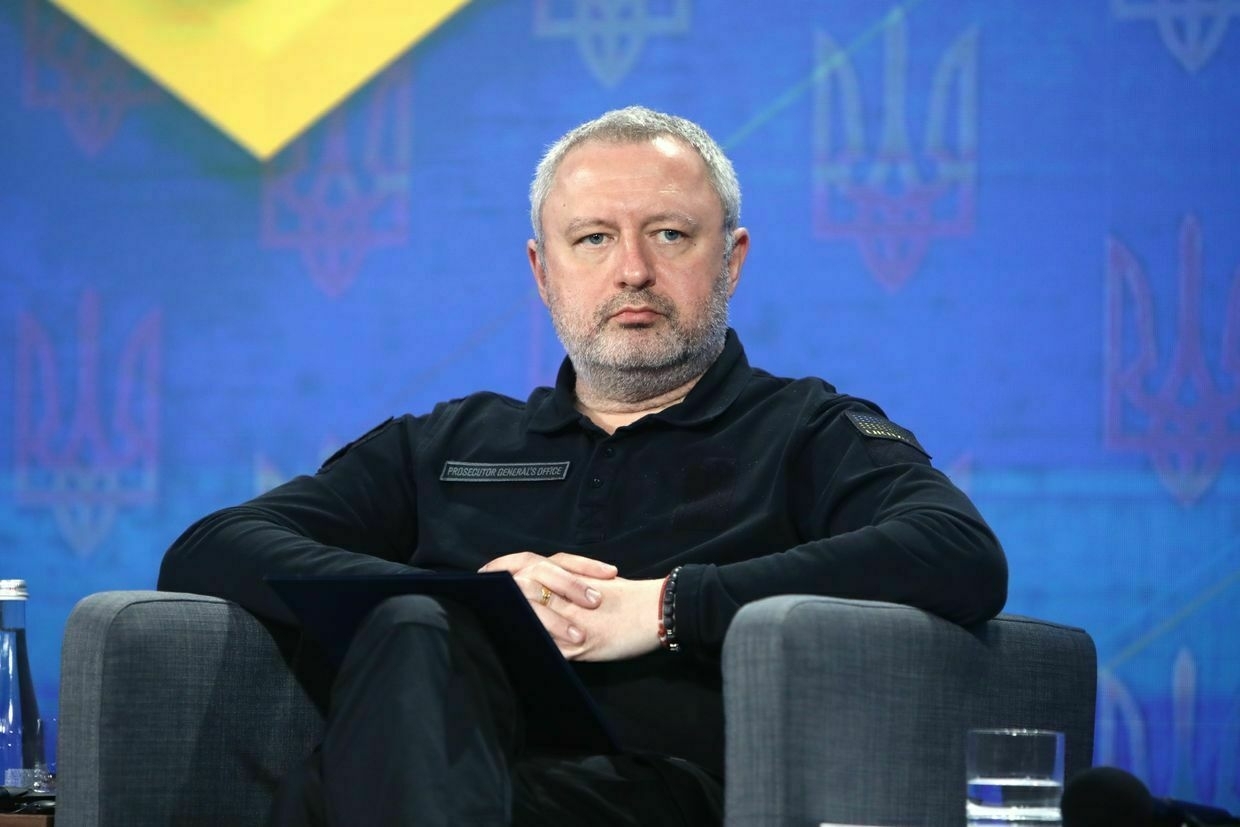
At the military prosecutor’s officeFrom 2015 to 2019, Kravchenko worked as a prosecutor at the military prosecutor’s office, then headed by Anatoly Matios.
The military prosecutor’s office, a Soviet relic, was subordinated to both the prosecutor general and defense minister and did not comply with Western legal standards. It was dissolved in 2020.
Lemenov, head of anti-corruption watchdog StateWatch, argued that Kravchenko may try to resurrect the military prosecutor’s office, which would be a dangerous tendency.
The office had a highly controversial reputation within Ukraine’s civil society. Matios and his subordinates were accused of corruption, blocking criminal cases and persecuting activists — allegations that they denied.
Kaleniuk also told the Kyiv Independent that the military prosecutor’s office lacked transparency and accountability. In 2017, public access to the asset declarations of military prosecutors was closed — a move that anti-corruption activists interpreted as an effort to hide their ill-gotten wealth.
From 2017 to 2019, Kravchenko was the prosecutor during the high treason trial against Viktor Yanukovych, a disgraced former president ousted by a popular uprising in 2014. He was convicted in absentia and sentenced to 13 years in prison for publicly urging Russian President Vladimir Putin to invade Ukraine in 2014.
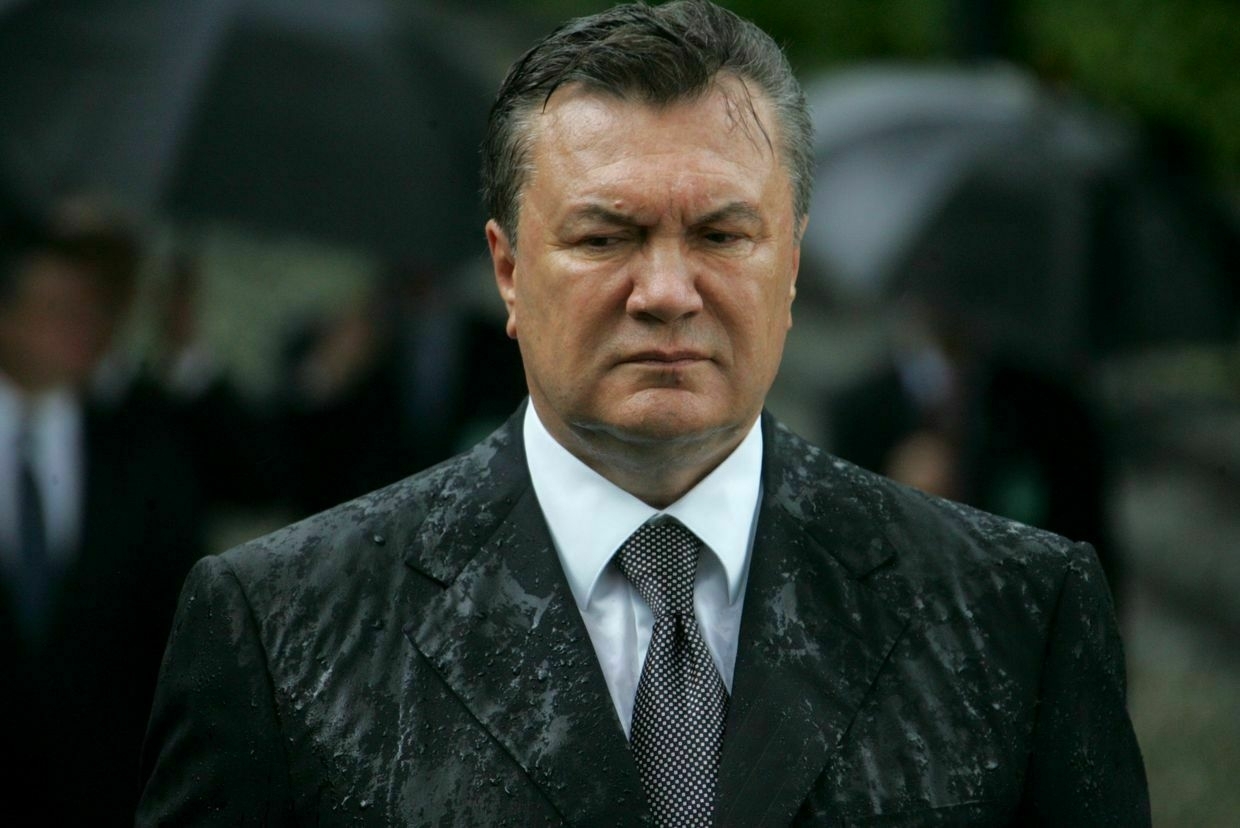
Then-president of Ukraine Viktor Yanukovych in Kyiv, Ukraine, on May 17, 2010. Ruslan Kravchenko was a prosecutor on Yanukovych’s high treason trial that took place in absentia in 2017-2019. (Sasha Mordovets / Getty Images) Some commentators, including Yurchyshyn, praised Kravchenko’s role in the trial.
Others were more skeptical.
Vitaly Tytych, who represents the families of protesters murdered during the revolution that ended Yanukovych’s presidency, has previously criticized the high treason case as lacking substance and called it a public relations stunt.
He accused the prosecutor’s office of being unprofessional, failing to collect enough evidence and making controversial statements that Yanukovych’s defense used to prove a political motive in the case.
Who is Oleksandr Klymenko, Ukraine’s new top anti-corruption prosecutor?The new Prosecutor General Andriy Kostin began his reign with a long-awaited move, ending the seemingly never-ending saga of choosing the country’s top anti-corruption prosecutor. Oleksandr Klymenko, who won the job contest back in December, was formally named the head of the Specialized Anti-Corruption Prosecutor’s Office (SAPO) on July 28.The Kyiv IndependentOleg Sukhov
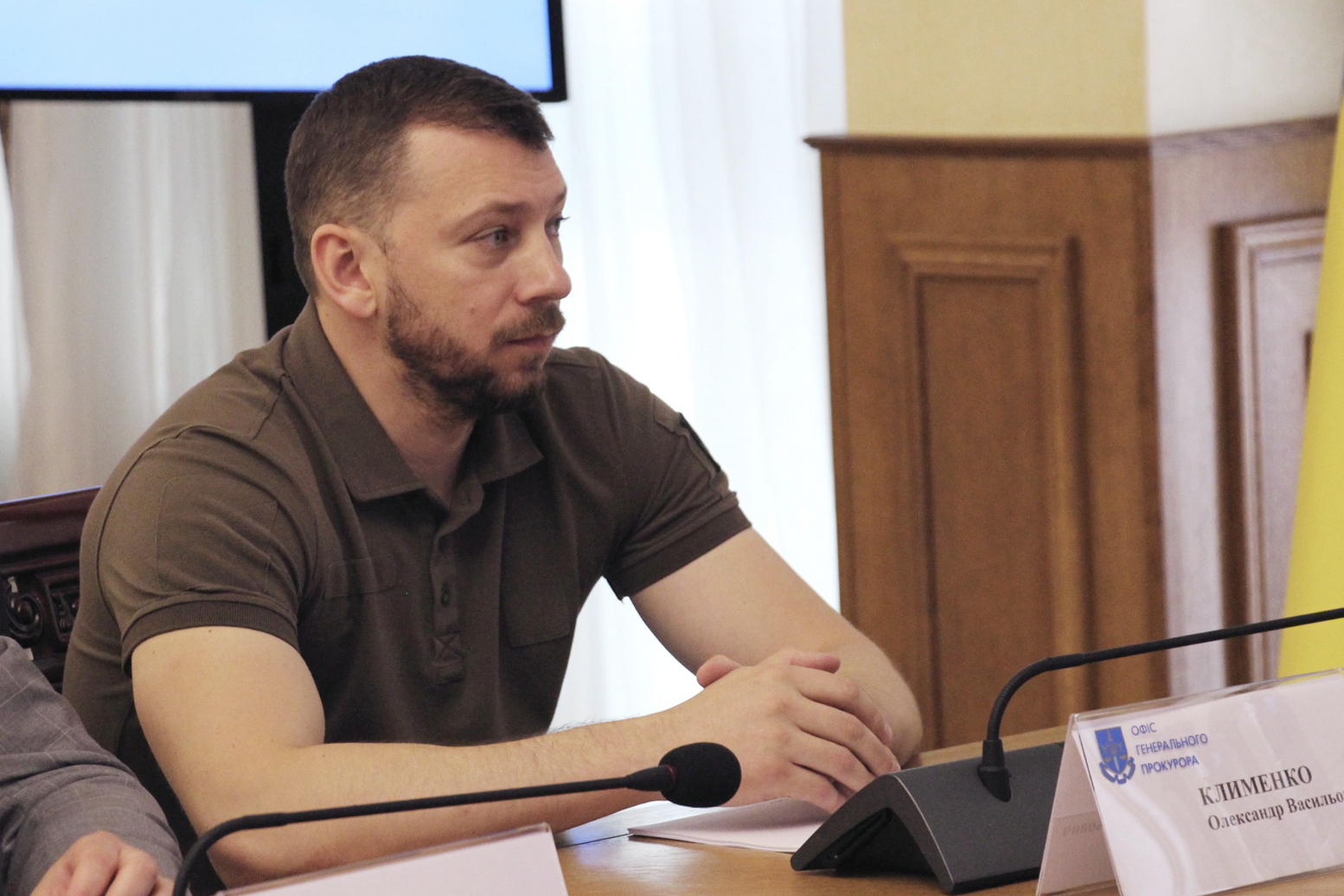
Integrity issuesIn 2020 Kravchenko applied for the job of an anti-corruption prosecutor but was vetoed by a panel of Ukrainian and international experts as not meeting integrity and ethics standards.
One of Kravchenko’s alleged unethical actions was that he had applied for and received a 42-square-meter apartment in Kyiv from the state free of charge and sold it.
The distribution of free state-provided apartments to prosecutors and other officials is a widespread practice in Ukraine, although it is often criticized on ethical grounds.
Kaleniuk, who was on the panel, said that Kravchenko had bypassed the waiting list due to a war veteran document and acquired the apartment ahead of schedule.
“When there is a high level of corruption in the country, a prosecutor general with integrity issues is being appointed.”
However, he did not actually take part in the war and got war veteran status because he was a military prosecutor in the Donbas, where Russia launched an invasion in 2014, she added.
Kravchenko lived in an apartment in Kyiv owned by his wife at the time.
Asked by the vetting panel why he needed another apartment, he said: "I'm a man first of all, today I'm married, and tomorrow I might not be."
It is ironic that, due to the appointment procedures, "to become a rank-and-file anti-corruption prosecutor, you have to meet integrity standards, and to become prosecutor general, you don't," Yurchyshyn said.
Kravchenko denied the accusation of unethical behavior on June 22, saying on Facebook that he had a right to acquire the apartment and that he sold it in order to buy a bigger one.
In 2022, he also took part in a contest to become the chief of the National Anti-Corruption Bureau of Ukraine (NABU). However, he was vetoed again for not meeting integrity and ethics standards.
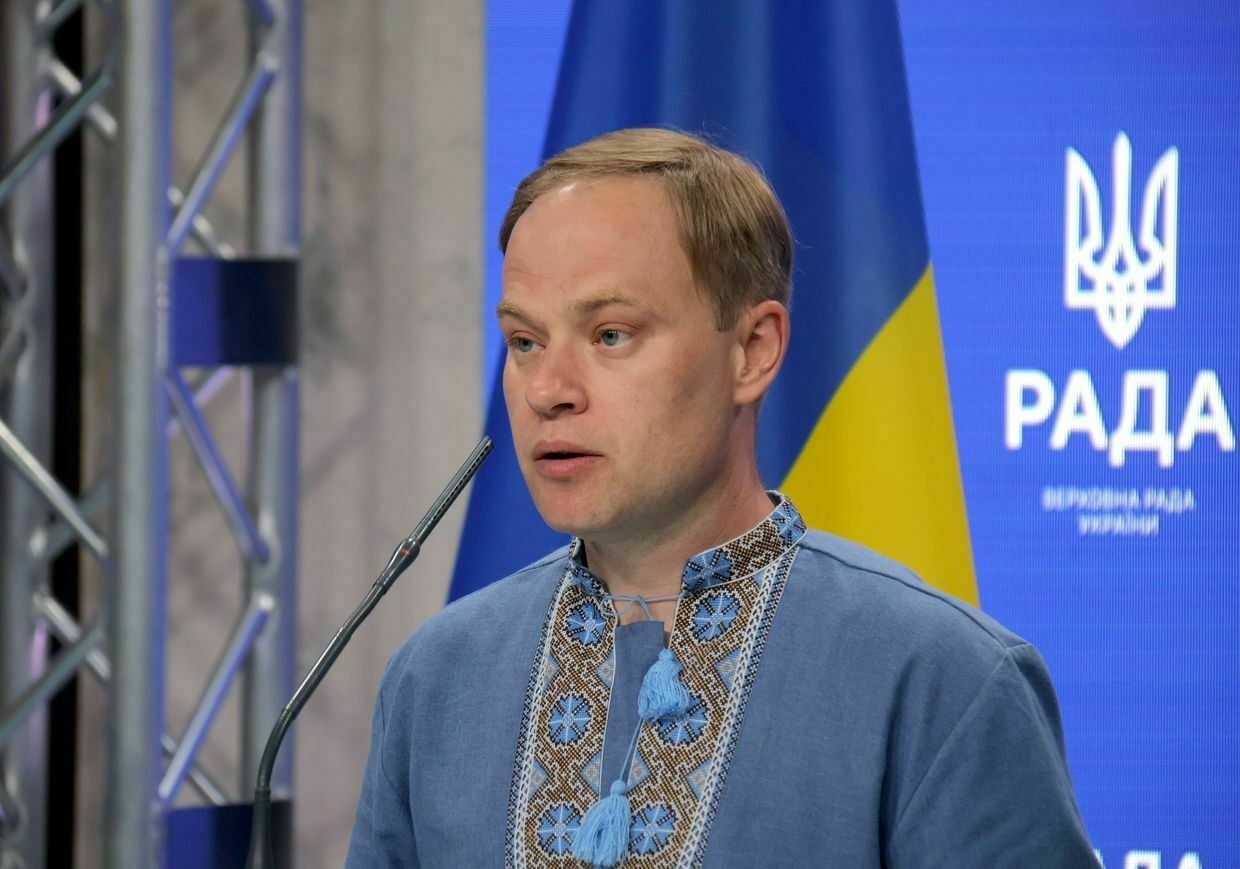
Chairman of the Verkhovna Rada Committee on Freedom of Speech Yaroslav Yurchyshyn speaks during a briefing in Kyiv, Ukraine, on May 8, 2024. (Yevhen Kotenko / Ukrinform/Future Publishing via Getty Images) The vetting panel argued that the income of Kravchenko's parents did not meet their expenses, signaling that he could be using them as a front for his own assets.
During the vetting process, Kravchenko indicated max.noumann@gmail.com as his email, triggering another ethical concern. The vetting panel said that the name was similar to that of Max Naumann, the head of a pro-Hitler Jewish group in Nazi Germany that called for the assimilation of German Jews.
Kravchenko said that this was a coincidence, and that he had made the name up.
"When there is a high level of corruption in the country, a prosecutor general with integrity issues is being appointed," Yurchyshyn said. "This is not a good signal for society, and this will be perceived negatively by society and our Western partners."
Ukraine’s anti-corruption bureau makes progress yet doesn’t take on top presidential alliesAs Ukraine’s civil society and the country’s Western partners call on the authorities to fight corruption amid Russia’s full-scale invasion, the National Anti-Corruption Bureau of Ukraine (NABU) is showing mixed results. A year has passed since Semen Kryvonos became the head of the NABU in March 2023, replacing the bureau’The Kyiv IndependentOleg Sukhov
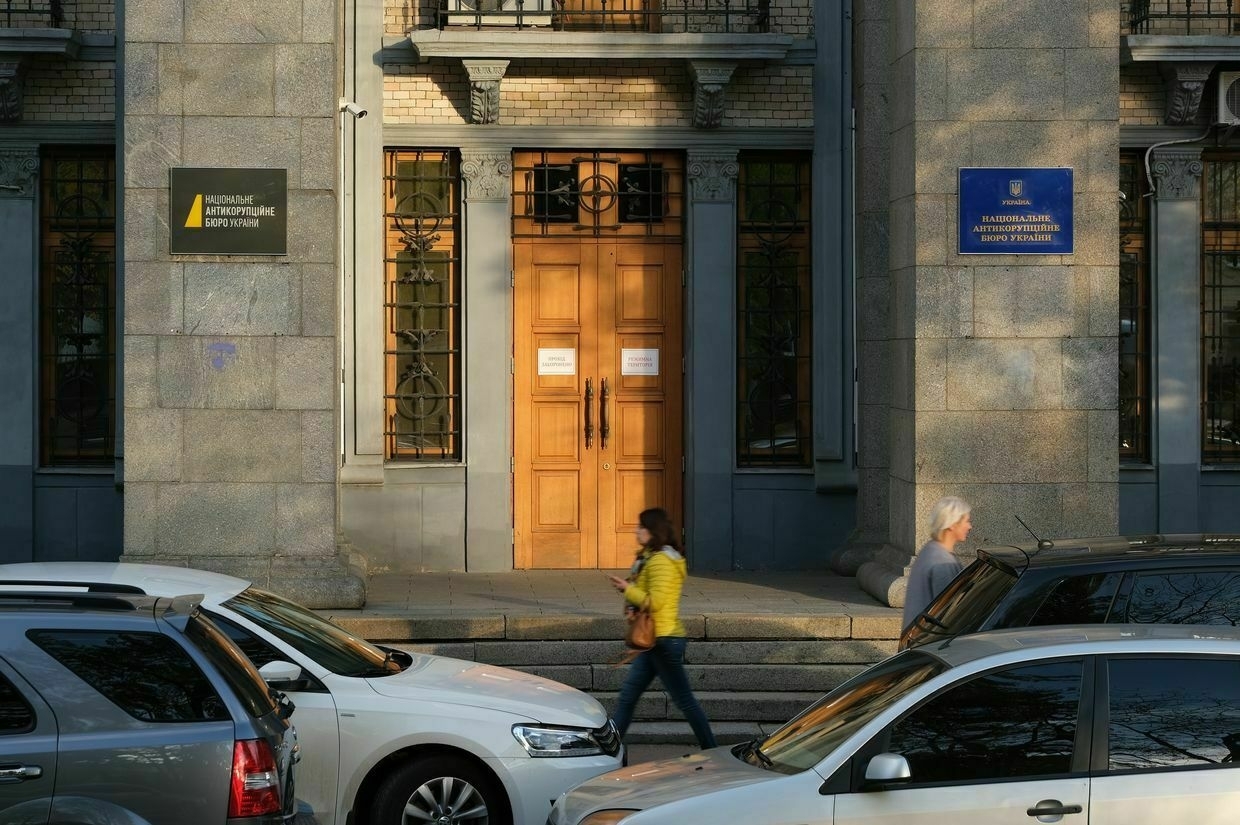
Recent jobsFrom 2021 to 2022, Kravchenko was the chief prosecutor of Bucha in Kyiv Oblast, and oversaw the investigation of war crimes committed by Russian troops in the town.
During their brief occupation of Bucha and nearby areas in February and March 2022, Russian troops massacred hundreds of civilians.
As part of the Bucha investigation, 24 indictments against Russian soldiers have been sent to courts for trials in absentia.
Kravchenko also served as the head of the Kyiv Oblast military administration from 2023 to 2024 — an equivalent to a governor, appointed by the president.
Kravchenko was also appointed by the Cabinet as the head of the State Tax Service in December 2024 and served in that role until June.
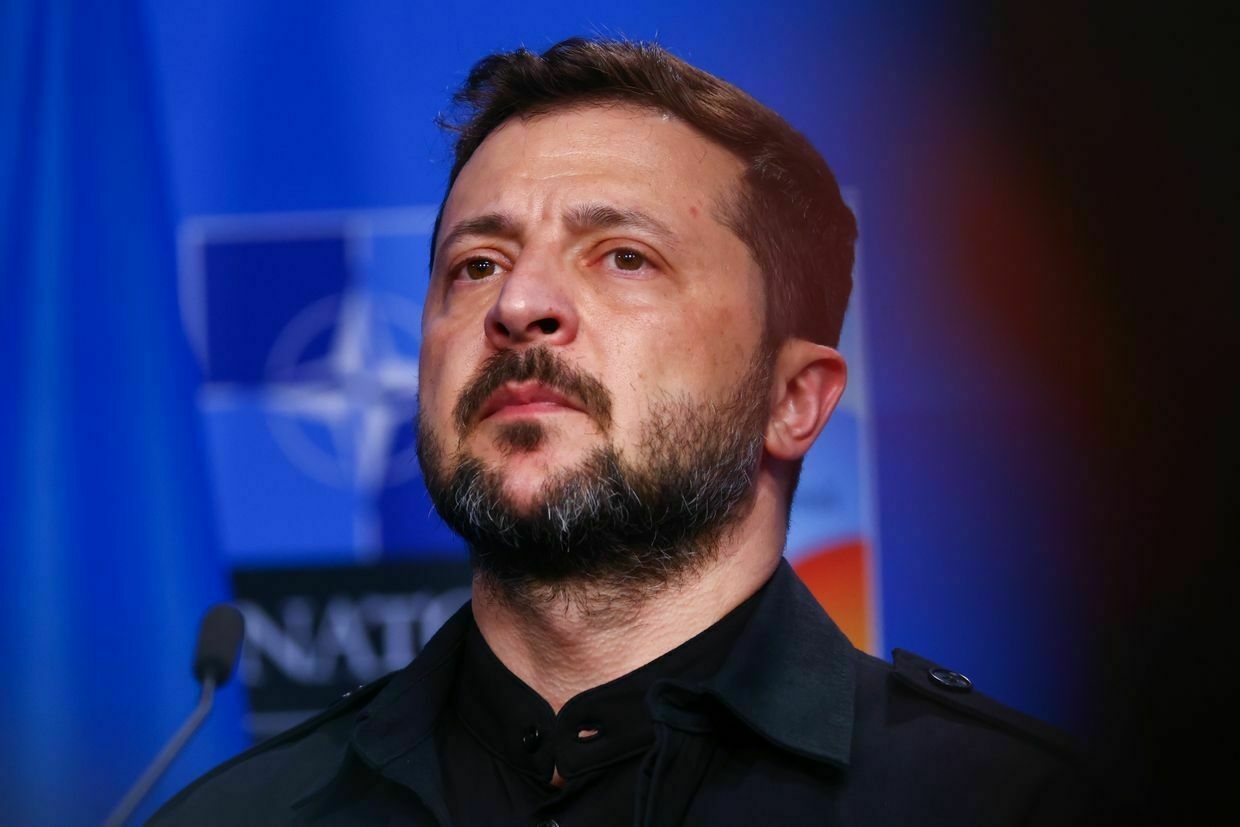
President Volodymyr Zelensky attends a meeting between NATO, the European Union, and Ukraine in The Hague, Netherlands, on June 24, 2025. (Beata Zawrzel / NurPhoto via Getty Images) Despite the shortness of Kravchenko’s tenure there, Zhelezniak argued that Kravchenko had been effective as the Tax Service’s head: There were no corruption scandals, budget revenue rose, and the number of businesses' complaints fell.
Kaleniuk and Yurchyshyn argued, however, that Kravchenko's stint in the role was too short to allow for meaningful assessment.
Yet the main issue remains — Kravchenko’s alleged dependence on the President’s Office could make it difficult for prosecutors to resist political interference.
"Kravchenko is not independent. He is convenient for (Zelensky's) Oleh Tatarov," Kaleniuk said in a reference to Zelensky's controversial deputy chief of staff responsible for law enforcement.
Note from the author:
Hello! My name is Oleg Sukhov, the guy who wrote this piece for you.
I was born in Russia and moved to Ukraine in 2014 because I couldn't stand the suffocating atmosphere of that semi-totalitarian country. I used to think it might be possible to transform Russia into a liberal Western-oriented country. Now it's clear that it's a lost cause.
But at least I can atone for the crimes of my homeland by exposing its barbaric aggression against Ukraine and providing objective and independent coverage of what is going on there. I'm also trying to contribute to Ukraine's transformation into a full-fledged Western liberal democracy strong enough to defeat Russia.
Our publication needs help from every one of you — support Ukrainian wartime journalism, become a member of the Kyiv Independent.
Ukraine’s judicial reform relaunch shows mixed results so farIn late 2023, Ukraine finally re-launched the process of vetting judges as part of a long anticipated judicial reform – a key condition for Ukraine’s accession to the European Union. Four months later, the results are mixed. On the one hand, the High Qualification Commission, a top judicial body, has approvedThe Kyiv IndependentOleg Sukhov
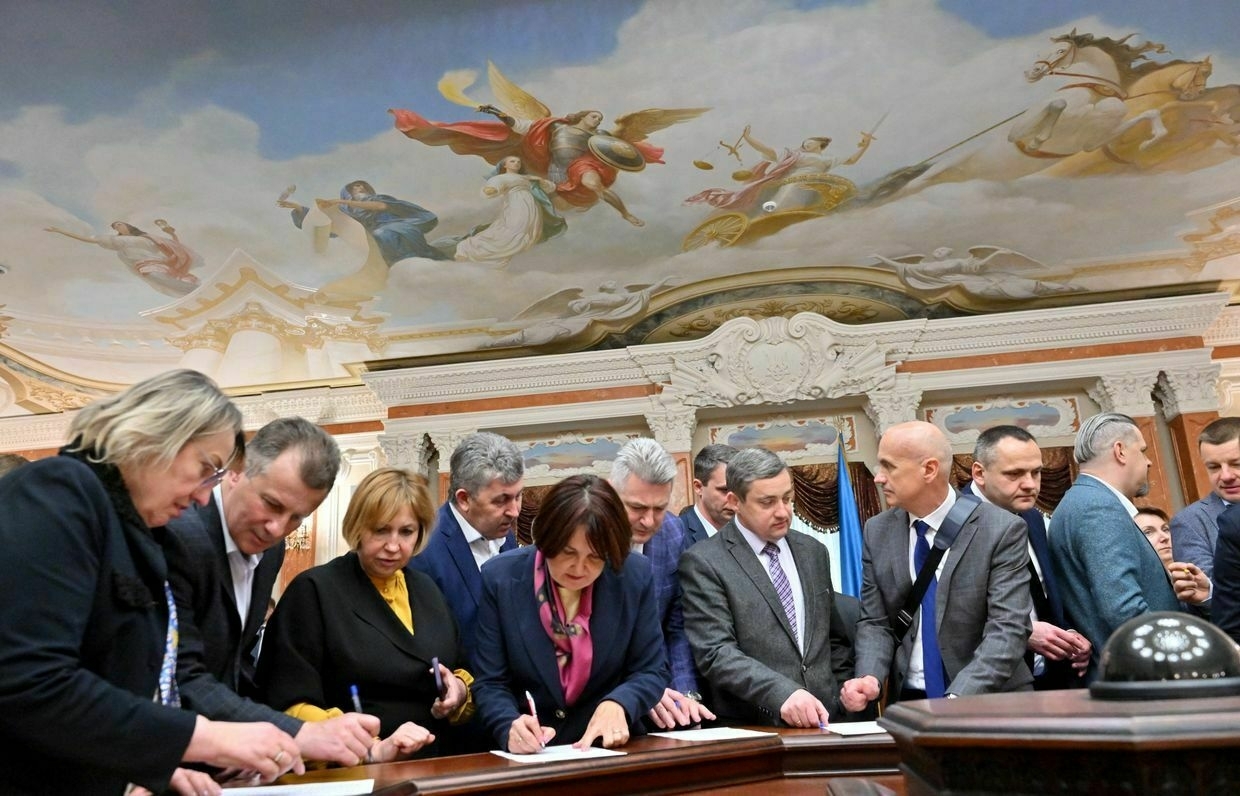
-
Command change in 72nd Mechanized Brigade
The reformation of the Ukrainian Army into corps formations is in full swing. With the creation of new command structures and units, experienced commanders are being called up from brigades…
-
Who are the Ukrainian Cossacks and why they have nothing in common with the Russians
-
Clashes ongoing in eastern Ukrainian village near lithium deposits, as military rejects claims of Russian capture
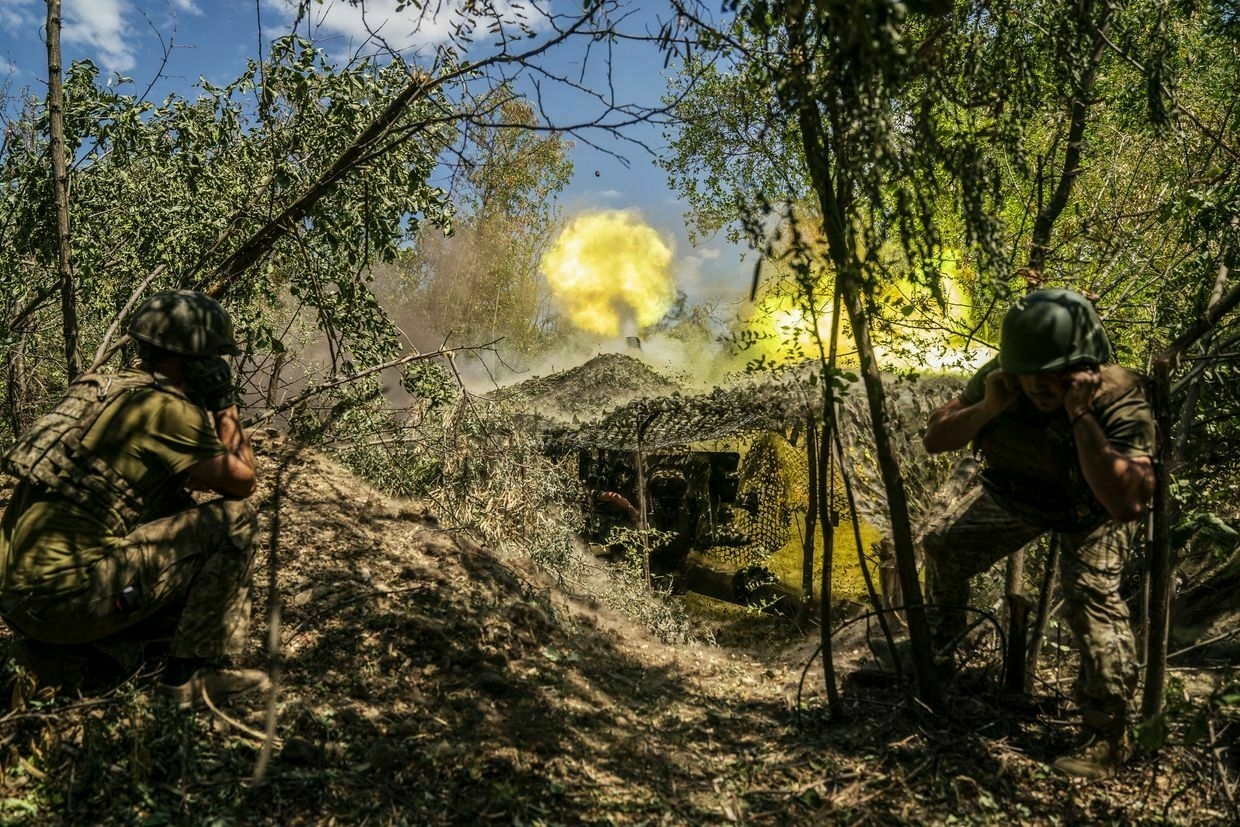
Active fighting is still taking place around the village of Shevchenko in Donetsk Oblast, home to one of Ukraine’s largest lithium deposits, a spokesperson for Ukraine’s Khortytsia group of forces told the Kyiv Independent on June 27, denying reports Russia had occupied the village.
Earlier on June 26, Russia’a Defense Ministry said it had captured Shevchenko along with another other small settlements in the Velyka Novosilka region of the oblast, as Russian troops continue to push along all areas of the front line.
The spokesperson said that while Russian forces had pushed out Ukrainian soldiers on June 26, the situation is constantly evolving and subject to change several times a day.
“This is one of the two most intense directions right now,” Viktor Trehubov, the spokesperson, told the Kyiv Independent.
According to the Ukrainian Geological Survey, the Shevchenkivske deposit covers nearly 40 hectares (98 acres) on the eastern outskirts of Shevchenko. Exact data on the Shevchenkivske deposit’s lithium reserves are classified, but it’s considered one of the most promising.
The deposit’s main reserves consist of lithium ores, but it also contains other rare elements such as rubidium, cesium, tantalum, niobium, beryllium, and tin.
Ukraine is home to 20 of the world’s critical minerals and metals like titanium used in the aerospace and defense industries and lithium, an essential component of electric vehicle batteries.
The U.S.-Ukraine minerals deal, signed April 30, specifically mentions lithium as one of the mineral resources that both parties could profit from extracting.
Despite the deposit’s relatively small size, it could be operated by a single mine, which could make extraction more efficient, according to a Ukrainian Geological Survey data.
The survey classifies the deposit in the highest complexity category of three possible levels, which could complicate development.
According to KSE, Ukraine holds one-third of the European Union’s lithium reserves and approximately 3% of global lithium reserves.
Putin under pressure to declare war on Ukraine, but experts say Russia isn’t readyDespite suffering over 1 million casualties, pounding Ukrainian cities nightly with missiles and drones, and committing countless war crimes, one startling fact about Russia’s full-scale invasion remains — Moscow has yet to officially declare war on Ukraine. In February 2022, Russian President Vladimir Putin described what he believed was going to be a swift victory and the capture of Kyiv within days as a “special military operation.” Nearly three-and-a-half years later, the Kremlin is stuck The Kyiv IndependentChris York
The Kyiv IndependentChris York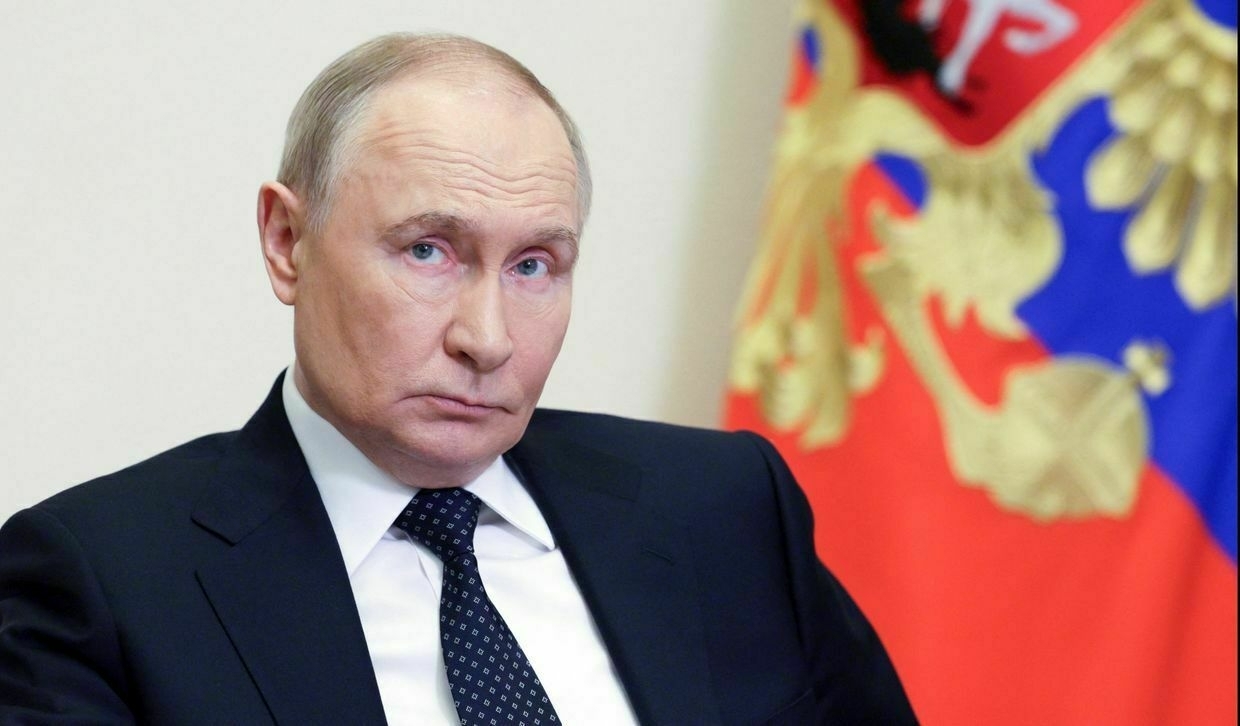
-
Pro-Palestinian activists reportedly destroy military equipment intended for Ukraine
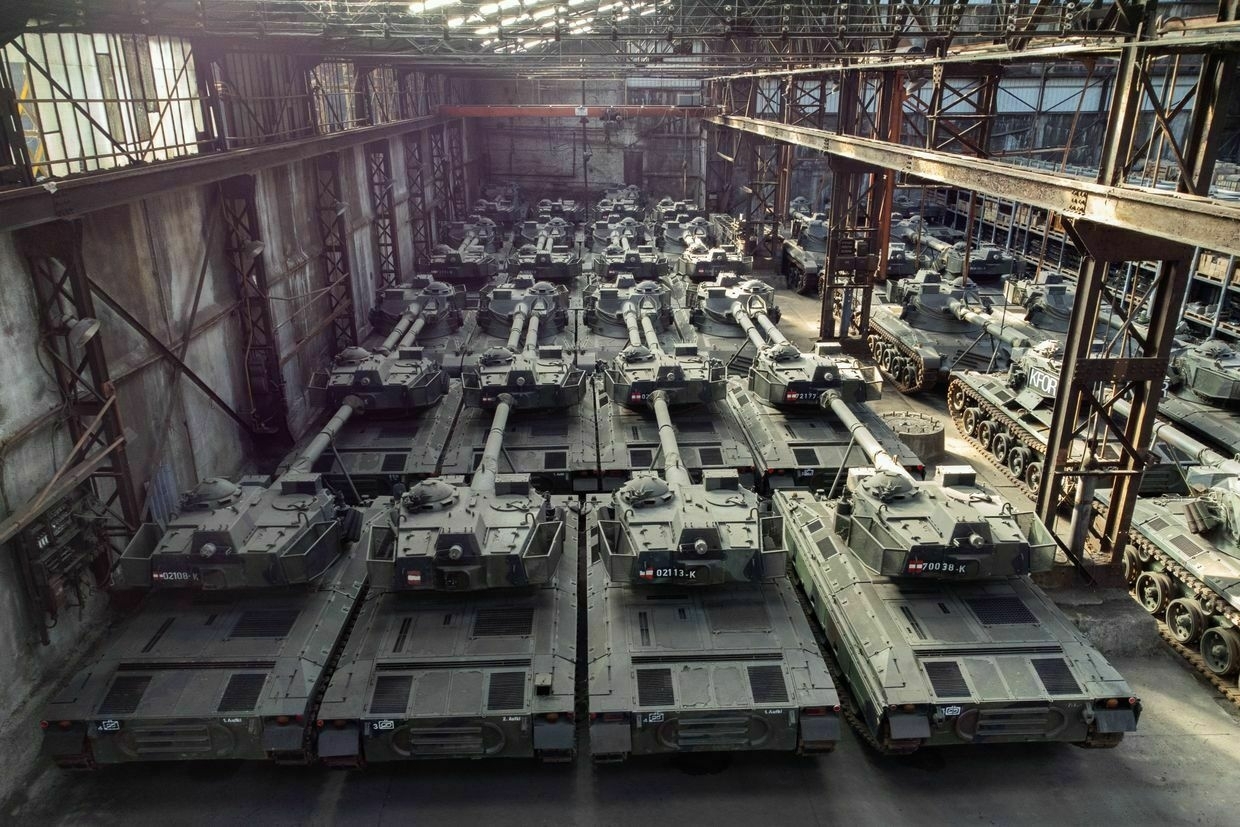
Around 150 pro-Palestinian activists have broken into a storage facility and damaged military equipment intended for Ukraine, the Belgian news outlet 7sur7 reported on June 26.
The facility belongs to OIP Land Systems, a company that produces military equipment for Ukraine. The activists reportedly thought the equipment would be supplied to Israel.
The activists, who were wearing white overalls and masks, took part in the Stop Arming Israel campaign. The protests seek to pressure Belgian authorities to maintain the military embargo against Israel and impose sanctions on it.
The protesters, armed with hammers and grinders, first entered the company’s offices, where they smashed computers, and then broke into the hangars, where they severely damaged some vehicles, Freddy Versluys, CEO of OIP Land Systems, said.
Since the beginning of the Russian invasion, the company has supplied the Ukrainian army with about 260 armored vehicles. The damage caused by the activists' actions is estimated at $1.1 million, according to 7sur7.
“A further delivery has now been delayed by at least a month. That’s all these Hamas sympathizers will have achieved with their action,” Versluys said.
The company was reportedly targeted by pro-Palestinian protesters because Elbit Systems, an Israeli defense company, owns it.
Protesters believe that Elbit supplies 85% of the drones and most of the ground military equipment used by the Israel Defense Forces, 7sur7 reported.
Yet, the OIP Land Systems CEO claimed that his company has not produced defense systems for Israel for over 20 years.
OIP Land Systems has provided defense products to Ukraine on several occasions, including Leopard 1 tanks, which are manufactured at the Tournai plant.
With no new US aid packages on the horizon, can Ukraine continue to fight Russia?The U.S. has not announced any military aid packages for Ukraine in almost five months, pushing Kyiv to seek new alternatives. But time is running out quickly as Russian troops slowly advance on the eastern front line and gear up for a new summer offensive. “While Ukraine’s dependence onThe Kyiv IndependentKateryna Hodunova
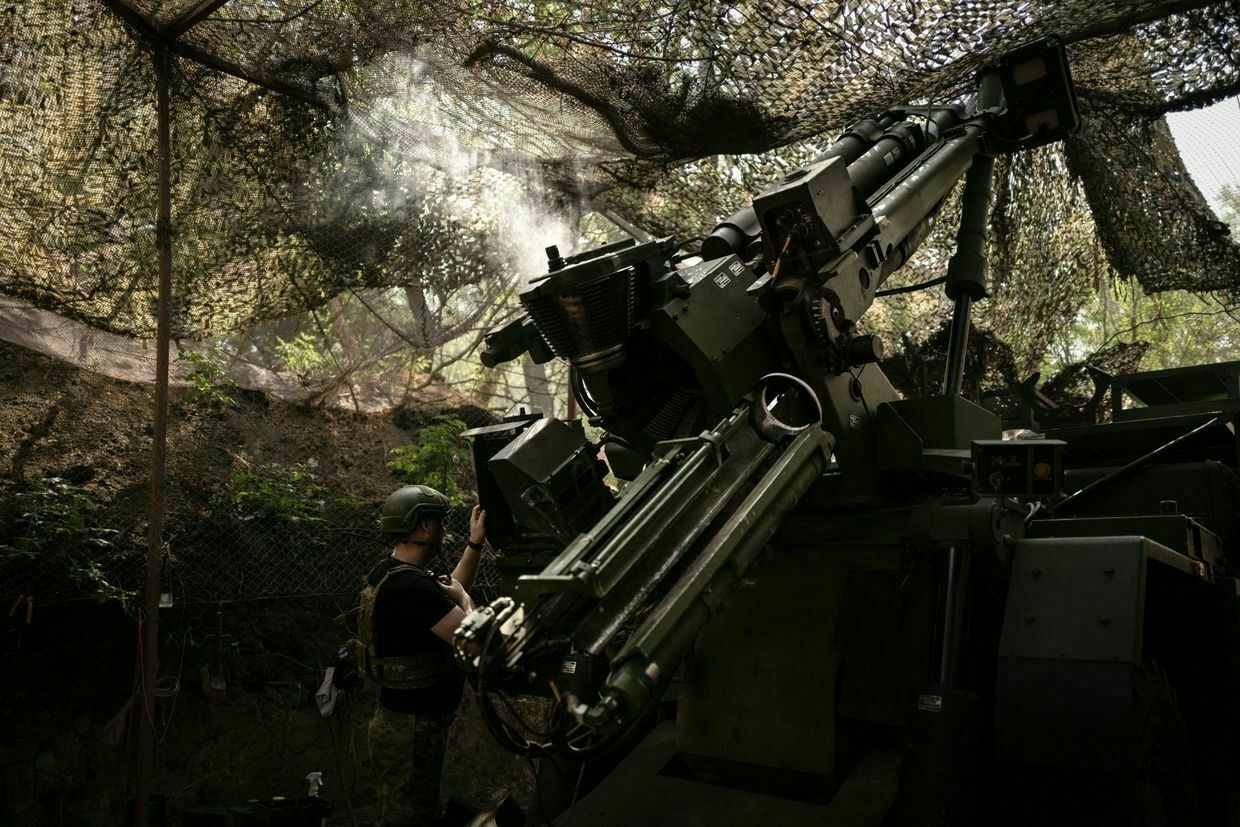
-
Warfare in Ukraine has changed… again
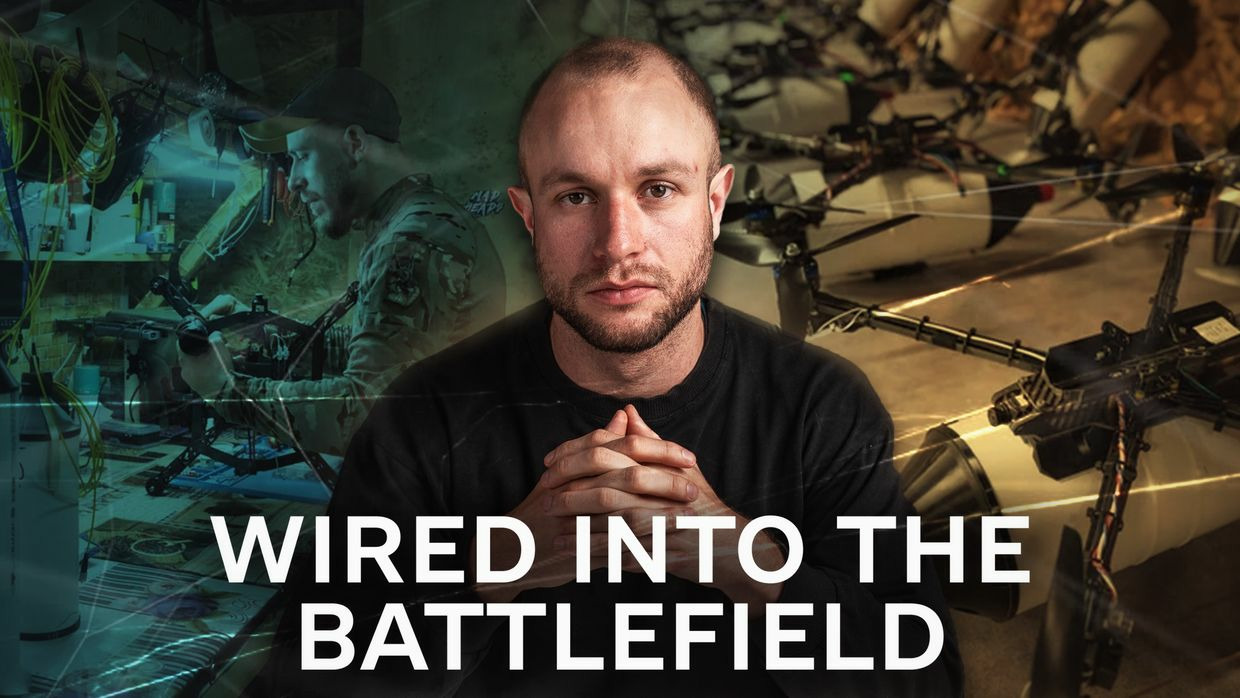
The Kyiv Independent’s Francis Farrell explains a new modification of the standard first-person view (FPV) drone that already once transformed the way war is fought. Fiber optic cable now used to connect drone operators to FPVs ensures a perfect image and control experience all the way to the target — and cannot be spotted by enemy drone detectors.
Unlike many of the full-scale war’s most effective innovations, fiber optic drones were first introduced not by pioneering Ukrainian drone teams, but by Russian forces. As Russia ramps up the use of fiber optic drones amid its summer offensive campaign, Ukraine is racing to catch up.
-
‘We can crack Russia with sanctions’ – Estonian foreign minister says Putin far from victory in Ukraine
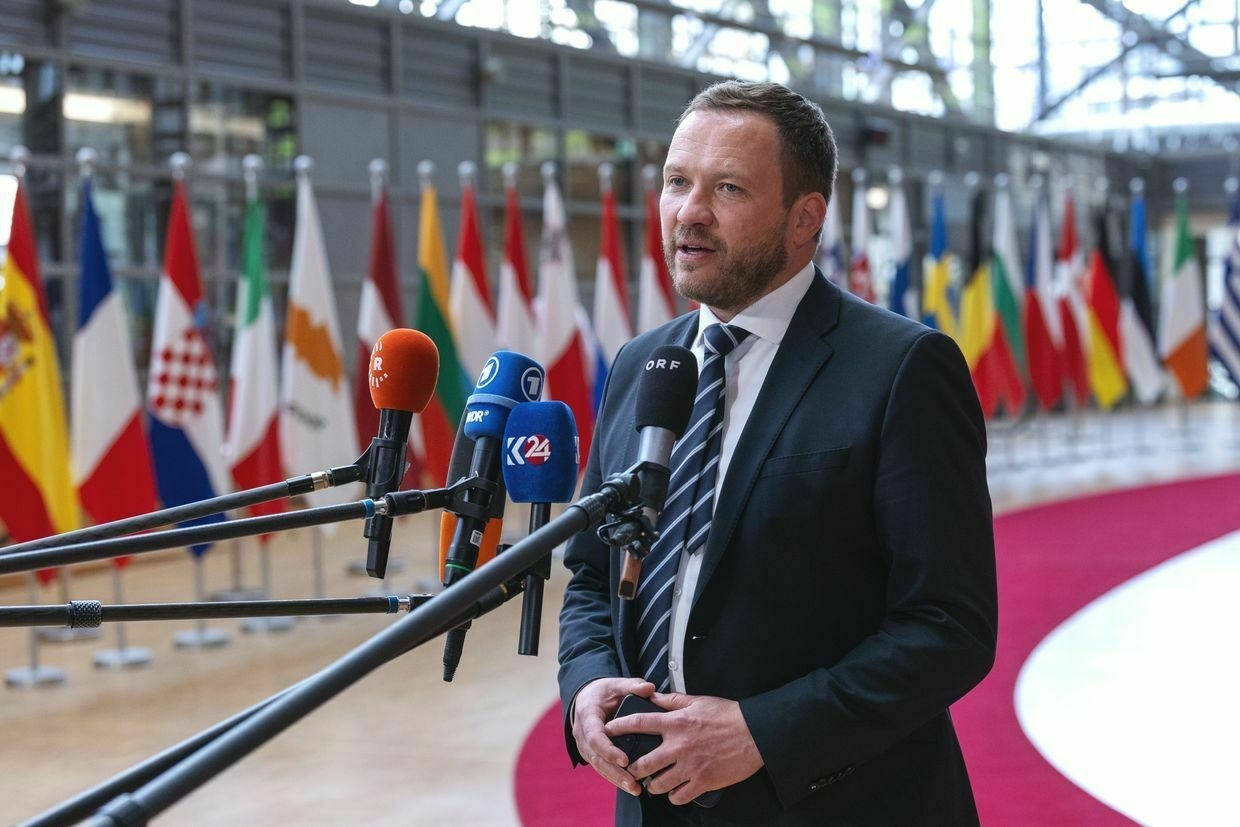
As Russia continues to intensify its onslaught on Ukraine more than three years into the full-scale invasion, Kyiv faces a new challenge – keeping its Western allies, namely the new U.S. administration, engaged in the struggle.
This became clear during the NATO summit in The Hague on June 24-25, where Ukraine was present but took a back seat to the allies' charm offensive aimed at U.S. President Donald Trump.
But some European leaders stress that this does not mean Ukraine is left to fend for itself.
Speaking to the Kyiv Independent on the first day of the summit, Estonian Foreign Minister Margus Tsahkna said this new reality means Europe must take up greater responsibility for Ukraine – and its own defense.
Tsahkna also dismissed the notion that Russian President Vladimir Putin is close to victory in Ukraine, believing the Western allies can “crack” Russia through additional sanctions and steadfast military assistance for Ukrainian defenders.
Rejecting the idea that the alliance is over as we know it because of Trump, Estonia’s top diplomat declared the opposite: “NATO is stronger than ever before."
Editor’s note: This interview was edited for clarity and length.
The Kyiv Independent: For months, NATO allies have said that the overarching goal of military support for Ukraine is to put it into the strongest possible negotiating position. Now, the negotiations have begun, but Russia continues to reject a ceasefire or to compromise on its maximalist demands. Has the strategy changed in light of this?
Margus Tsahkna: Europeans are doing more than before to support Ukraine on a military level. We are also going to adopt the 18th sanctions package at the EU level to put Russia under heavier pressure. But of course, it’s obvious that the only person who is not interested in the ceasefire is Putin.
During these – I don’t know how we can even call them negotiations – Putin has just asked for more and more, and is not giving anything. Of course, an exchange of prisoners of war is a good thing. But it doesn’t mean that Putin wants to have any kind of ceasefire or peace.
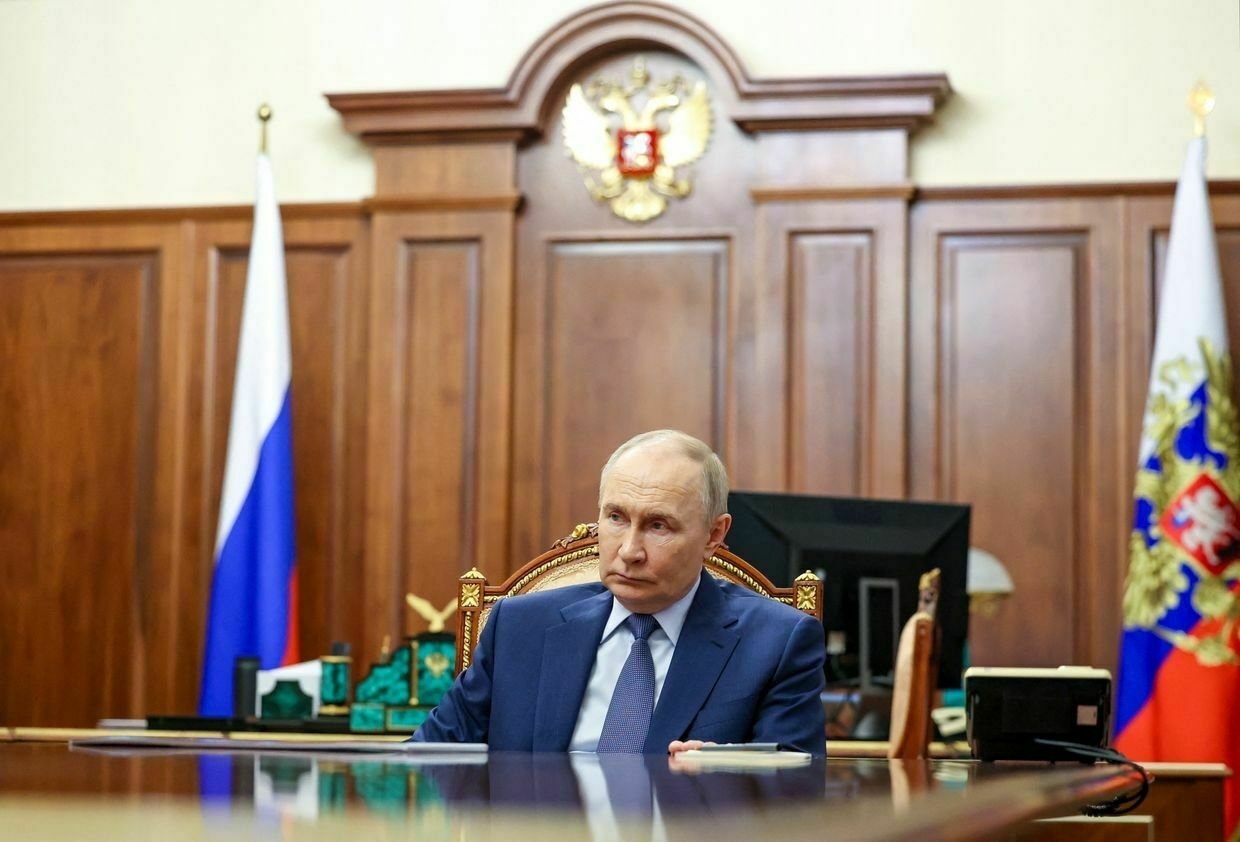
Russian President Vladimir Putin attends a meeting with the children’s rights commissioner in Moscow, Russia, on June 2, 2025. (Gavriil Grigorov / Pool / AFP via Getty Images) What we need to do is very clear: We need to support Ukraine more heavily. We need to reach the 40 billion euros ($47 billion assistance) level from the European side this year, and I think that we are very close to that.
The Kyiv Independent: The allies have been supporting Ukraine for more than three years now, and it has not forced Russia to accept a ceasefire. What has to change on the side of Ukraine’s international allies to actually force Russia to negotiate in good faith?
Margus Tsahkna: I do believe that we can actually crack Russia with more sanctions, by providing more investments and military support to Ukraine, because Ukraine is really strong.
This narrative that Putin wants to present that he is very close to victory and he has been very successful is fake news. Instead of a three-day special operation, Ukraine now has been fighting for more than three years against Russia.
And Russia has not had any kind of strategic breakthrough on the battlefield as well. Russia is terrorizing Ukrainians now by bombing civilians and killing them every night. It is very clear that Putin shows that he doesn’t want to have any kind of ceasefire.
We need to focus on how we can support Ukraine so that Ukraine can keep fighting and not put pressure on it to accept unacceptable conditions.
But our duty is to support Ukraine, which is fighting. I think that it's clear to everybody in the world now.
The Kyiv Independent: Is Europe ready to move forward with these promised crippling sanctions, even if the U.S. seems unwilling to put additional economic pressure on Russia?
Margus Tsahkna: Yes, we just had the foreign council in Brussels yesterday, and we agreed on the main part of this 18th package of sanctions. Of course, lowering the oil price cap would be most efficient. I'm not sure whether this is coming or not.
A couple of governments, such as the Slovaks and Hungarians, are probably blocking this decision. Finding a consensus among 27 countries is really difficult.
But we must make these kinds of decisions as Europe, even if the U.S. is not following. I do hope that, finally, Senator (Lindsey) Graham's sanctions package will be adopted. It includes very direct sanctions against Russia's energy exports, banking, and so on, but also secondary sanctions for those governments that are still dealing with Russia.
We're talking about 500% tariffs on the gas and oil export dealings. But unfortunately, we don't have this decision yet. So we have a long way to go, but every day we need to do our part.
The Kyiv Independent: Does Europe have some kind of contingency plan if the U.S. disengages from peace efforts and the war in Ukraine altogether?
Margus Tsahkna: Yes, Europe must take these responsibilities. And to be honest, we have all the money in the world.
We have $240 billion in Russian frozen assets. And we are pushing heavily, as Estonia, to seize them and confiscate them to finance Ukraine. It's a lot of money for investments in the defense industry, as well as for buying Ukraine new stuff, like air defense systems. But we are not still there.
The Kyiv Independent: During the 2024 NATO summit in Washington, there was a pledge that Ukraine's path toward membership is irreversible. And we heard this pledge reiterated today by Secretary General Mark Rutte.
At the same time, the current U.S. administration has quite openly spoken out against Ukraine's accession. And it seems that the invitation for Ukraine is not even on the agenda of this year's summit. How would you explain to Ukraine that this pledge of irreversibility is not simply political convenience or rhetoric?
Margus Tsahkna: It is not rhetoric. But it's true that the U.S. is against the invitation now.
Estonia's and many others' position is that we see full NATO membership as the only working security guarantee for Ukraine and our region.
This is the most efficient, the most pragmatic decision. It may be impossible right now, but in the future, it will happen. I'm sure about that.
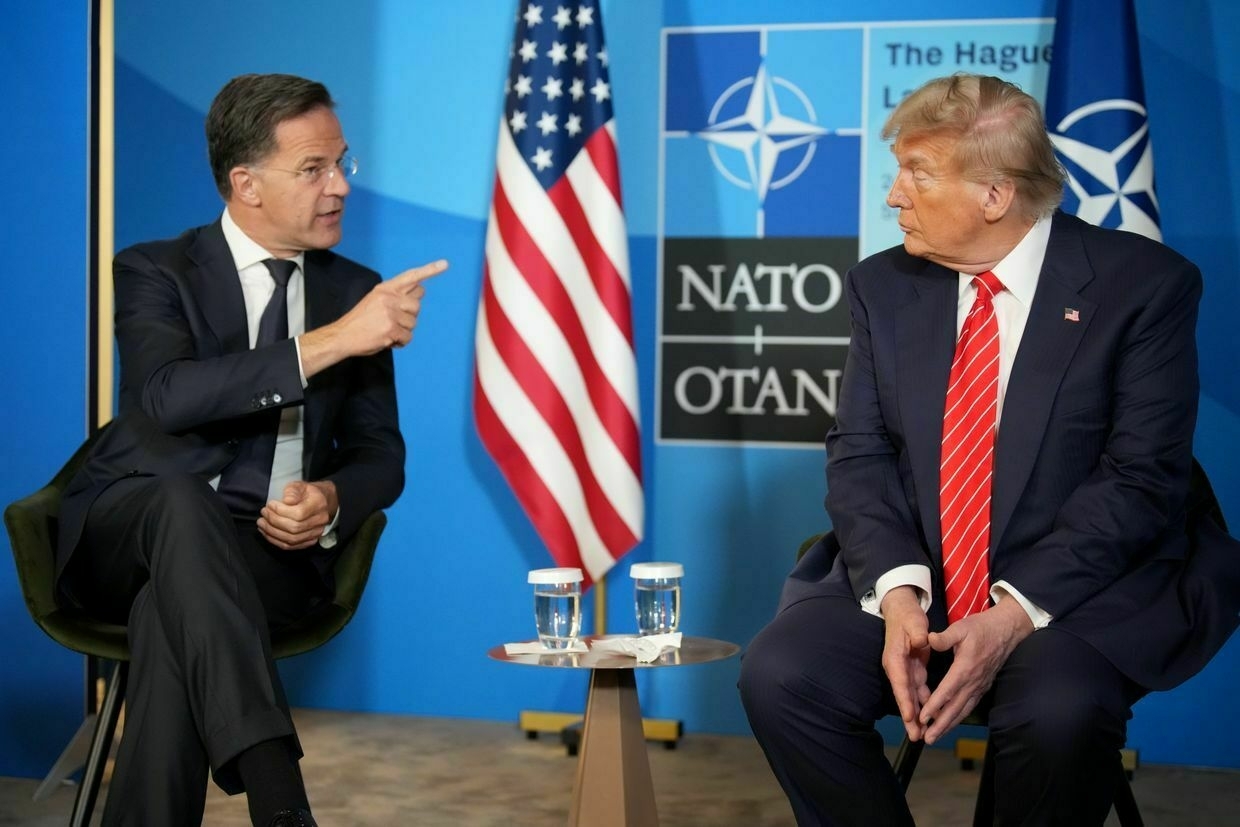
NATO Secretary General Mark Rutte (L) and U.S. President Donald Trump (R) speak to the media in The Hague, Netherlands, on June 25, 2025. (Andrew Harnik / Getty Images) But now we have a hot war situation there. We need to focus on how we can support Ukraine so that Ukraine can keep fighting and not put pressure on it to accept unacceptable conditions. We're talking about sovereignty and territorial integrity. We're talking about the principles of independence.
The Kyiv Independent: Today, there was a massive Russian attack on Dnipro. A day ago, there was another deadly attack on Kyiv. Russia has also launched a new offensive in Ukraine's east. On the other hand, a new conflict is also escalating in the Middle East. Should Ukraine be worried that it will lose the allies' attention when it needs it the most?
Margus Tsahkna: There is always a concern that if a new war opens somewhere in the Middle East, attention will go there. But I can assure you that Europe is taking very seriously its support for Ukraine because there has been a huge change of mentality here.
Everybody understands that an attack against Ukraine is an attack against us as well. Ukraine belongs to Europe.
Europe has been like an old, lazy cat who was just waiting for something bad to happen, and the U.S. would come and solve the problems.
I'm sure that we will continue to support Ukraine, and there won't be any kind of loss of attention. Of course, if you watch the media, if you see politicians commenting on some topics, the number one topic is the war between Iran and Israel. But we need to concentrate our attention on Ukraine.
The Kyiv Independent: Are you worried that if NATO doesn't act decisively and strongly enough to stop Russian aggression in Ukraine, Russia might be eventually tempted to launch aggression elsewhere, for example, Estonia?
Margus Tsahkna: Absolutely. This has been our story since 2014, or even before, when Russia invaded Georgia in 2008. And we said very clearly that Russia won't stop.
And to be honest, Putin cannot stop. Putin is a warlord. And for him, this fight is already existential. He just cannot stop the war.
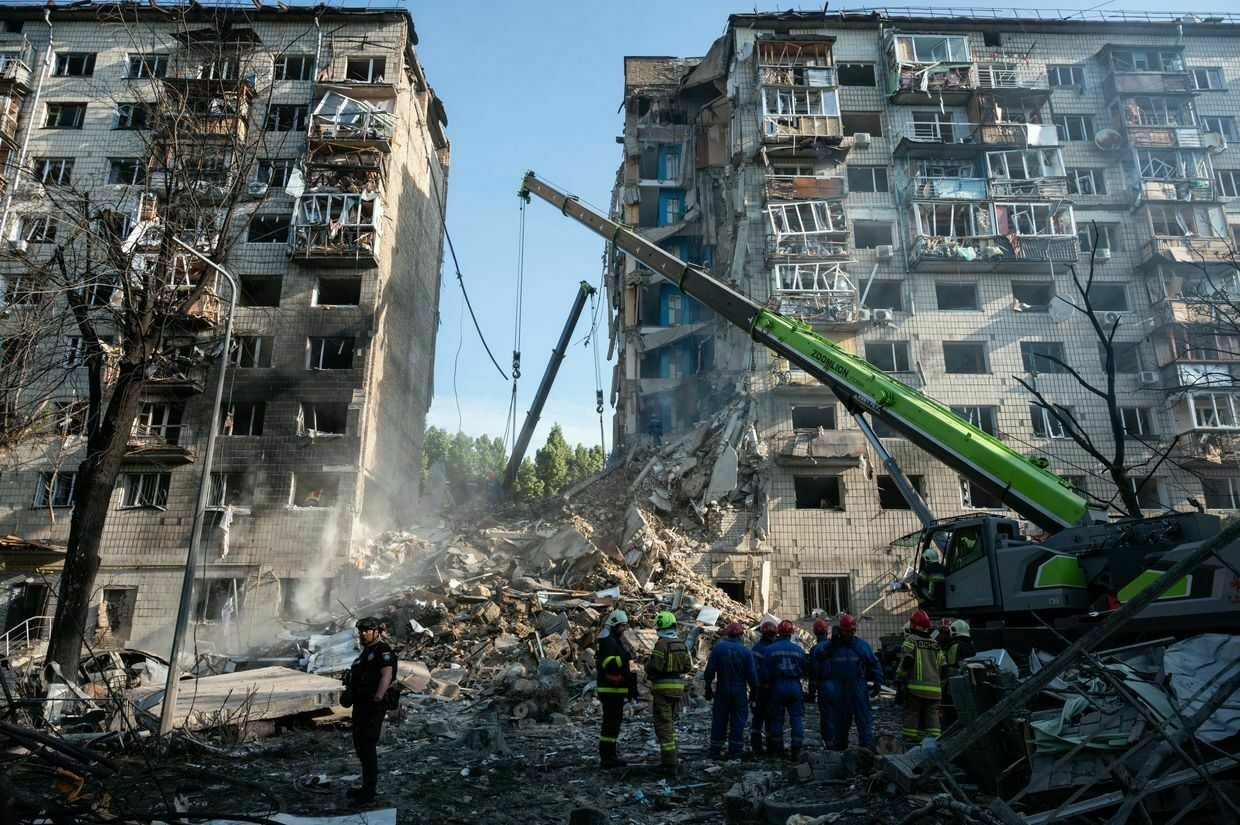
A view of a residential building partially collapsed by a Russian attack in Kyiv, Ukraine, on June 17, 2025. (Danylo Antoniuk / Anadolu via Getty Images) 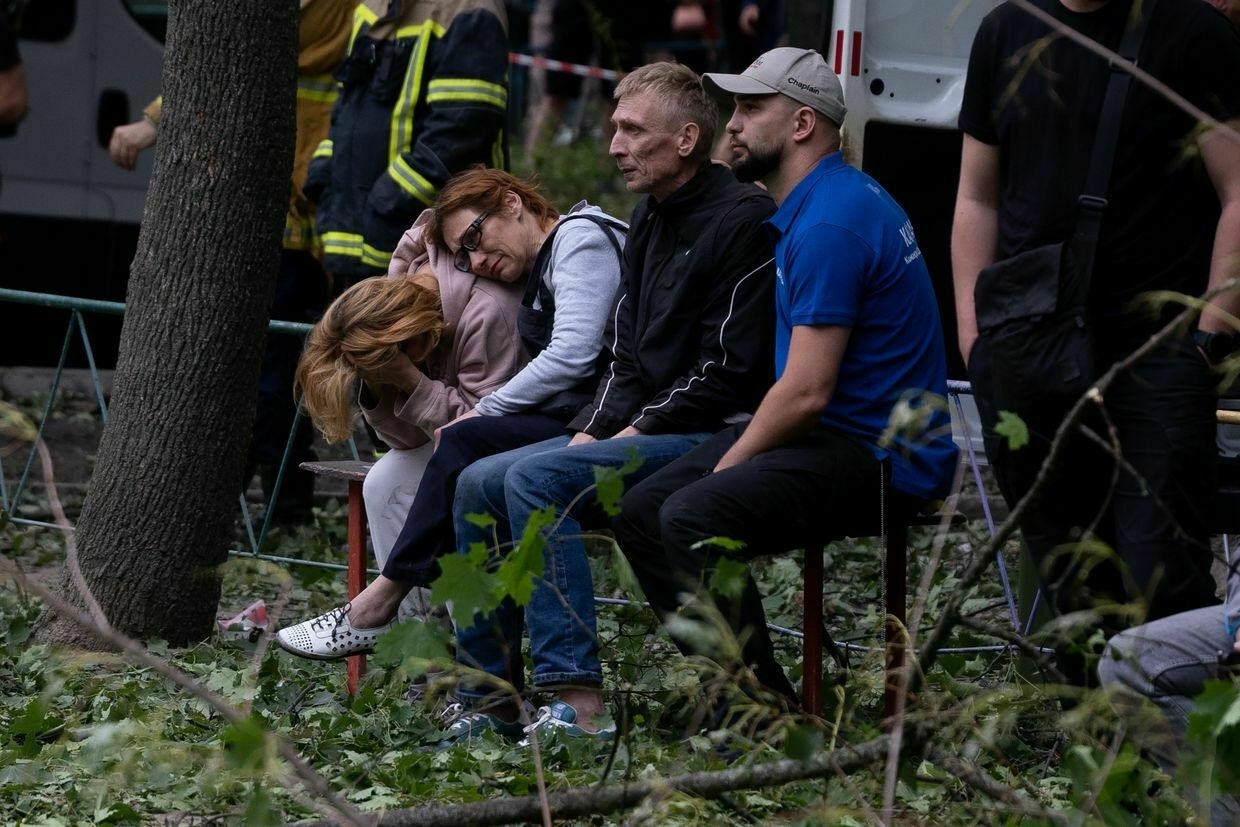
Parents wait while rescuers search for their missing son in the rubble of a partially collapsed residential building after a Russian drone-and-missile attack in Kyiv, Ukraine, on June 17, 2025. (Oleksandr Magula / Suspilne Ukraine / JSC “UA:PBC” / Global Images Ukraine via Getty Images) And that's why we need to support Ukraine. Ukraine is fighting not only for itself, but also for us, but also instead of us. Most leaders in Europe understand this.
To be honest, Putin revealed his plan already in 2008 at the Munich Security Conference. It was about the restoration of the Soviet empire – and he's really committed to this plan.
So the Baltics and the Nordics understand this. Maybe some others don't believe it, but it's our job to convince them.
The Kyiv Independent: As a country on Russia's borders, how do you view the signals from the U.S. that they are shifting their focus away from Europe and their plans to decrease military presence on NATO's eastern flank?
Margus Tsahkna: Let's see what the review of the plans will be. Because the U.S. understands as well that the troops in Poland and the Baltic states are keeping and securing the peace.
But President Trump has said very clearly that he will be committed to NATO. But of course, I totally agree with President Trump – and also previous U.S. presidents – that Europe must pay more, Europe must take more responsibility for its own defense.
And this burden-sharing that has been here for the last 20 years is not fair.
Europe has been like an old, lazy cat who was just waiting for something bad to happen, and the U.S. would come and solve the problems.
No, the U.S. may not come to solve the problems if we are not committed. So this is exactly what you see at this NATO summit.
The Kyiv Independent: There have been many voices after President Trump took office and after Vice President JD Vance’s speech at the Munich Security Conference that NATO, as we know it, is gone. Do you agree with that?
Margus Tsahkna: No, NATO is stronger than ever before. We have Finland and Sweden, new members within our region, in NATO. We see that all the member states are investing more heavily (in defense).
But I also see this change on a political level. In Germany, a new government has declared very straightforwardly that it will create the strongest army in Europe. They have plans and money for that, so I think NATO is actually stronger than it was five years ago.
Note from the author:
Hi, this is Martin Fornusek. I hope you enjoyed this interview.
Our team strives to bring you the most interesting discussions with politicians, experts, and other important voices with insights on Ukraine's history, politics, and its resistance against Russian aggression.
We wouldn't be able to do so without the support of readers like you. To help us continue in this work, please consider becoming a member of the Kyiv Independent's community.
Thank you very much.
Trump gets king’s treatment at NATO summit while Ukraine sits on the sidelinesTHE HAGUE, Netherlands — As NATO leaders convened in The Hague for a two-day summit on June 24–25, allies and Kyiv braced for the first annual meeting since U.S. President Donald Trump’s return to office. With the Israel-Iranian conflict dominating the news and the summit agenda focused onThe Kyiv IndependentMartin Fornusek
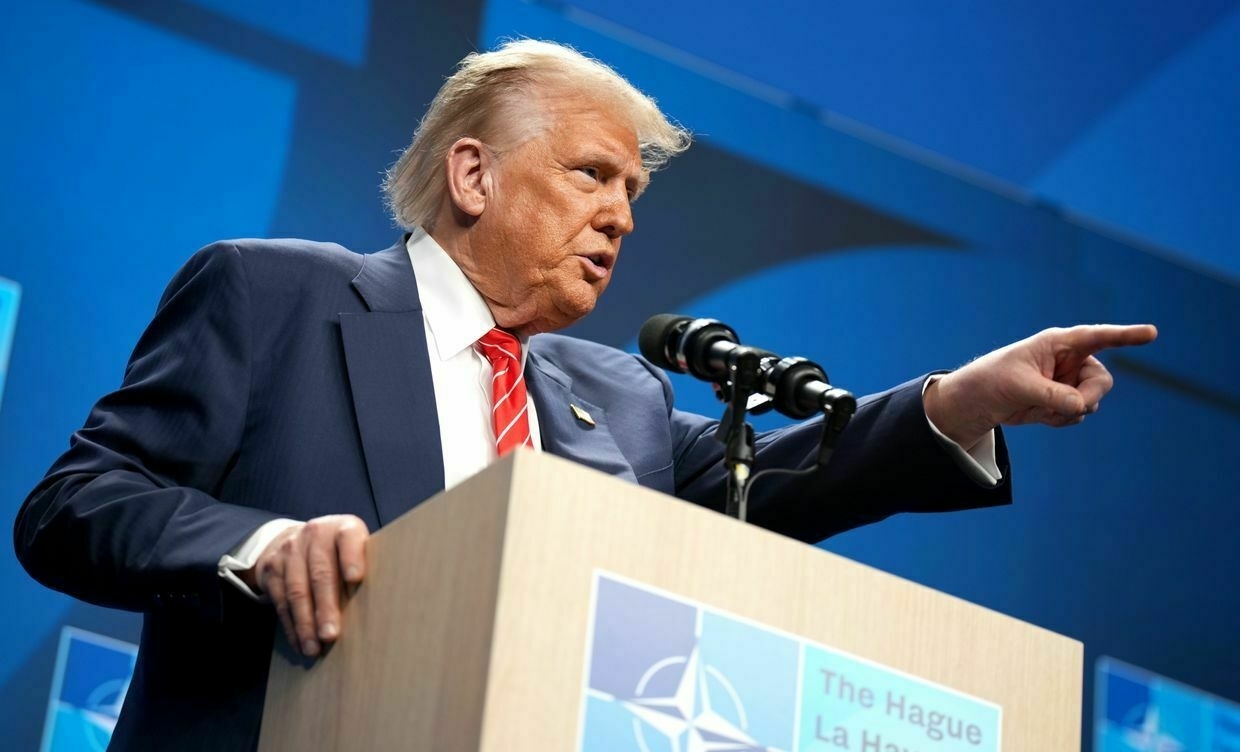
-
Slag Heaps Have Eyes: From Secret Operative to Frontline Fighter
A native of Donbas and veteran of Ukraine’s fiercest battles, Artem Karyakin, better known by his nom de guerre, Skhidnyi, offers his firsthand view from the front lines of the war. For years, he operated in secrecy as a spotter for Ukrainian intelligence deep inside occupied territory. When the full-scale invasion began, he joined the ranks of the Ukrainian forces and has since fought without pause - from the defense of Kyiv to the grinding battle for Bakhmut and the incursion in Kursk.
In this special interview, Artem Karyakin traces the origins of the Russian occupation in Donbas, weighs the prospects for reintegration of lost regions, and recounts what the battle for Kursk truly looked like on the ground. To continue our efforts to document this war and the experiences and opinions of participants at this historic moment, we are publishing the full interview
1. Frontelligence Insight (hereafter FI): You are originally from Donbas and witnessed the unfolding of Russian aggression in the region. How exactly did it happen, and what were you doing in 2014?
Artem “Skhidnyi” Karyakin (hereafter - A): It’s important to note that the Russians began preparing for the seizure of Donbas well before 2014. This was especially evident to us—the residents of the region. For example, in my hometown of Kadiivka (formerly Stakhanov) in Luhansk Oblast, a certain “Don Cossack” organization appeared in the early 2000s. It consisted of marginal figures dressed in red Cossack hats and carrying whips. It looked strange, as our city had always been known for its mining industry and had no historical connection to the Don Cossacks.
This organization attracted people with chauvinistic views, fanatically devoted to the idea of reviving the USSR and uniting the "Slavic peoples." For instance, in 2012, a march commemorating the Ukrainian Insurgent Army was held in our city, in which I also participated. The march was disrupted when we were attacked by the same Don Cossack group, along with paid activists from the “Party of Regions.” Even back then, these “Cossacks” were confiscating our Ukrainian flags. That moment was very telling.
By 2014, the same “Cossacks” in red hats were seizing government buildings in our city - only now they were armed and operating under Russian flags. Many of them weren’t even born in our city - they came from the Russian Federation, as did some of those who helped them seize power by force in the spring of 2014.
We — the pro-Ukrainian residents of the city — were organizing events in support of Ukrainian unity at that time. Our first event was a memorial rally honoring the “Heavenly Hundred” (Editor’s note: The "Heavenly Hundred" refers to those who were killed during the 2014 protests against the Yanukovych regime in Ukraine). That was in late February 2014. Later, we held car rallies for Ukrainian unity, events on the birthday of Taras Shevchenko, and actively distributed pro-Ukrainian leaflets and stickers around the city, and painted Ukrainian flags.
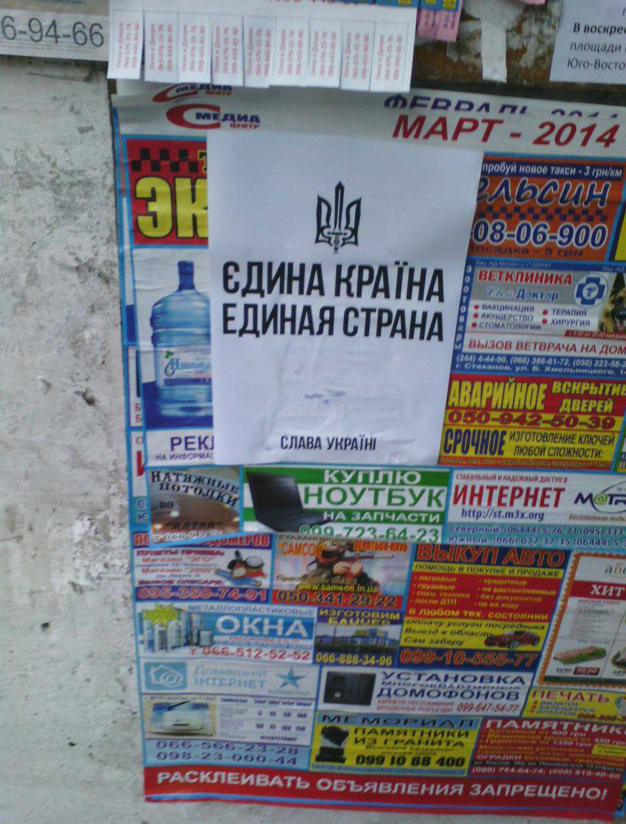
Pro-Ukrainian flyer titled "United Country" pinned to a public notice board, March 2014. Photo shared by Artem “Skhidnyi.” All our activities in the spring of 2014 were dangerous, as there were already armed Russians and local pro-Russian militants in the city.
The point of no return came in late spring 2014, when two young guys — still in school — put up a Ukrainian flag on a slag heap in the center of town. They were fired upon with a handgun for doing so. After that, many pro-Ukrainian residents began leaving the city, as it had become clear that they could simply be killed for their love of Ukraine.
2. FI: What happened to the pro-Ukrainian activists? Are there still people who maintain a pro-Ukrainian stance under occupation?A: I remained in my occupied city until the end of 2021, as did many others who loved Ukraine but, for obvious reasons, could not express it publicly. Today, the situation has worsened for those who support Ukraine in the Russian-occupied cities.
There are still many such people, but they are forced to live in fear, expecting to be arrested at any moment. Russian security services have dedicated significant resources to identifying and detaining pro-Ukrainian residents in the occupied territories. There are constant filtration procedures and ongoing inspections. Special attention is given to public sector workers and even to children. For example, in schools, there are mandatory checks of students’ mobile phones to look for subscriptions to Ukrainian media or messages expressing pro-Ukrainian views.
To love Ukraine under Russian occupation is already an act of courage.
Nevertheless, even today, a large number of true Ukrainians remain in the occupied territories: people who, risking their lives daily, help us in the fight against Russia by sharing intelligence, carrying out sabotage, and participating in other acts of resistance against the Russian army. This is true heroism and further proof that this land is rightfully Ukrainian.
3. FI: You continued to support Ukraine even when your city was already under occupation. What exactly did your activities involve?A: In July 2014, while already living under occupation, I created my first Twitter account. The goal was to shed light on the situation in the occupied territories from the perspective of a pro-Ukrainian resident who hadn’t left their home. At the time, neither people in Ukraine nor the rest of the world fully understood what was actually happening. Many believed that all the locals who had stayed supported Russia. I wanted to show the world that our city was occupied by Russia, and that there were still Ukrainians there who were not happy about it and were waiting for the Ukrainian army.
In addition to general updates, I also posted information about the locations of Russian troops in my city. These were public tweets, sometimes with maps marking where Russian military equipment was stationed. In the fall of 2014, I was contacted via direct message on Twitter by representatives of Ukrainian intelligence services as well as acquaintances from the Ukrainian army. They explained to me that it was better to share intelligence privately rather than posting it publicly on Twitter.
Since then, I began secretly passing on various types of information to the Ukrainian army and intelligence services - details about the movements, positions, and firing points of Russian forces in my city and surrounding occupied areas. Over the years, this also came to include information about factories and enterprises operating under Russian control, the socio-political climate under occupation, local sentiment, and data on collaborators - those who had joined the Russian side in combat or taken positions in the Russian-controlled security services.
4. FI: In 2021, you moved to Ukrainian-controlled territory, and the full-scale invasion began the following year. How did you join the Armed Forces, and what was your first battle?A: From the very first days of Russia’s full-scale invasion, I began looking for a unit where I could fight against Russia. The early days of the big war were chaotic—there was disorganization and confusion everywhere. I was living in Kyiv, and in one of the first days of March, I simply approached some guys with rifles and offered my help. That very same day, I was already standing night watch with Kalashnikov's hand-held machine gun in my hands.
It was one of the Territorial Defense Force units. We took up a defensive position on the outskirts of Kyiv, on the Bucha-Irpin side. In the summer of 2022, I joined the fighters of the 8th Regiment of the Special Operations Forces, where my friend was already serving and had invited me to join his group.
My first combat deployment was in August 2022 in Bakhmut, which at that point was already under assault by Russian forces, including Wagner PMC fighters. Shortly after Bakhmut, we took part in the liberation and clearing of the city of Lyman, in Donetsk Oblast. For me and many of my fellow soldiers, it was our first experience liberating our native land - a moment we will remember forever.
5. FI: You’ve taken part in important operations - both in Ukraine and on Russian territory, specifically in the Kursk region. Did you notice any significant differences between combat operations in Ukraine and in Kursk?
A: The Kursk operation was unique in every sense and differed from my past experiences in Ukraine in many ways. It was in the Kursk region that I first encountered the concept of maneuver warfare, and I can say that, personally, combat along a clear front line is easier for me.
It was also in Kursk where we first faced FPV drones connected via fiber optics and a new Russian tactic—using specialized FPV drone teams to strike our logistics routes from as far as 10–15 km deep. This tactic is now widely used by Russian forces along nearly every front.
In this operation, we also faced the enemy’s best FPV crews, all concentrated in one relatively small sector. These teams had been withdrawn from other areas and redeployed to Kursk specifically.
Another major difference was that, for the first time, we were acting as a “foreign army” in populated areas. Each soldier had their own reaction to that: for some, it felt like justified revenge; others felt a strong pull back toward our own land and a kind of inner resistance to advancing on foreign soil.
I count myself among the former. For me, it was an act of rightful retribution and a way to shift the war onto the aggressor’s territory. Yet I constantly reminded myself that I didn’t want to behave like the Russians did in my hometown. On Russian territory, I acted very differently than they had in ours. To every civilian I encountered in the Kursk region, I explained why we were there, how it all began, and that we simply want to liberate our own cities - not seize theirs.
The Kursk operation was very well planned and executed at the outset, but unfortunately was marred by a series of key mistakes and issues at various levels. These mistakes must be carefully analyzed so they are never repeated. I sincerely hope this experience proves useful in the future—it was unique in many respects.
Regardless, everyone who took part in that operation became part of history. We shattered the myth of the invincibility of a nuclear power and the so-called greatness of the Russian army. We drew significant enemy forces away, slowing their advance on our territory. And we were also the ones who fought against the armies of two different totalitarian states. The experience of facing North Korean forces is also something that sets this apart from the war in Ukraine—even though their tactics in Kursk didn’t differ much from what Wagner used in Bakhmut.
6. FI: Assuming that Russia eventually loses control over Donbas - how do you envision the process of reintegrating these territories? How deeply has Russian propaganda taken root there over the years?A: The most important thing is to drive the Russians out of our land. And with Ukrainians, just like us, we’ll quickly find common ground.
The main issue with those who fell under the influence of Russian propaganda during the occupation is that they know very little about the rest of Ukraine. Many have never been to other regions and know nothing about them. Everything they do know about Ukraine comes from what they’ve seen on Russian TV channels.
Another problem is that Russia created conditions in which every second family in occupied Donbas has lost a relative in the war. This is a direct result of the forced mobilization of men from the occupied territories into the Russian army.
But you have to understand — Donbas, especially the part that’s been under occupation since 2014, is a region where people generally lack any strong civic engagement or passion. Their opinions and actions are shaped entirely by the environment they live in.
If Ukraine returns to these territories, people will quickly adapt to new rules and new flags flying over their homes. And soon, they will realize that life under Ukraine is freer and more breathable. Without the presence of Russian troops, these people would never have fought for the Russian flag. I know them — I lived among them for most of my life.
Even now, many of them no longer see Russia as something positive. After living under the Russian flag long enough, they’ve come to realize that there’s little good there, and that the sacrifices they were forced to make for that flag were not worth it.
7. FI: When the war ends, what do you see your life looking like? Do you have any dreams or plans for peacetime?
A: The most important thing is for the war to end with our victory. We must preserve Ukraine and bring back our land and our people. I’m turning 28 this year, and I’ve spent 11 of those years living through war — it’s hard to imagine myself without it now.
But of course, I have a personal dream as well: to start a family of my own. During the years of occupation, I lost my parents and my grandmother, and since then, the feeling of loneliness has never left me. My dream is a family… my children, who will never know what war is.
============================================================================
Artem “Skhidnyi” Karyakin, in an exclusive interview with Frontelligence Insight. You can follow him on the X platform for firsthand updates from the front.This Substack is reader-supported. To receive new posts and support my work, consider becoming a free or paid subscriber.
-
Zelensky signs decree to synchronize Russia sanctions with EU, G7
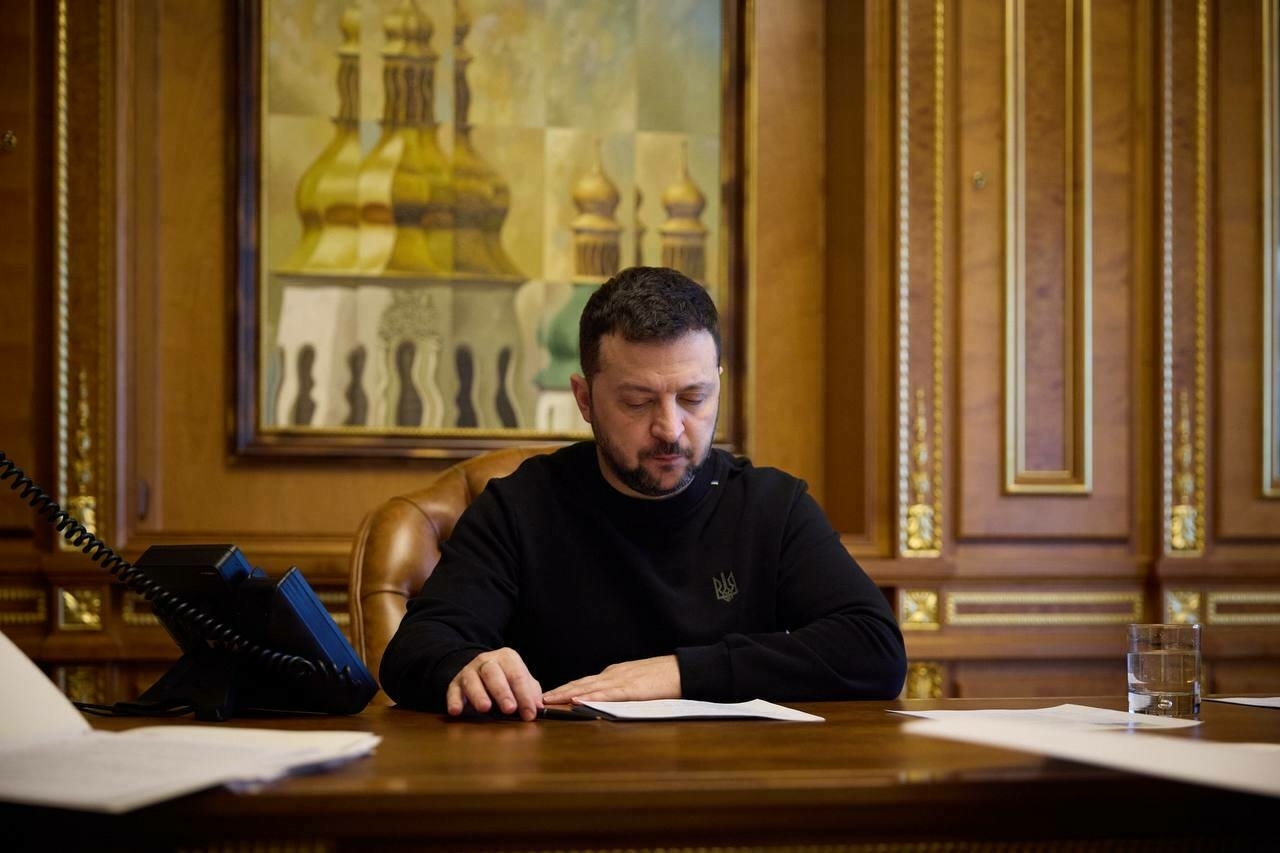
President Volodymyr Zelensky signed a decree on June 27 to coordinate sanctions against Russia with international partners, particularly the European Union and the Group of Seven (G7), the President’s Office said on its website.
A day earlier, EU member states' leaders gave their political consent to extend the sanctions previously imposed on Russia for its war against Ukraine. Meanwhile, the participants did not approve the new 18th package of sanctions, which targeted Russia’s energy and banking sectors, due to Slovakia’s veto.
Zelensky’s June 27 decree implements a decision by Ukraine’s National Security and Defense Council’s (NSDC) to synchronize the sanctions against Russia with the EU and G7.
According to the document, sanctions approved by partner states must be submitted to the NSDC for consideration and approval no later than the 15th day after the partner state’s decision comes into force.
The Cabinet of Ministers, the Security Service of Ukraine (SBU), and the National Bank of Ukraine must also ensure the implementation of sanctions approved by international partners in Ukraine.
After the 17th package of sanctions against Russia took effect on May 20, Ukraine’s allies announced the following day that another round of restrictions was already in the works.
The push for tighter sanctions comes as Russia continues to reject ceasefire proposals and presses forward with military operations.
Russia pulls its scientists out of Iranian nuclear plant, as Israeli strikes threaten decades of collaborationIsrael’s strikes on Iranian nuclear facilities have alarmed none more than Russia, the country that first brought nuclear power to Iran in defiance of Western objections. We’re “millimeters from catastrophe,” said Kremlin spokeswoman Maria Zakharova on June 18 in response to a bombing campaign that Israel launched against Iran on June 13. Decades of conflict with the West have united Iran and Russia, despite a cultural gulf between the two nations that dwarfs the Caspian Sea that physically di The Kyiv IndependentKollen Post
The Kyiv IndependentKollen Post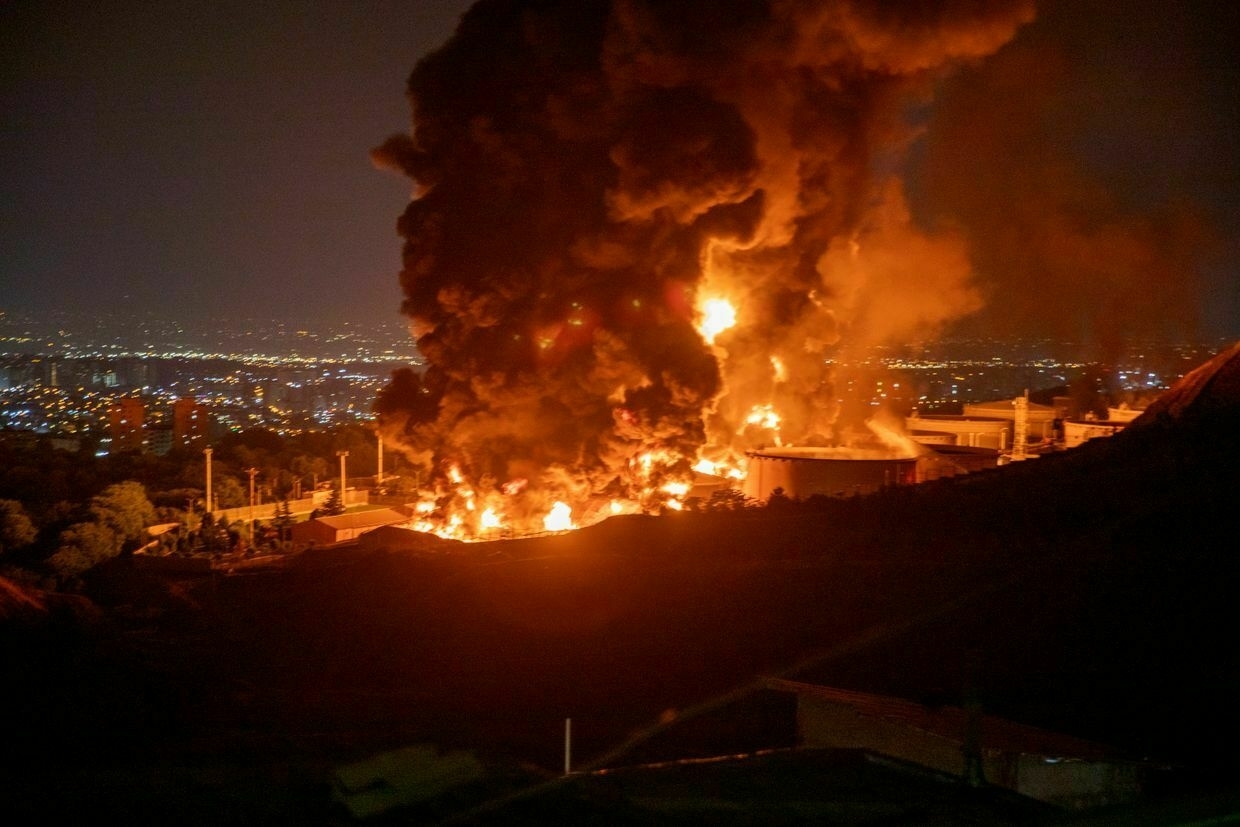
-
Russian attack on key energy facility plunges parts of southern Ukraine 'into darkness,' governor says
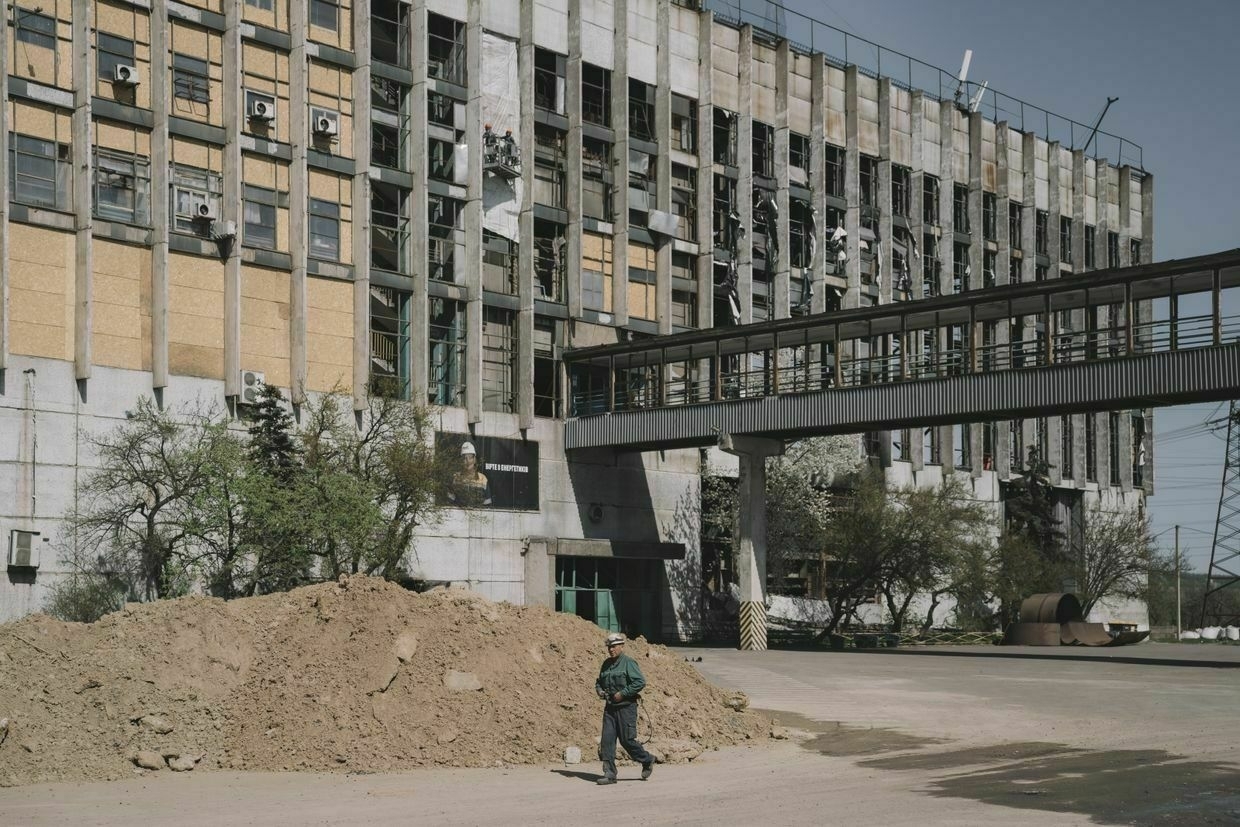
Russian forces struck a critical energy facility in Kherson Oblast, causing widespread power outages across several communities, Governor Oleksandr Prokudin said on June 27.
“Russia decided to plunge Kherson Oblast into darkness,” Prokudin wrote on Telegram. He said the attack has disrupted electricity supply to multiple settlements.
Local power engineers are working to stabilize the situation, Prokudin said.
“I ask the residents of the region to prepare for a prolonged power outage. Power engineers are doing everything possible to stabilize the situation,” he said.
Kherson and the surrounding regions have frequently come under Russian fire since Ukrainian forces liberated the city from occupation in November 2022. Russian troops continue to attack the area with artillery and drones from across the Dnipro River.
The Russian army consistently targeted Ukrainian energy infrastructure. Throughout 2024, Moscow launched 13 mass attacks with drones and missiles on Ukraine’s energy infrastructure. Ukraine was forced to introduce emergency blackouts across the country.
Ukraine and Russia agreed to a partial 30-day energy truce, following consultations with the U.S. in Riyadh on March 25. Moscow violated the ceasefire more than 30 times, Foreign Ministry Spokesperson Heorhii Tykhyi said on April 16.
Russia pulls its scientists out of Iranian nuclear plant, as Israeli strikes threaten decades of collaborationIsrael’s strikes on Iranian nuclear facilities have alarmed none more than Russia, the country that first brought nuclear power to Iran in defiance of Western objections. We’re “millimeters from catastrophe,” said Kremlin spokeswoman Maria Zakharova on June 18 in response to a bombing campaign that Israel launched against Iran on June 13. Decades of conflict with the West have united Iran and Russia, despite a cultural gulf between the two nations that dwarfs the Caspian Sea that physically di The Kyiv IndependentKollen Post
The Kyiv IndependentKollen Post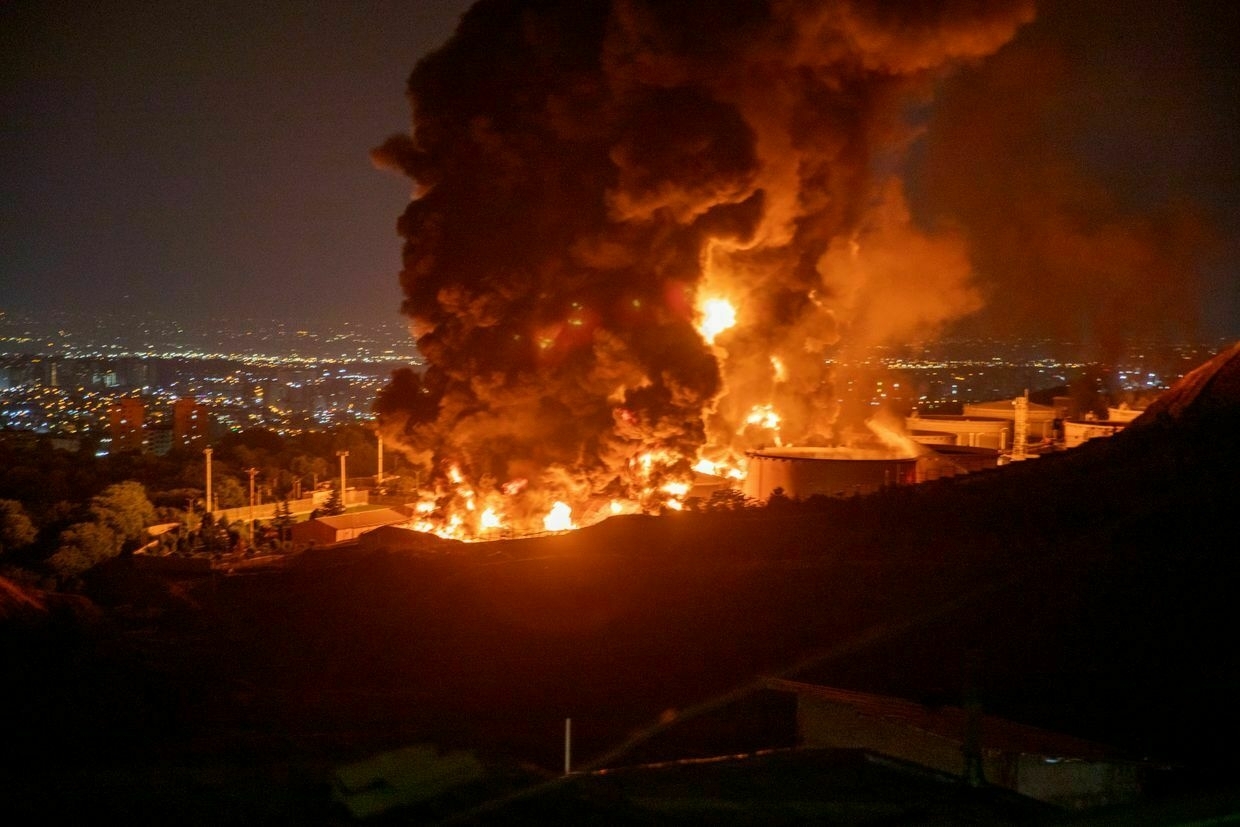
-
'Resilience and confident actions' — Umerov praises Ukraine's new 18-24-year-old recruits
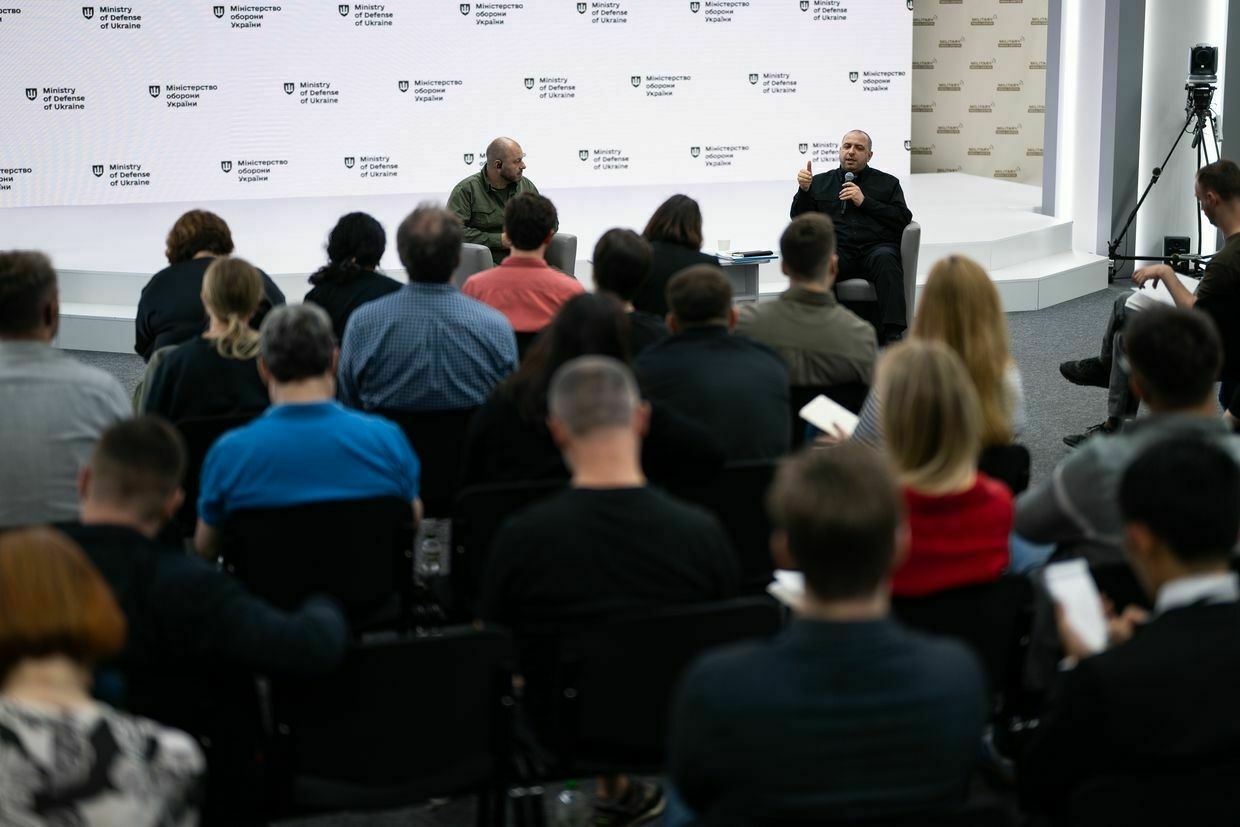
Ukraine’s one-year military contract for volunteers aged 18 to 24 is proving effective on the battlefield, Defense Minister Rustem Umerov said at a June 26 press briefing, citing fresh reports from commanders across the front line.
Umerov said units made up of young contract soldiers had shown “resilience, professionalism, and confident actions in combat,” challenging early skepticism about the new recruitment model.
“We saw them on the battlefield — and it’s truly motivating."
The contract, launched in February, offers substantial benefits to young volunteers. It includes basic general military training, vocational training, and an adaptation course in an army unit. Volunteers will receive a one-time monetary aid payment of Hr 1 million ($24,000) and a monthly allowance of up to Hr 120,000 ($3,000).
The campaign initially faced backlash from some front-line troops and activists, who argued it created unfair disparities in pay and support. Now, the initiative is being credited with improving performance in specific units, Umerov said, citing internal military assessments received by the ministry two weeks ago.
Umerov, however, hasn’t shared the number of soldiers recruited through the campaign.
The campaign is under constant evaluation based on financial, personnel, and training metrics. Umerov said the Defense Ministry is working to enhance the motivational package further, using data and feedback from participants and focus groups.
Despite pressure from international partners, particularly the United States, to lower Ukraine’s mobilization age from 25 to 18, service for those aged 18–24 remains voluntary. President Volodymyr Zelensky has consistently rejected compulsory mobilization starting at 18, warning that it could damage Ukraine’s long-term future.
In a recent interview, Zelensky said Ukraine’s Western allies have at times withheld new sanctions on Russia over Kyiv’s refusal to lower the draft age. He stressed that the “weapons and technology,” rather than raw manpower, were more decisive on the battlefield.
Ukraine faces personnel challenges as Russian forces continue to press along the front line. While a mobilization reform law lowered the draft age from 27 to 25 in 2024, the pace of new enlistment has slowed, leaving infantry units understaffed.
“The younger generation is a powerful human resource that deserves support and development,” Umerov said.
Facing manpower shortage, Ukrainian brigade turns to women in first-ever female recruitment driveEditor’s note: This article originated as a winning story idea in a vote by members of the Kyiv Independent’s community. Join our community today and join our exclusive members-only Discord channel, where you can discuss and suggest stories, ask our journalists questions, and more. “Her strength is herThe Kyiv IndependentNatalia Yermak
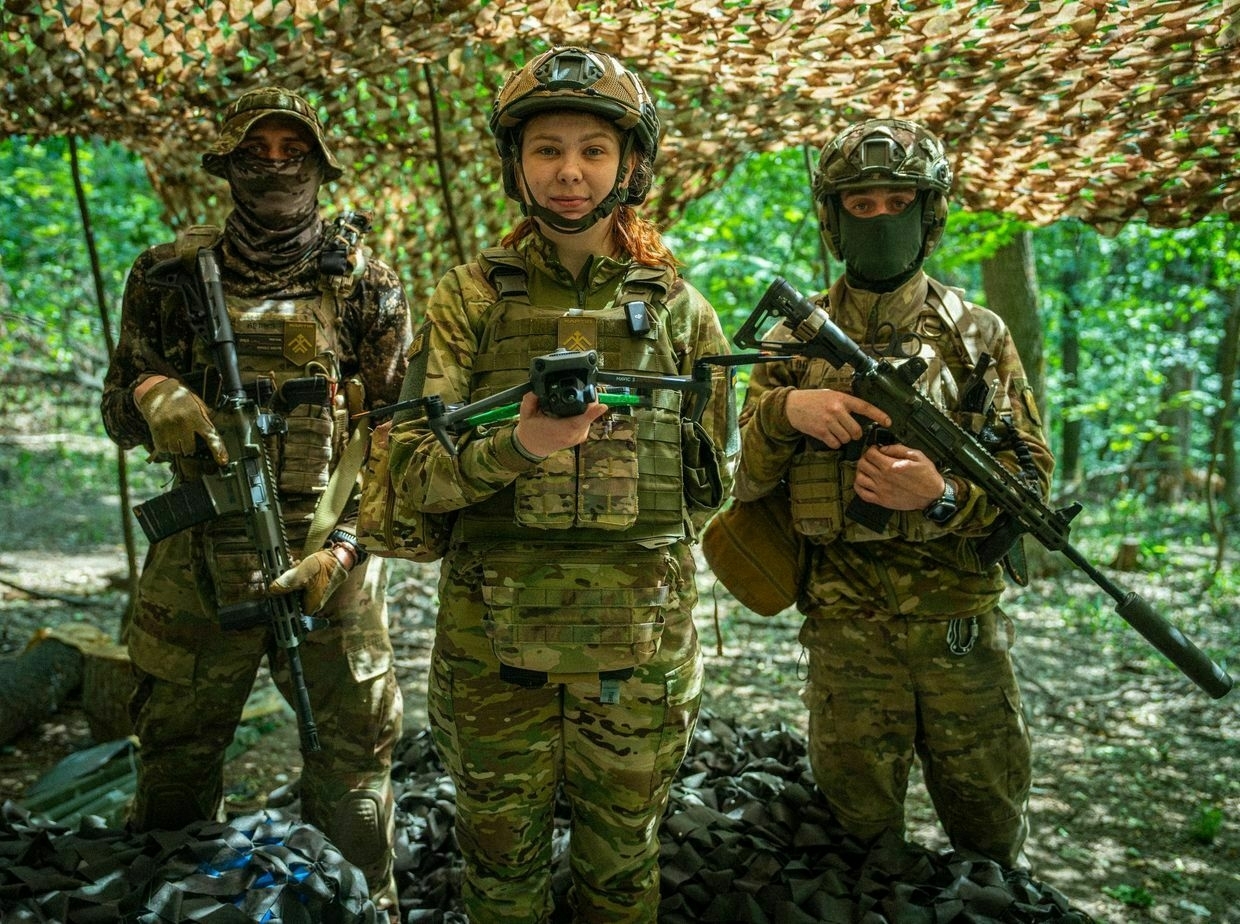
-
Ukraine to seek EU sanctions against Bangladesh over Russia-stolen grain import
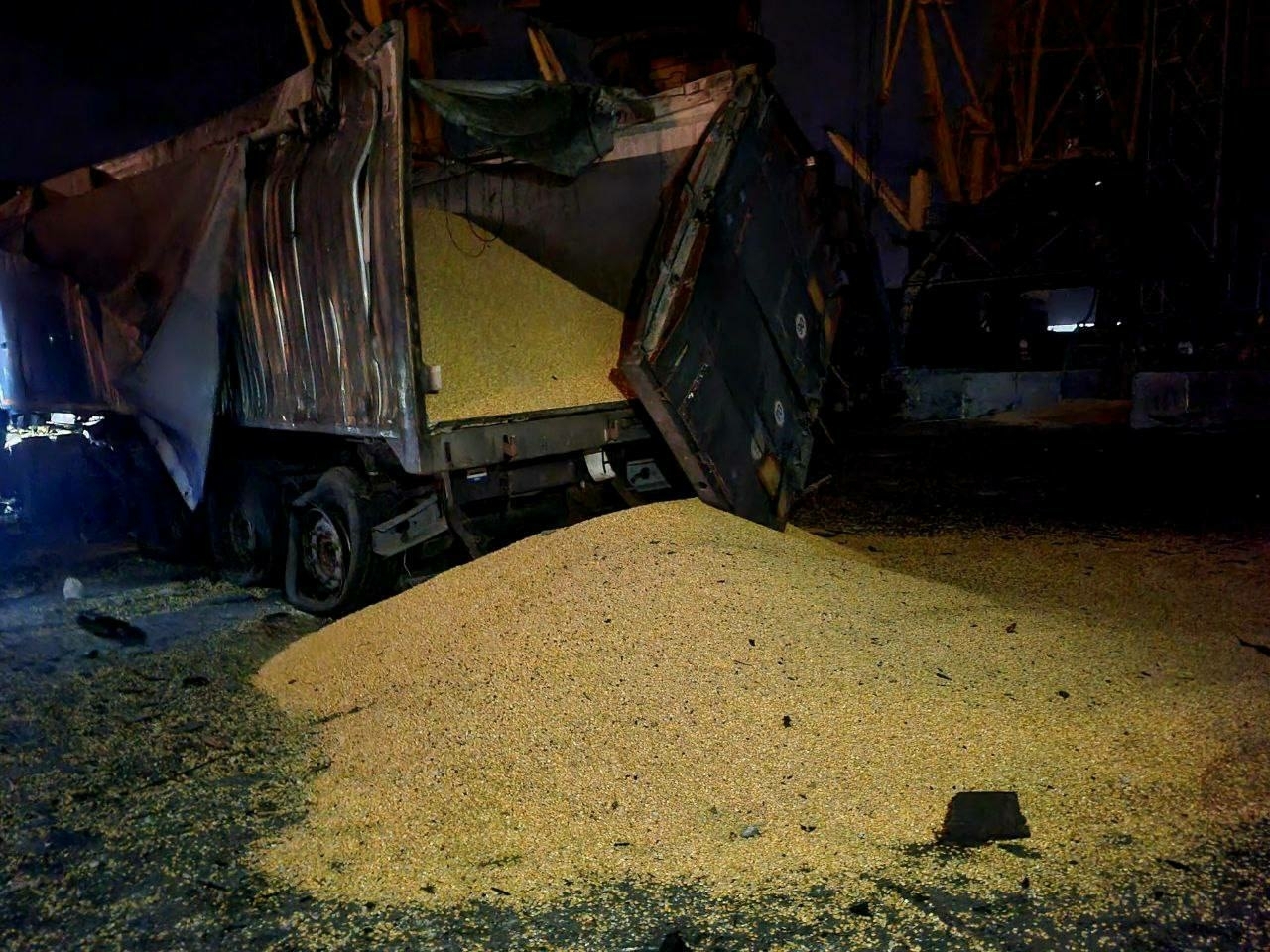
Ukraine is preparing to request European Union sanctions against Bangladeshi entities over importing wheat stolen from Russian-occupied Ukrainian territories, Ukraine’s ambassador to India told Reuters.
In comments for Reuters published on June 27, Oleksandr Polishchuk said that Bangladesh had failed to respond to Ukrainian diplomatic appeals to stop the trade, prompting Kyiv to escalate the matter to the EU level.
“It’s a crime,” Polishchuk told Reuters. “We will share our investigation with our European Union colleagues, and we will kindly ask them to take the appropriate measures."
Russian forces have seized millions of tons of Ukrainian grain from occupied areas, with at least 180,000 tons looted through the port of Mariupol alone, Ukrainian Prime Minister Denys Shmyhal said in October 2024.
The grain theft from occupied territories began in 2014 when Russia first invaded Ukraine and continued after the full-scale invasion launched in 2022.
The Ukrainian Embassy in New Delhi sent multiple letters to Bangladesh’s Foreign Ministry this year, requesting rejection of more than 150,000 tonnes of grain allegedly stolen and shipped from the Russian port of Kavkaz, according to documents reviewed by Reuters, shared by people familiar with the matter.
According to Polishchuk, Ukrainian intelligence showed that entities in Russia mask grain obtained from occupied Ukrainian territories by mixing it with Russian wheat before shipping it to other countries.
Bangladesh’s Food Ministry, in comments to Reuters, denied the imports, saying that they banned grain deliveries originating from occupied Ukrainian territory.
Ukraine’s agricultural sector has suffered approximately $80 billion in losses due to Russia’s full-scale invasion, Agriculture Minister Vitalii Koval said in February.
The losses include direct damage, disrupted logistics, higher fertilizer and fuel costs, land reclamation expenses, demining costs, and impacts from occupied territories.
Amid relentless Russian strikes, Ukraine’s businesses rebuild aloneIt took firefighters two days to extinguish the flames at Oleksiy Tarnopolskiy’s warehouse in Kyiv after a Russian attack on June 10. Nothing inside could be saved from his tea and coffee business. Tarnopolskiy arrived on site to an “apocalyptic” scene at 5 a.m., one hour after a RussianThe Kyiv IndependentDominic Culverwell
